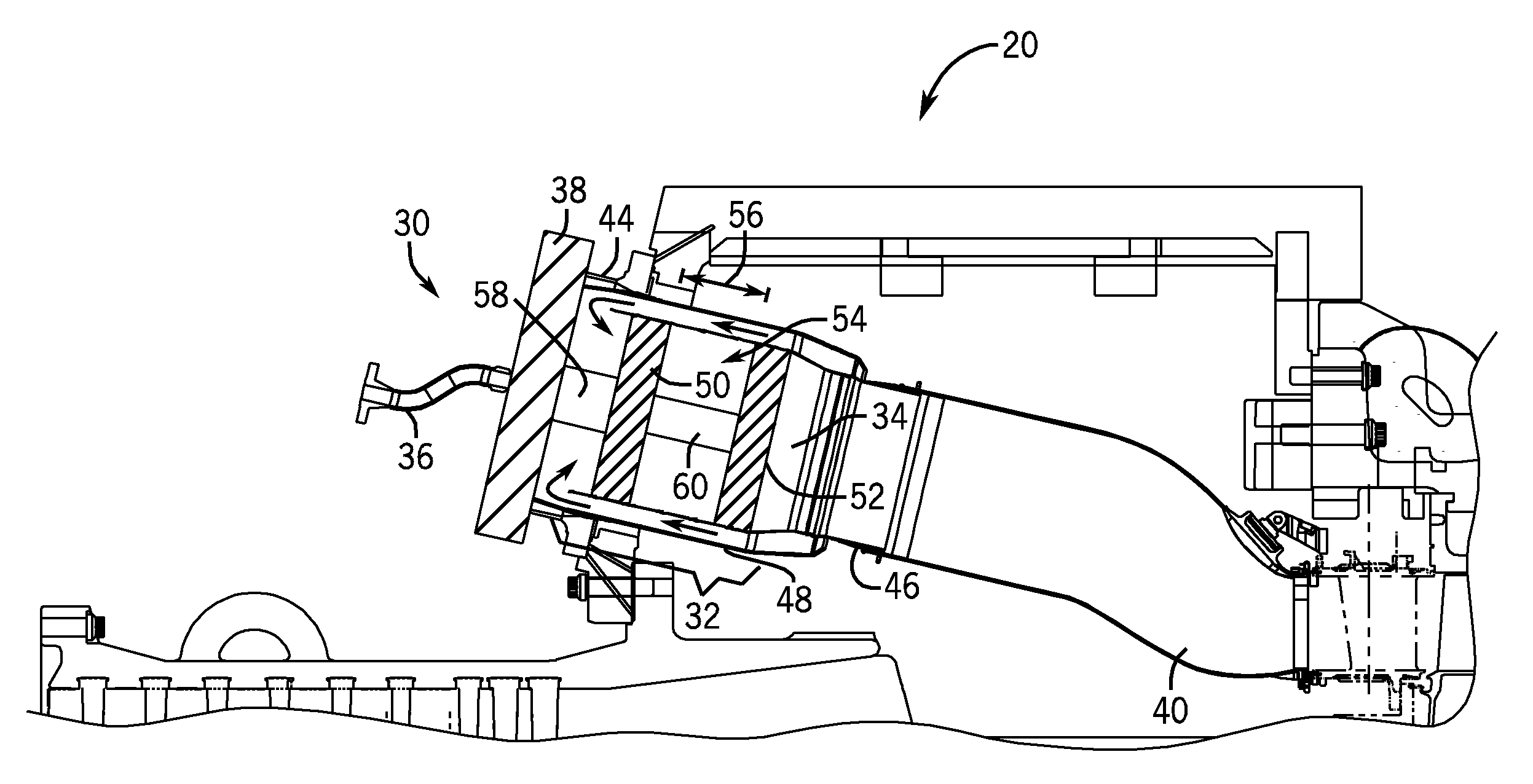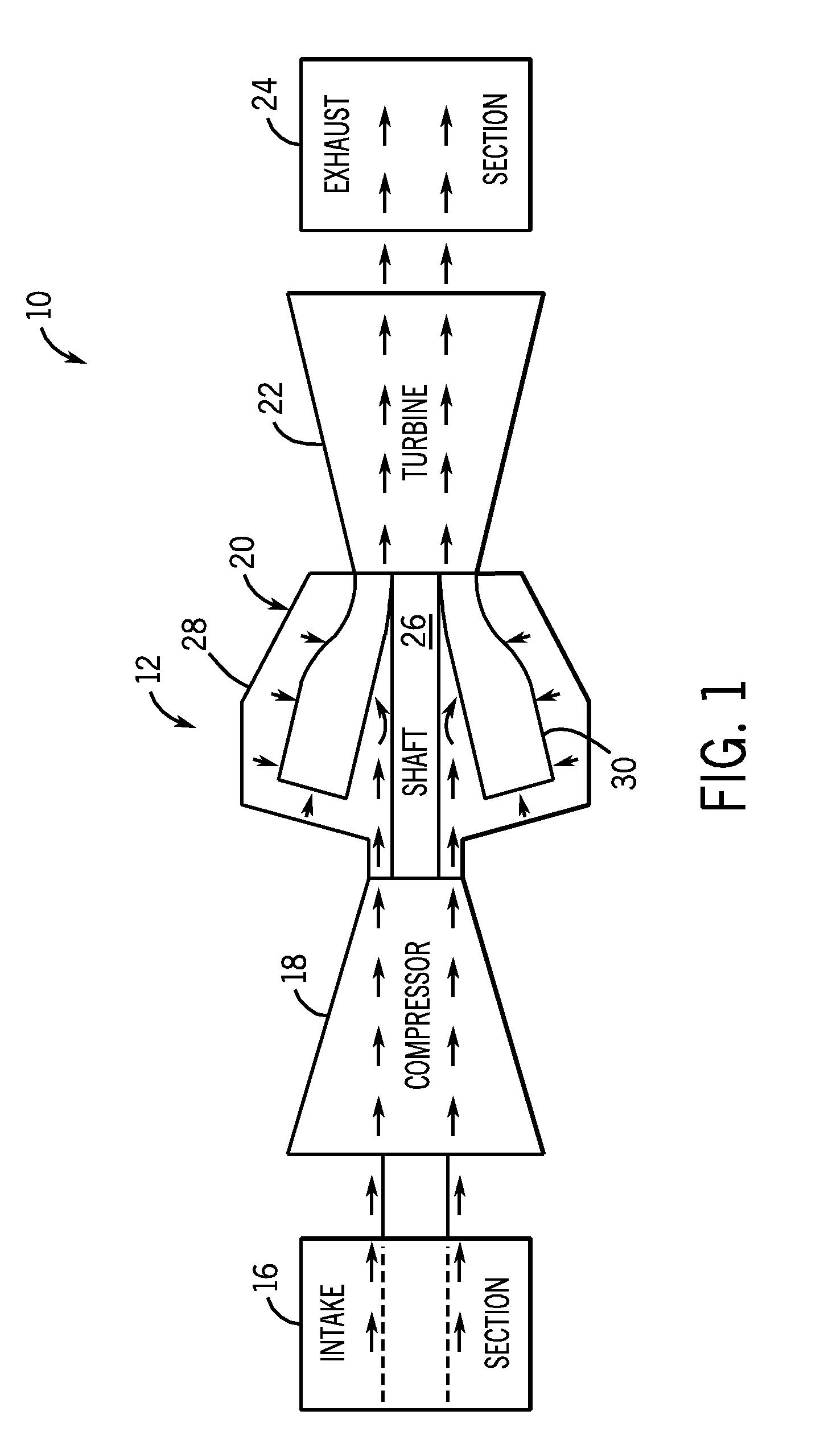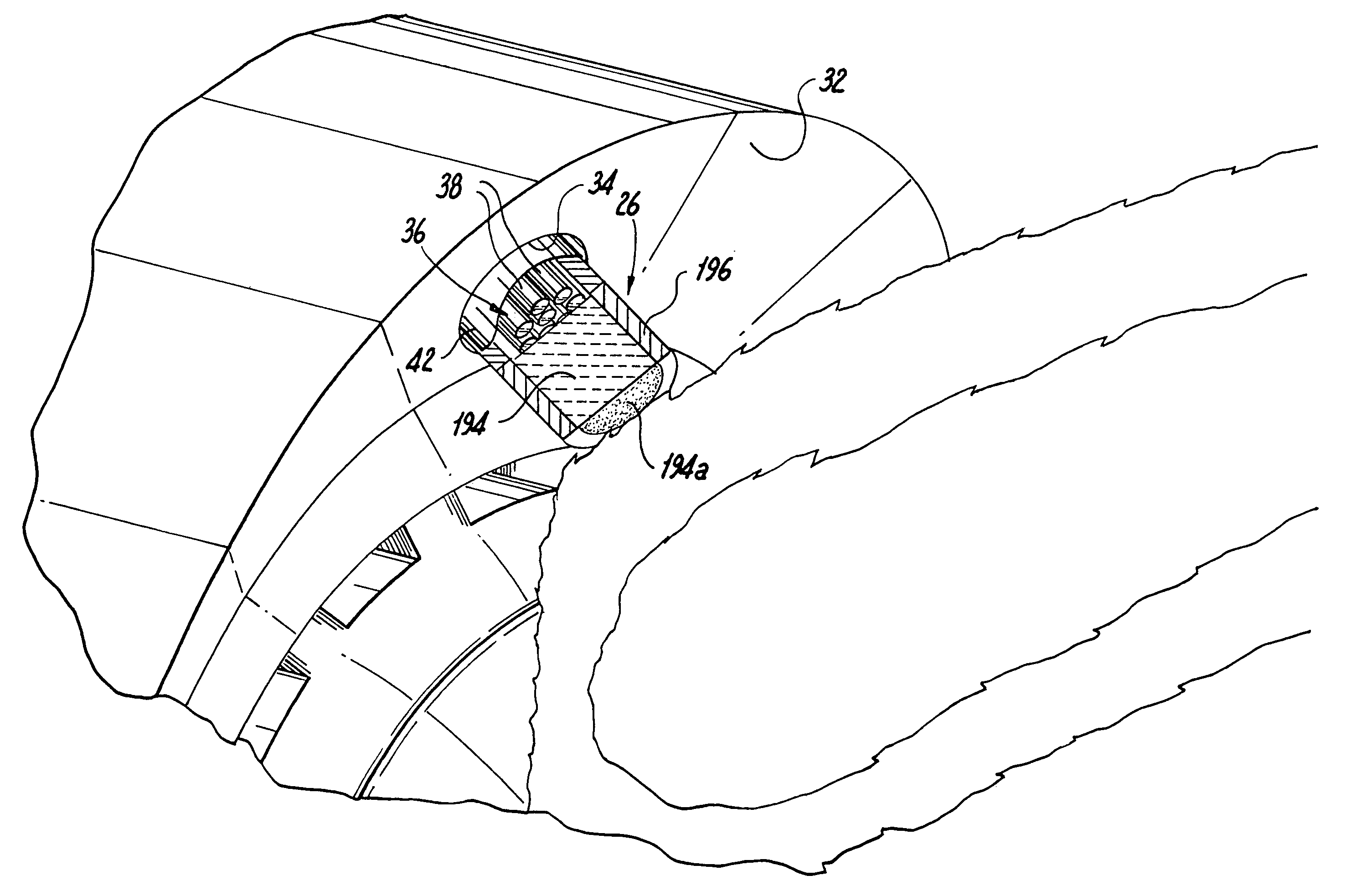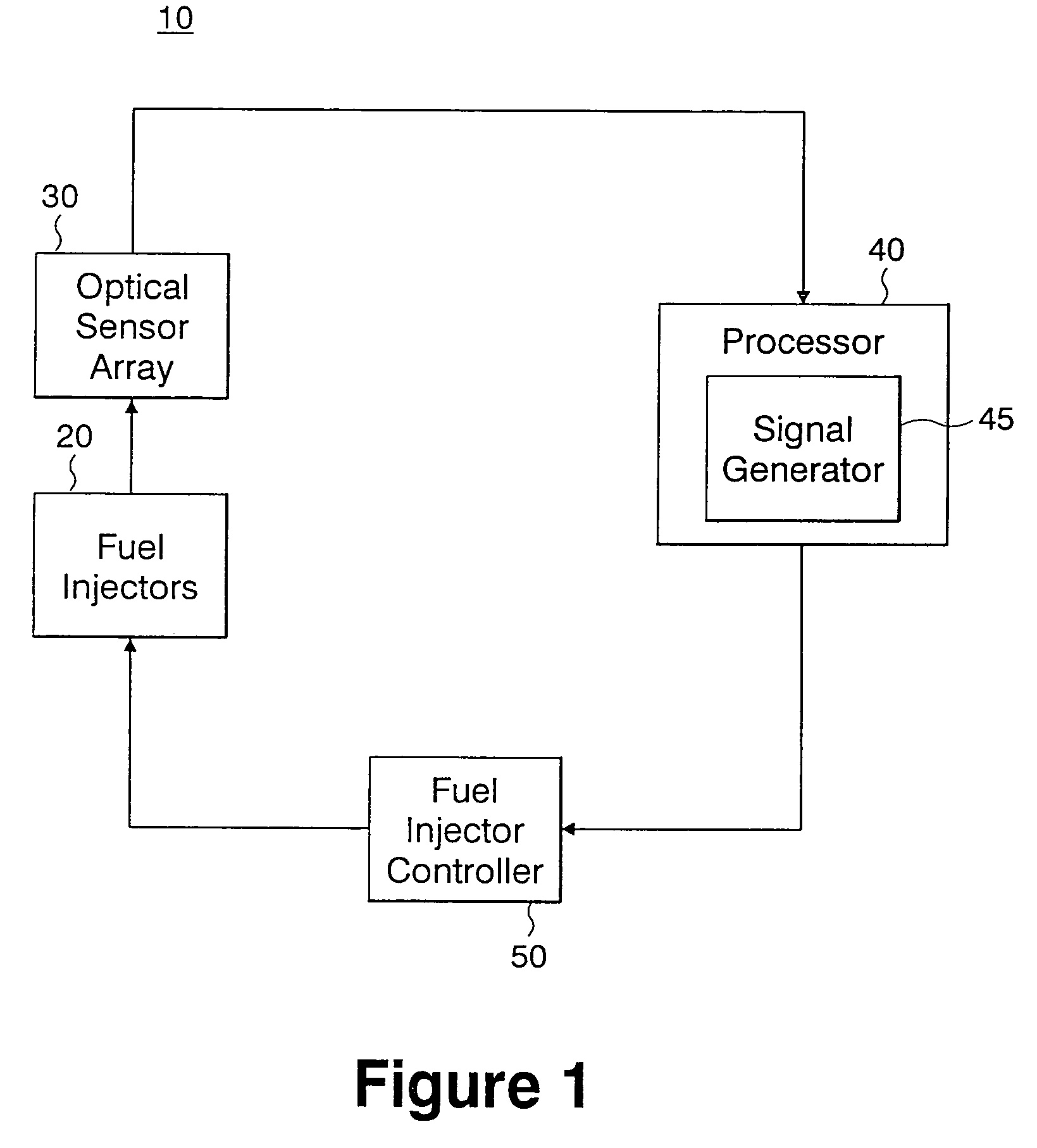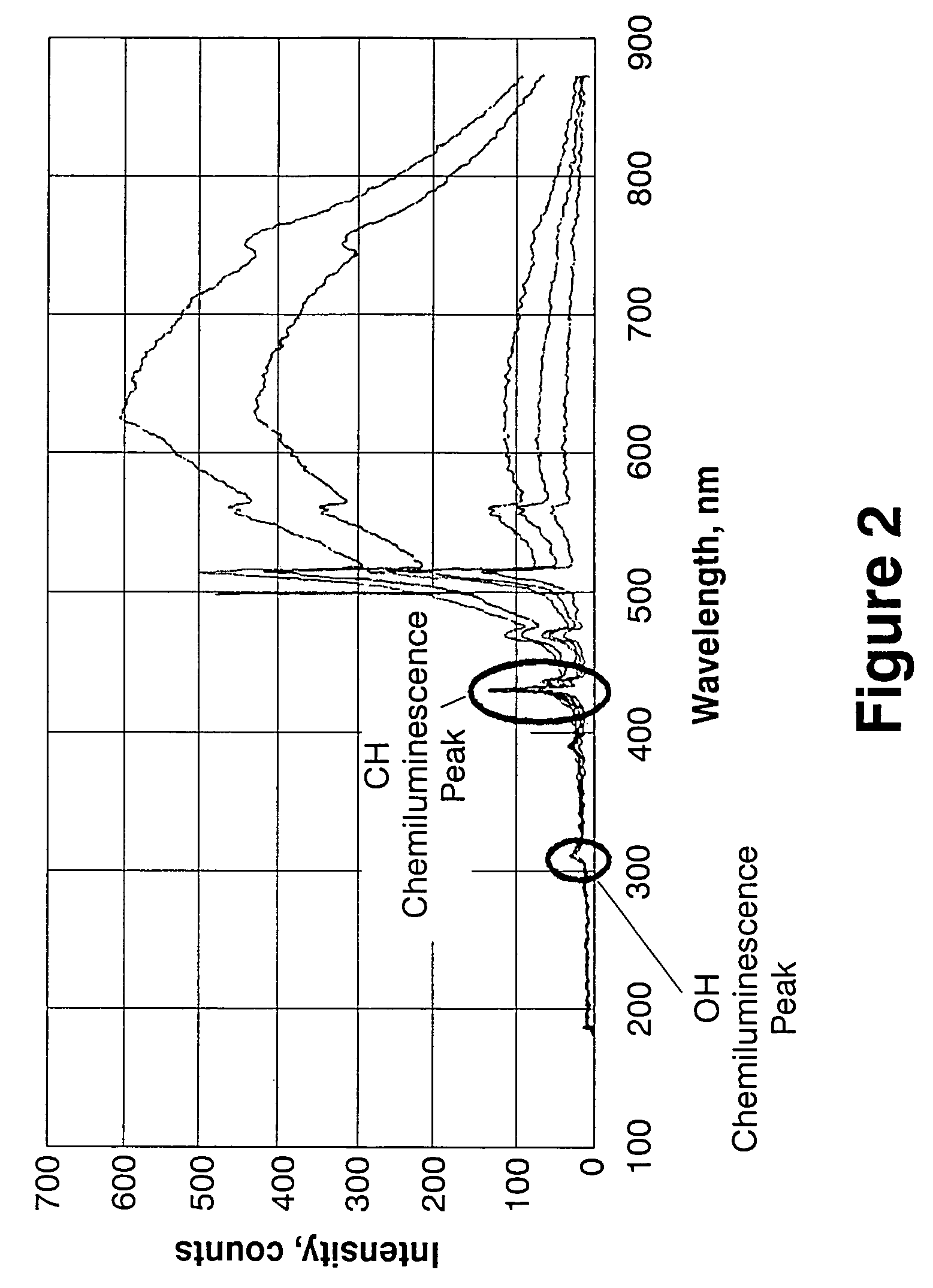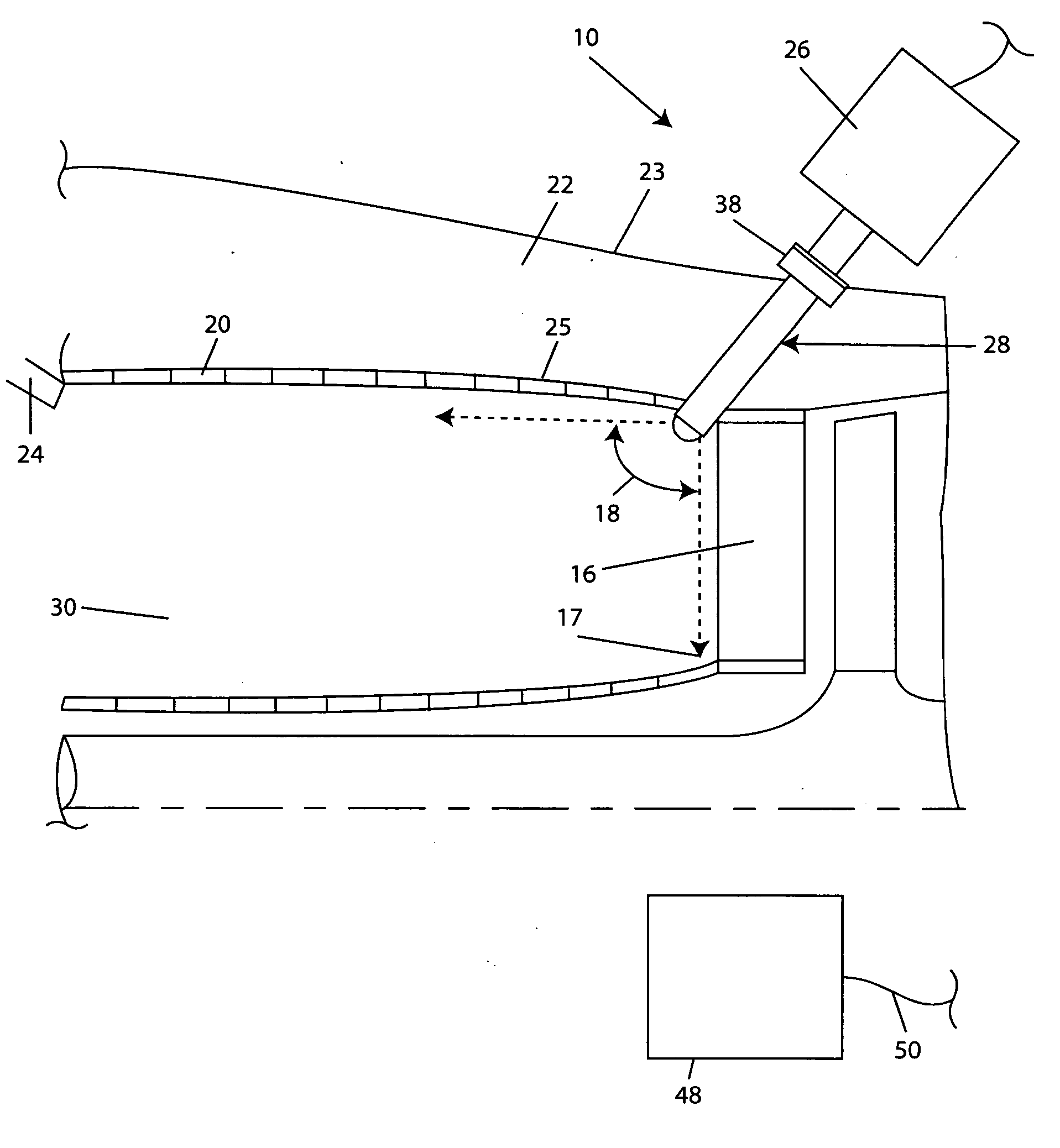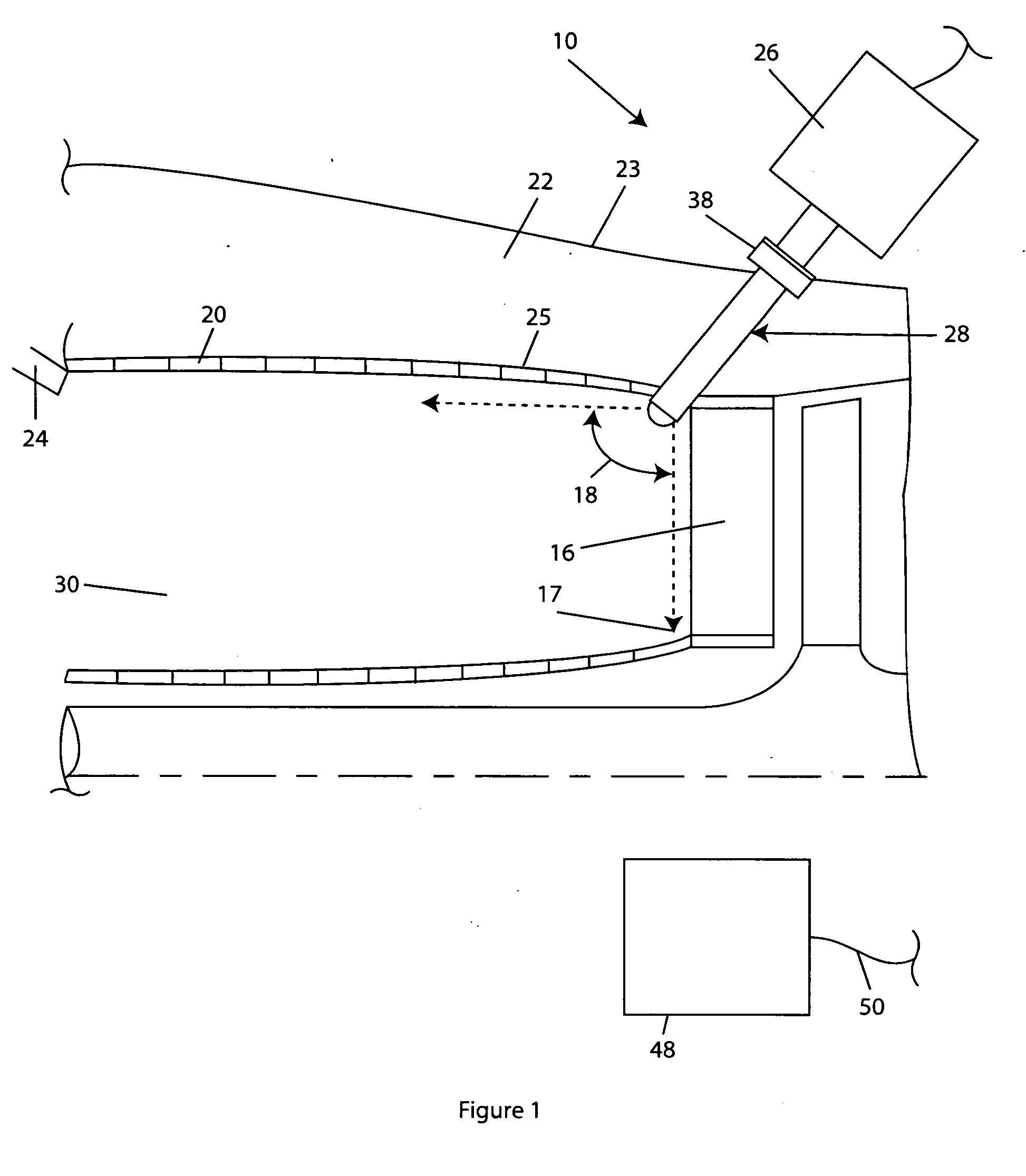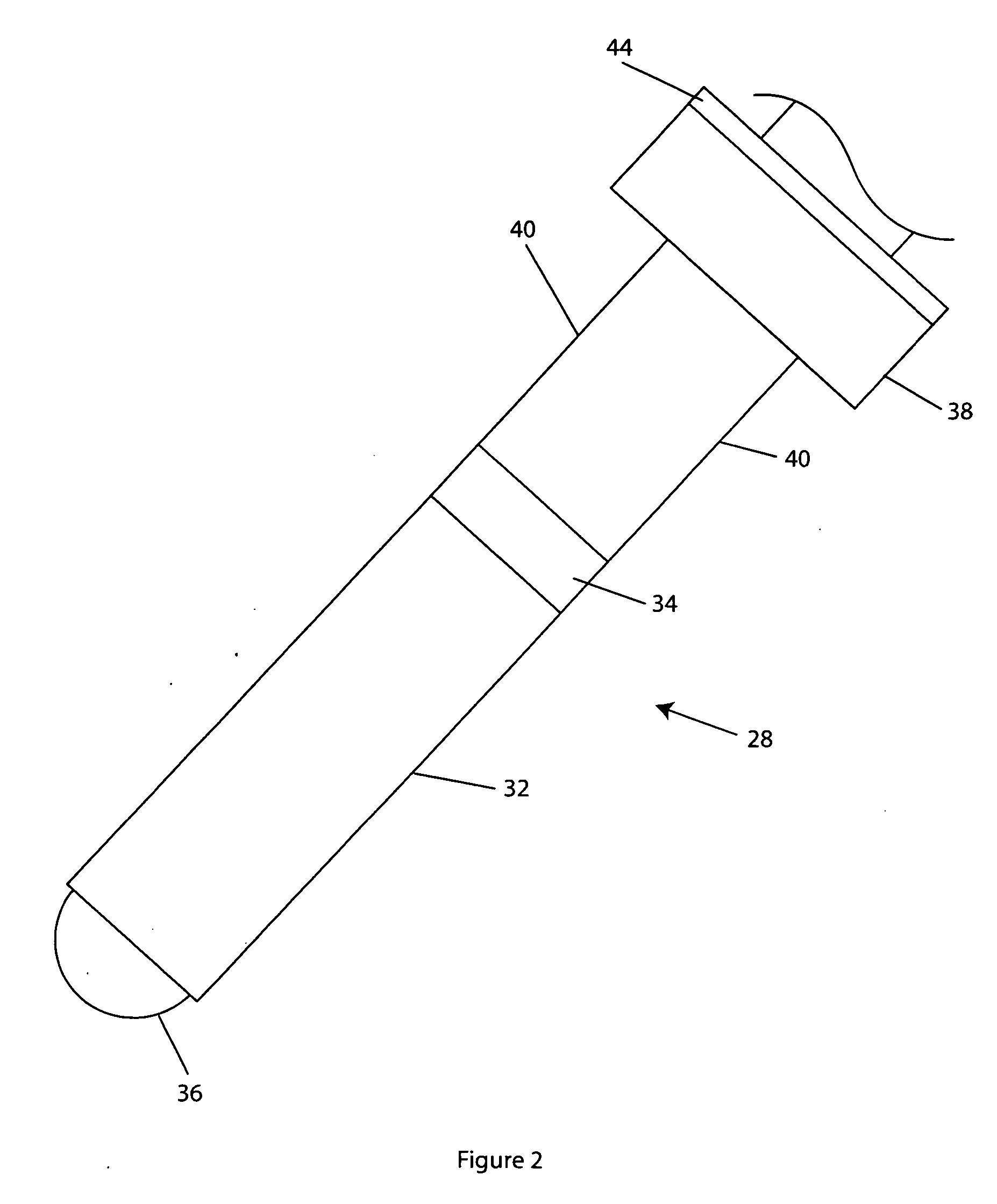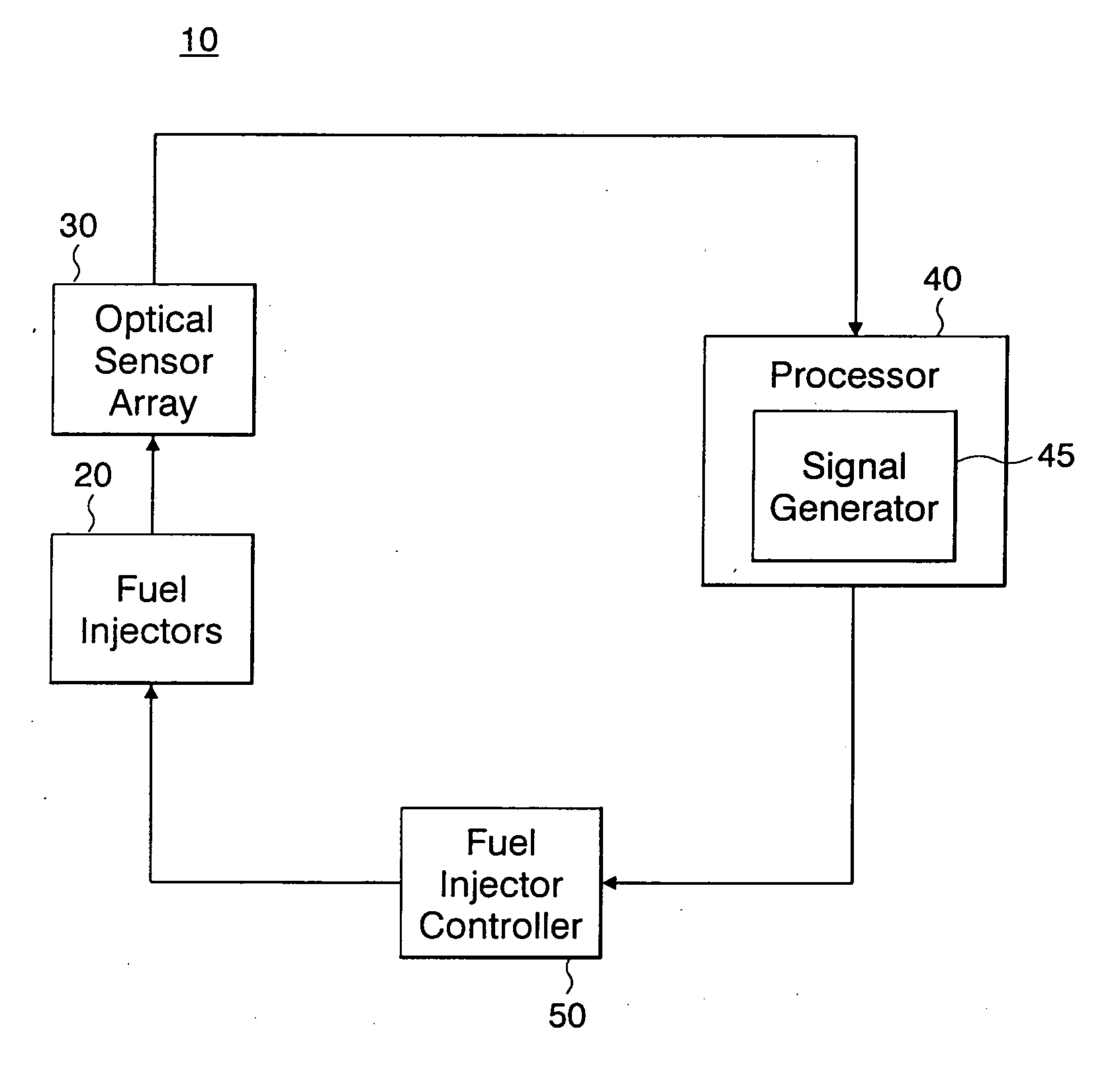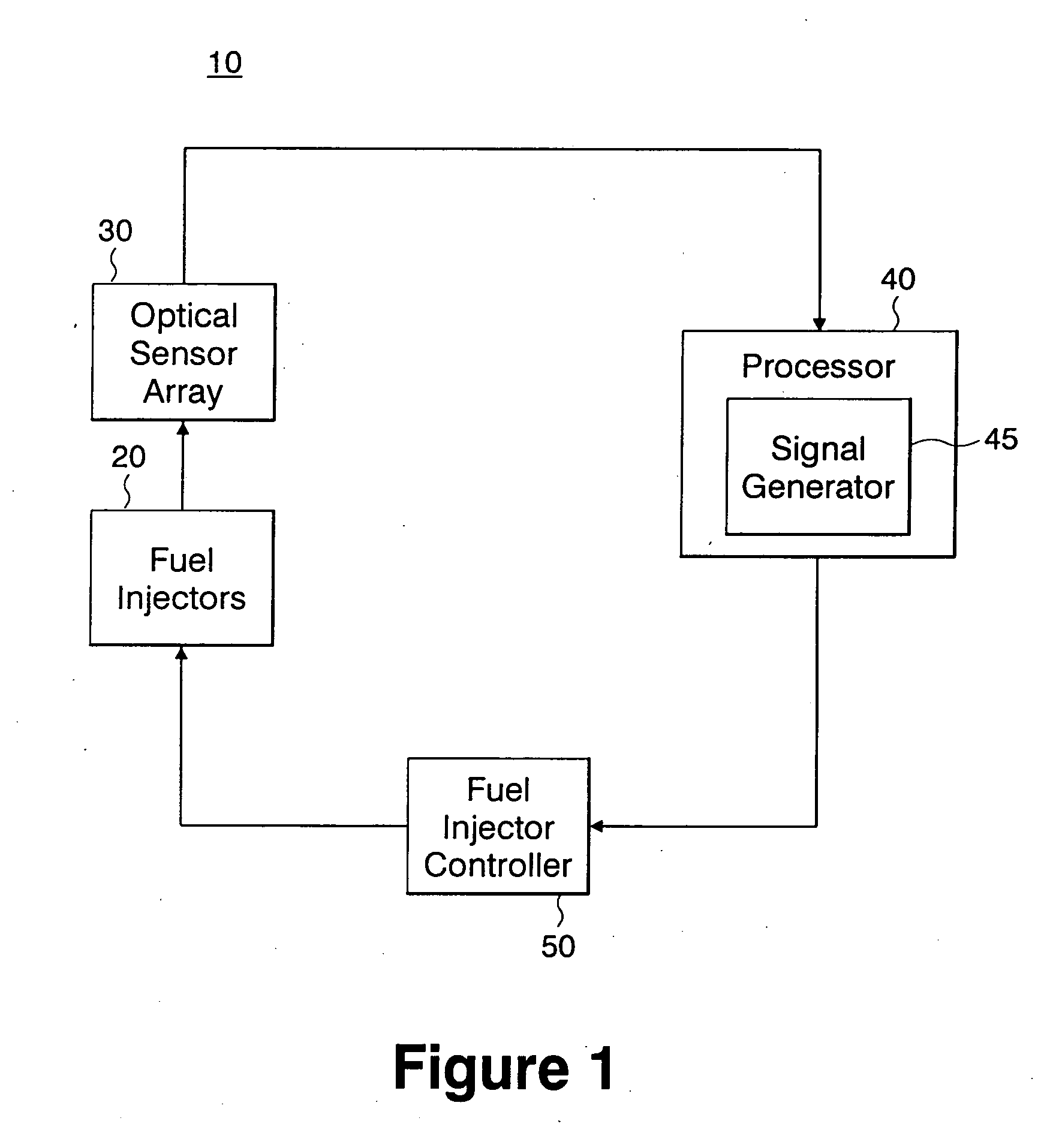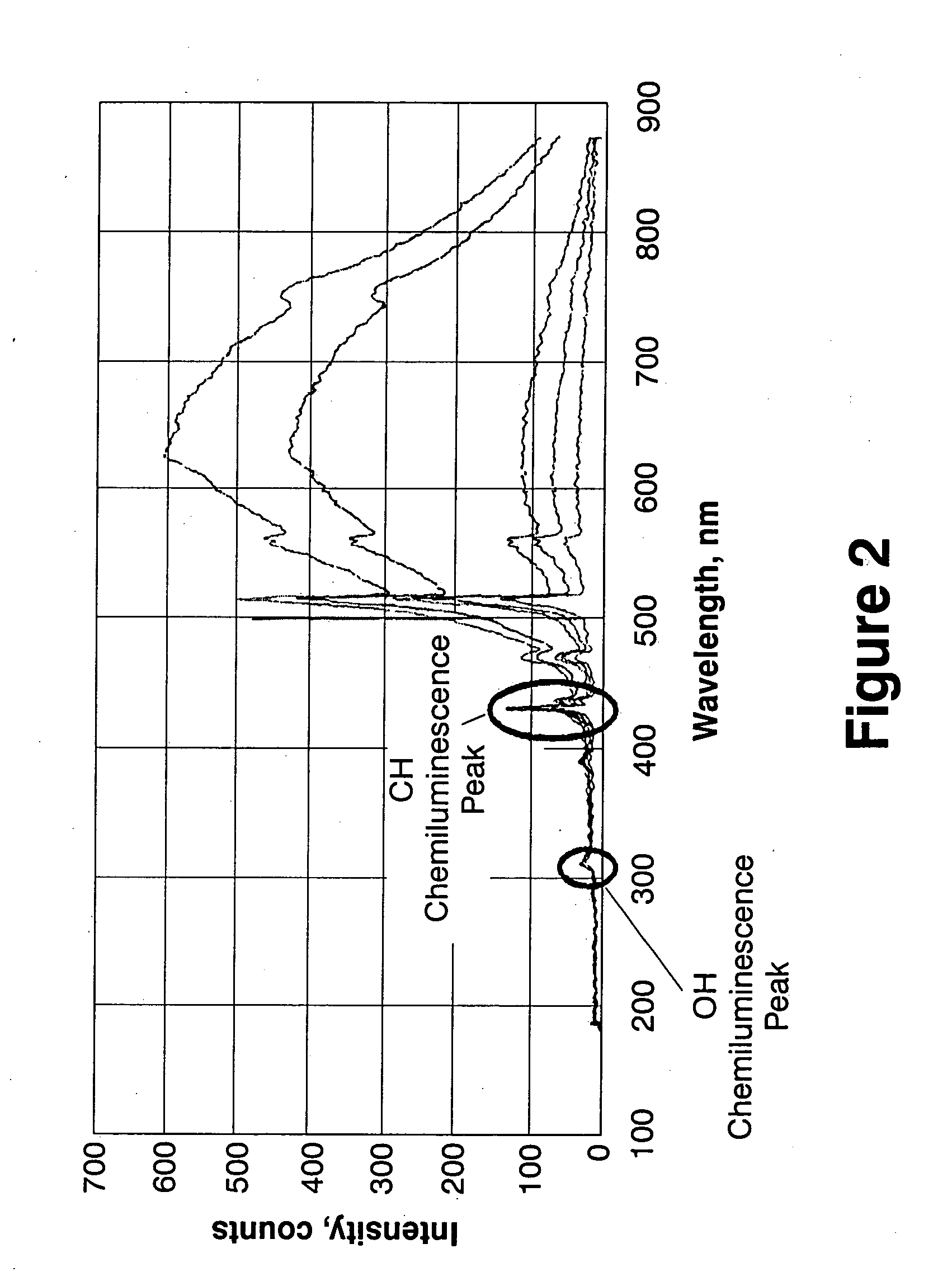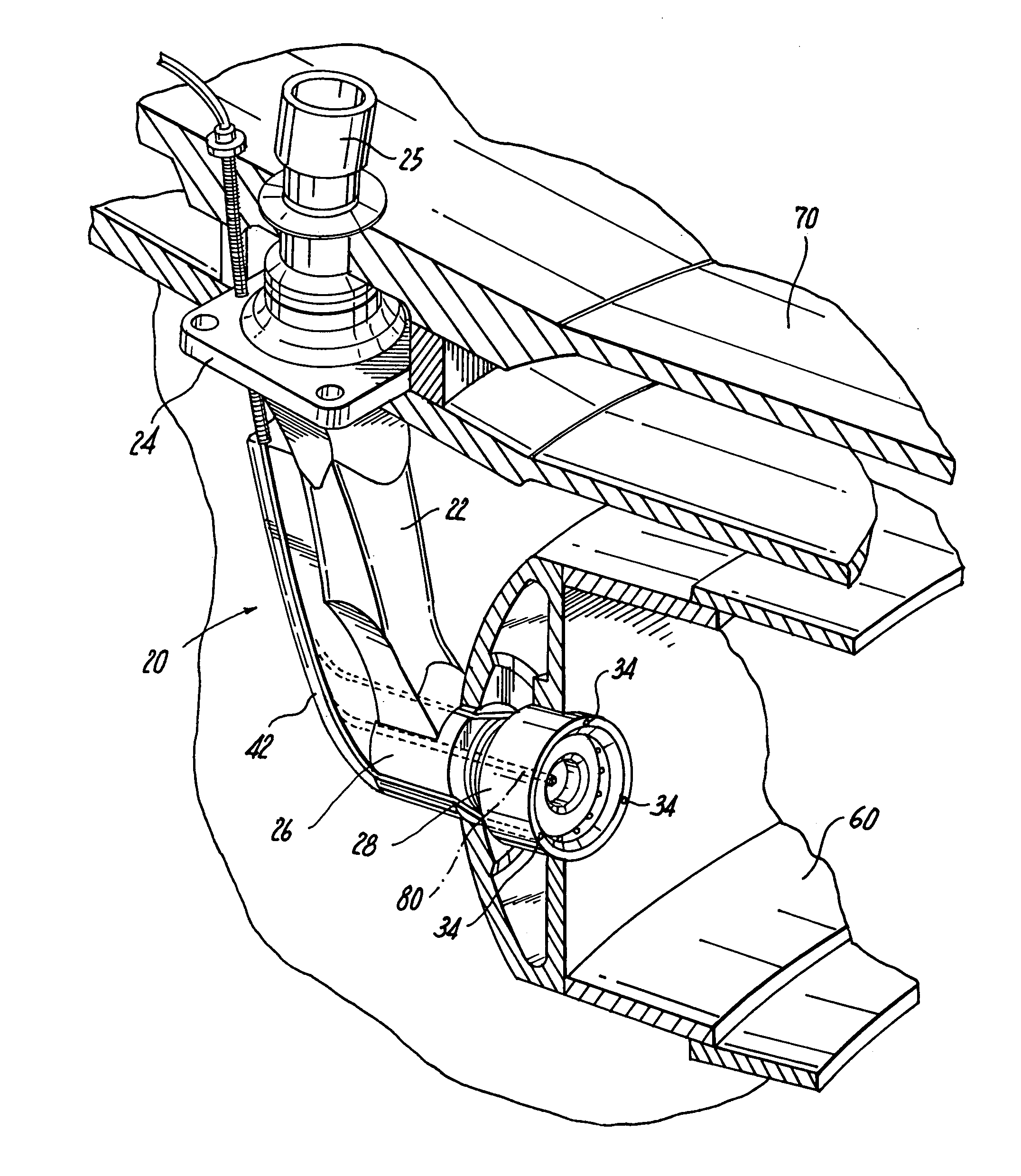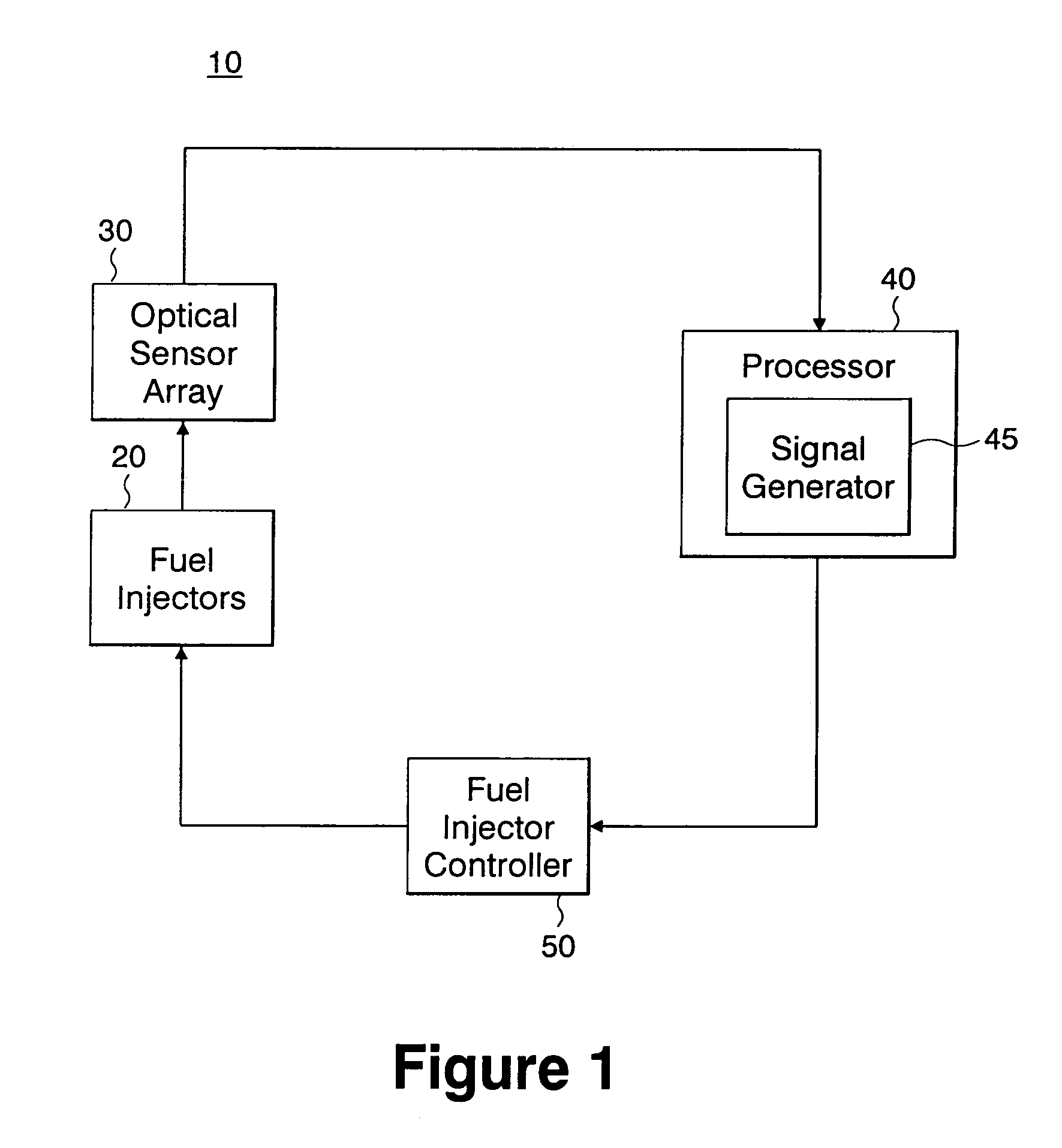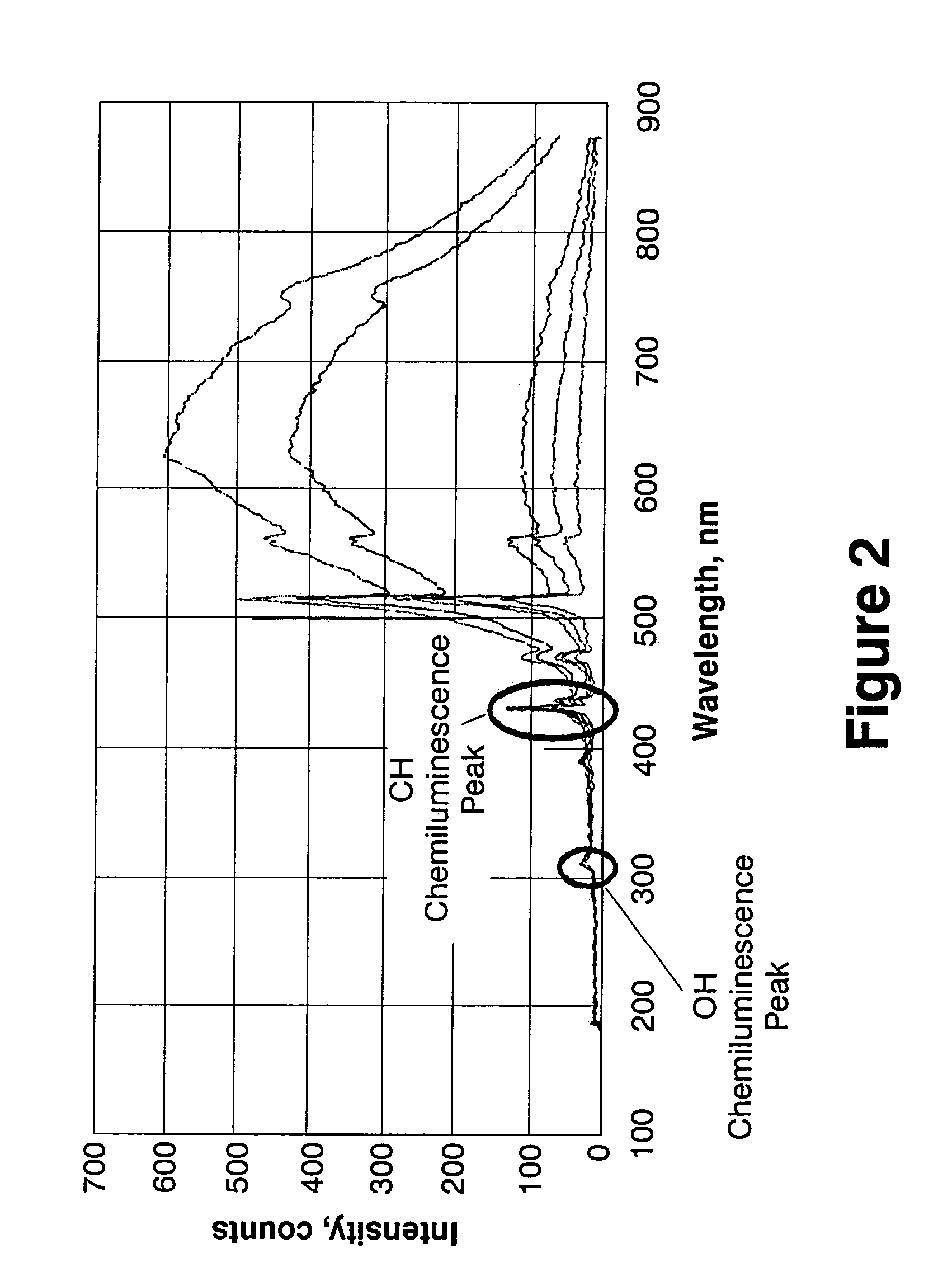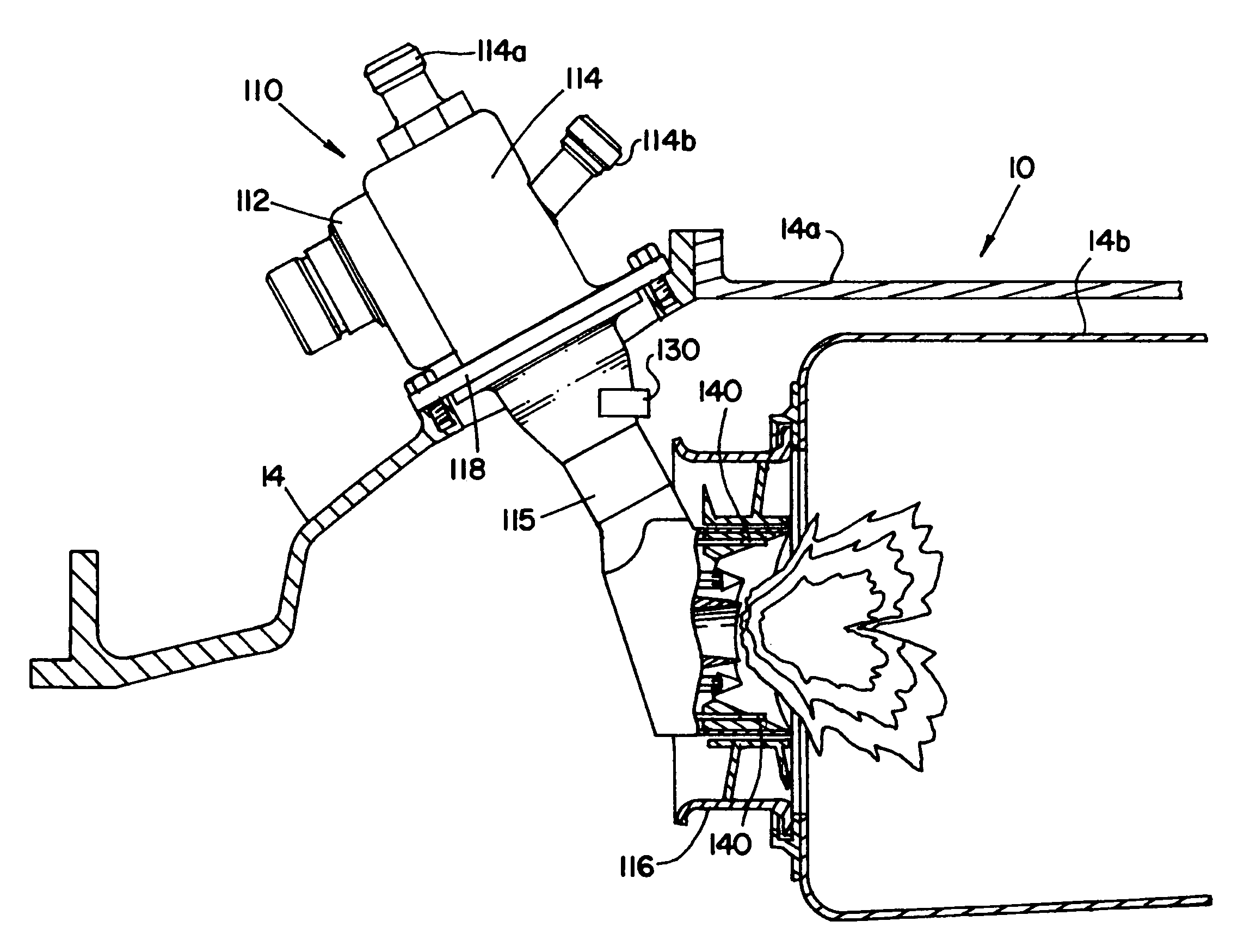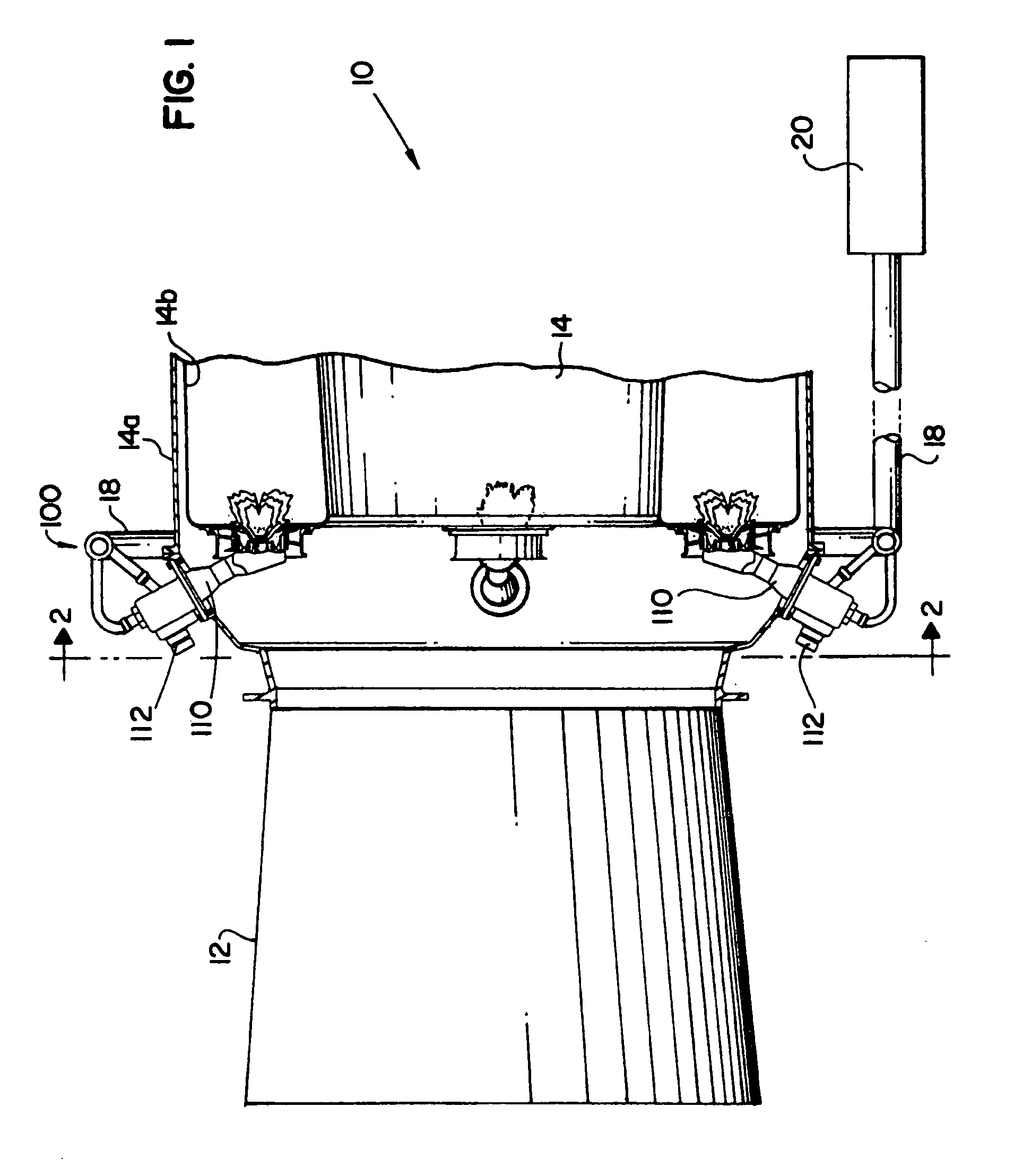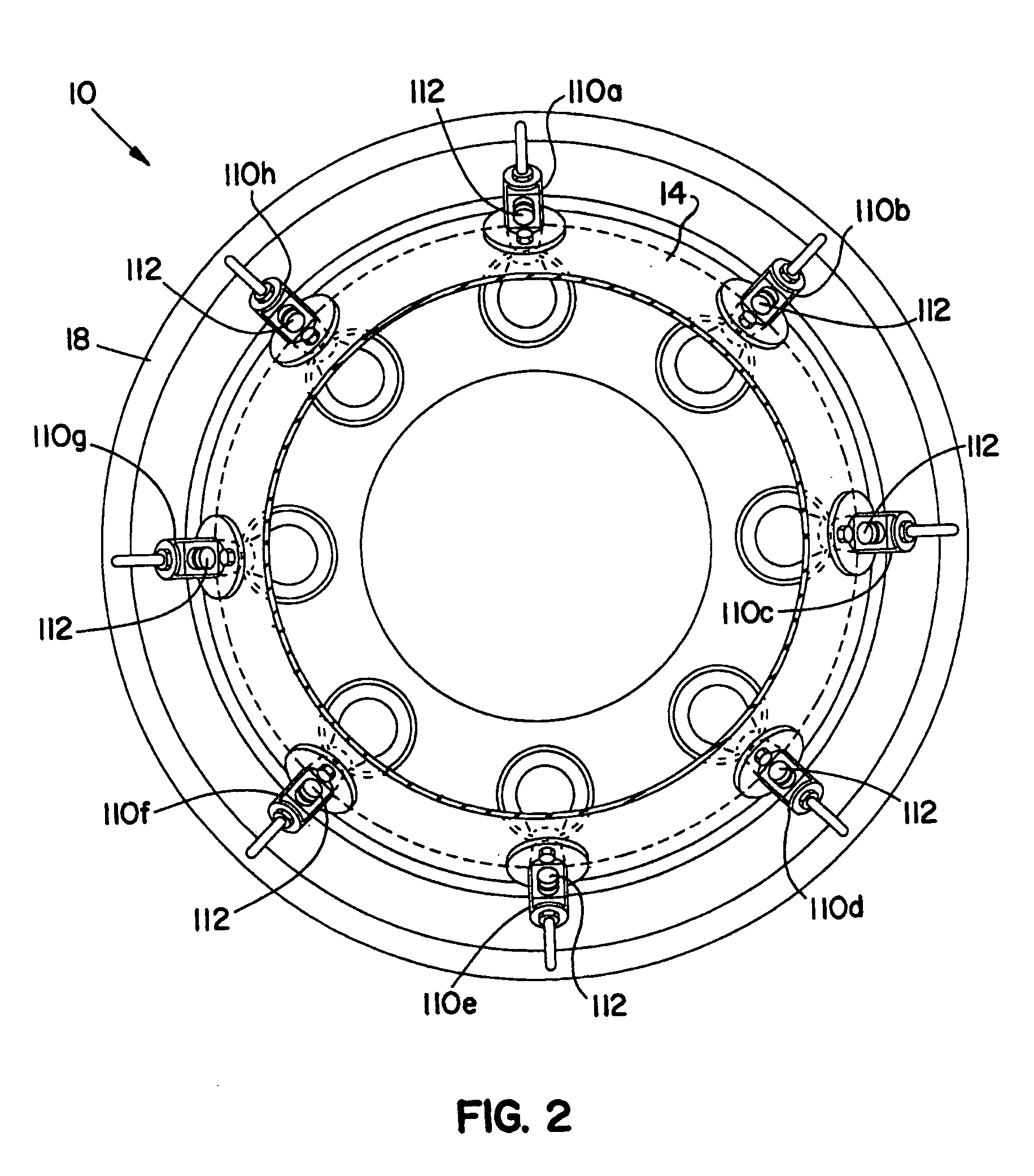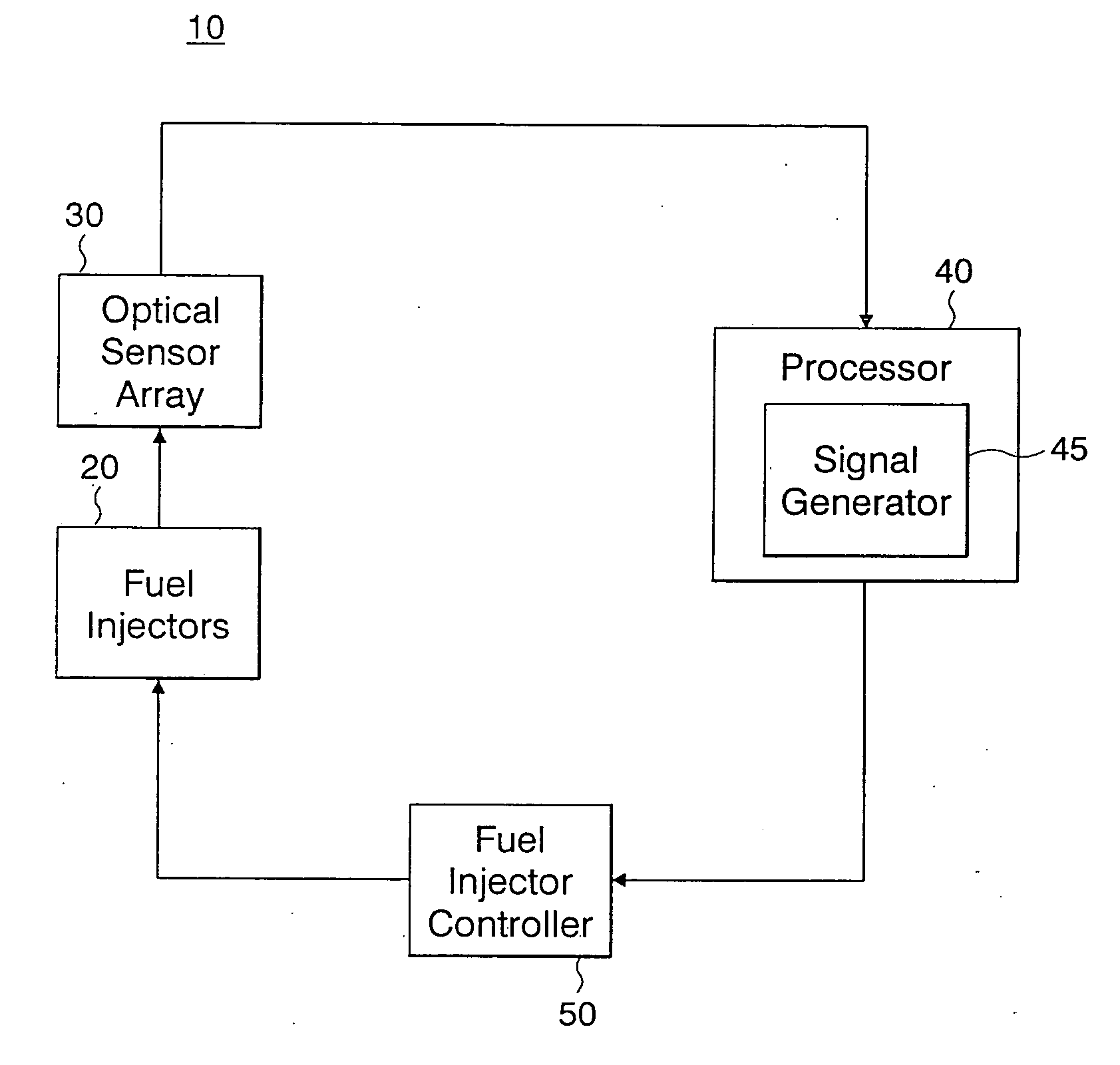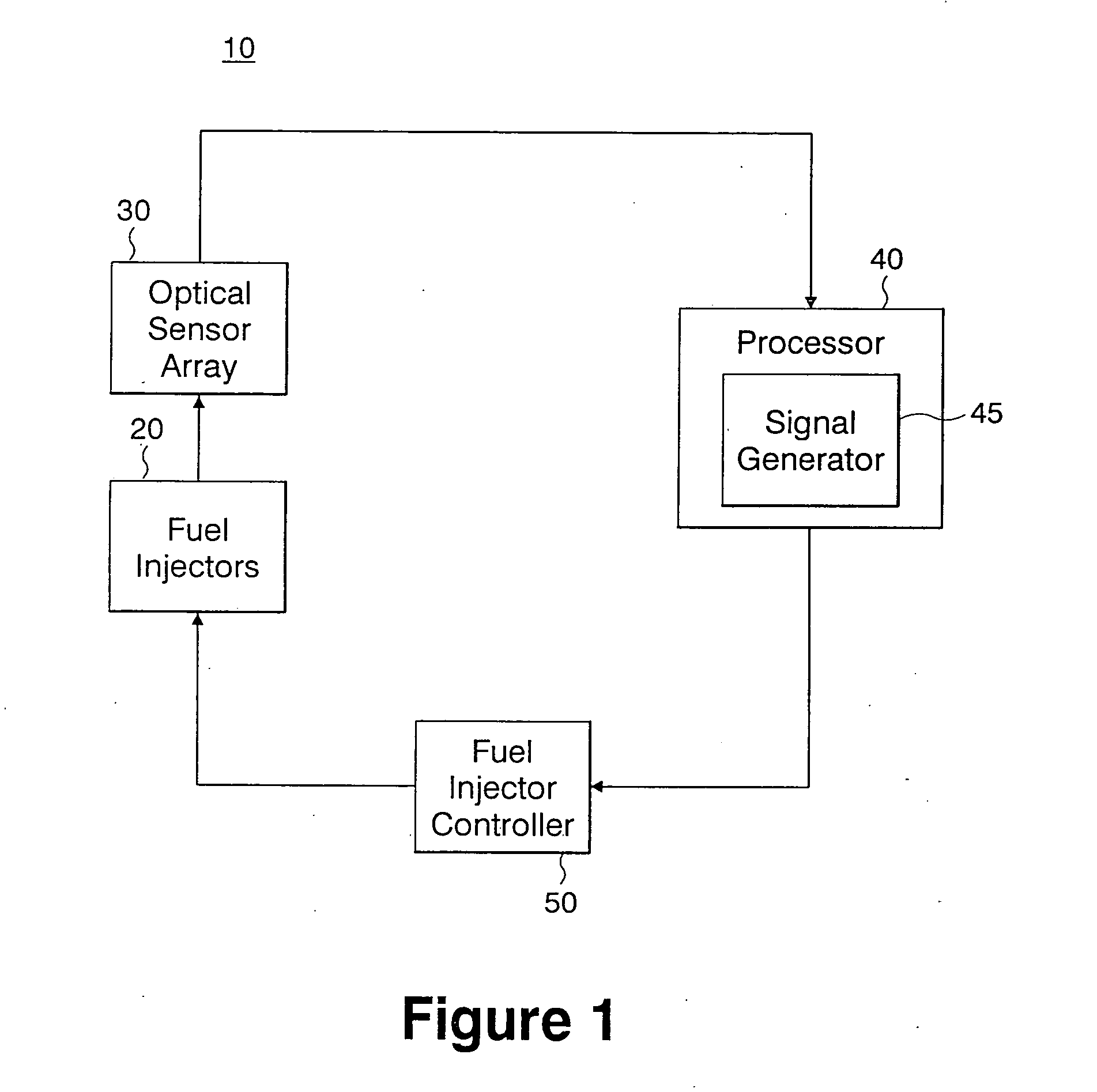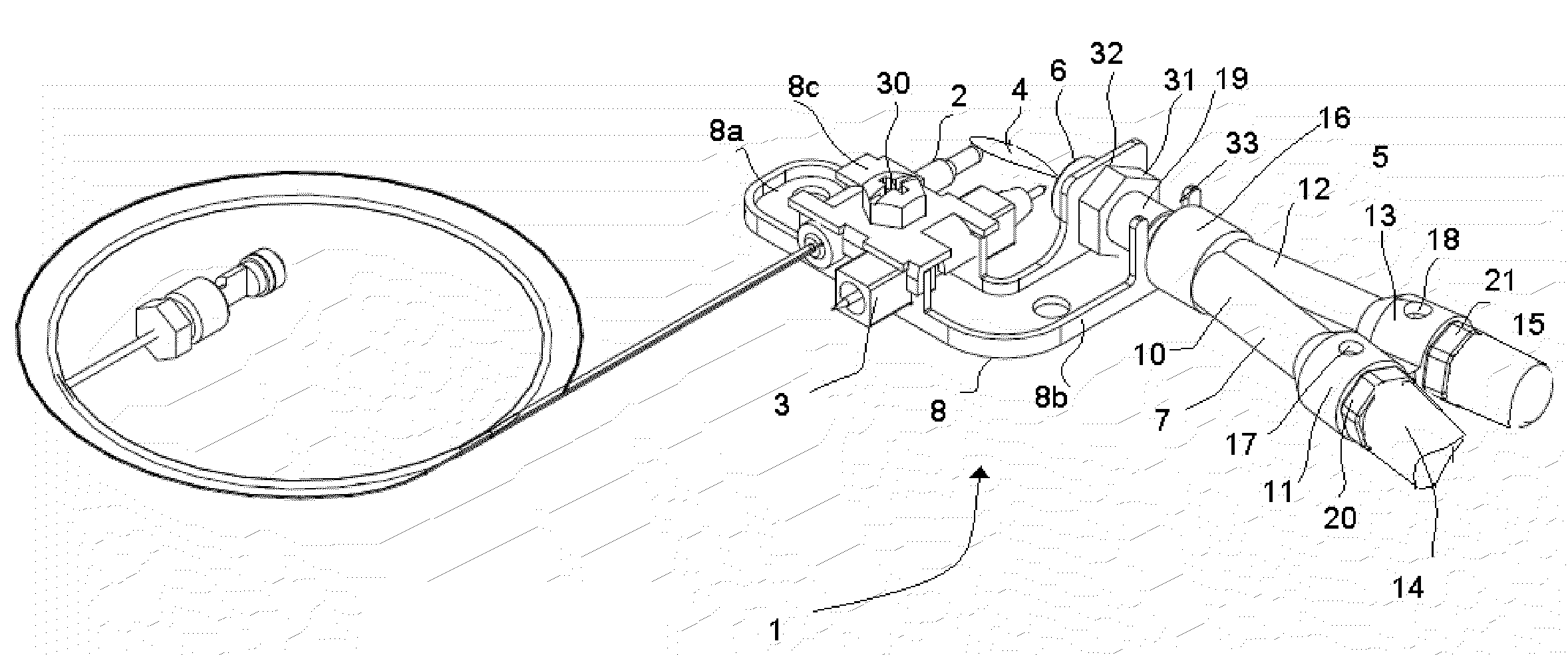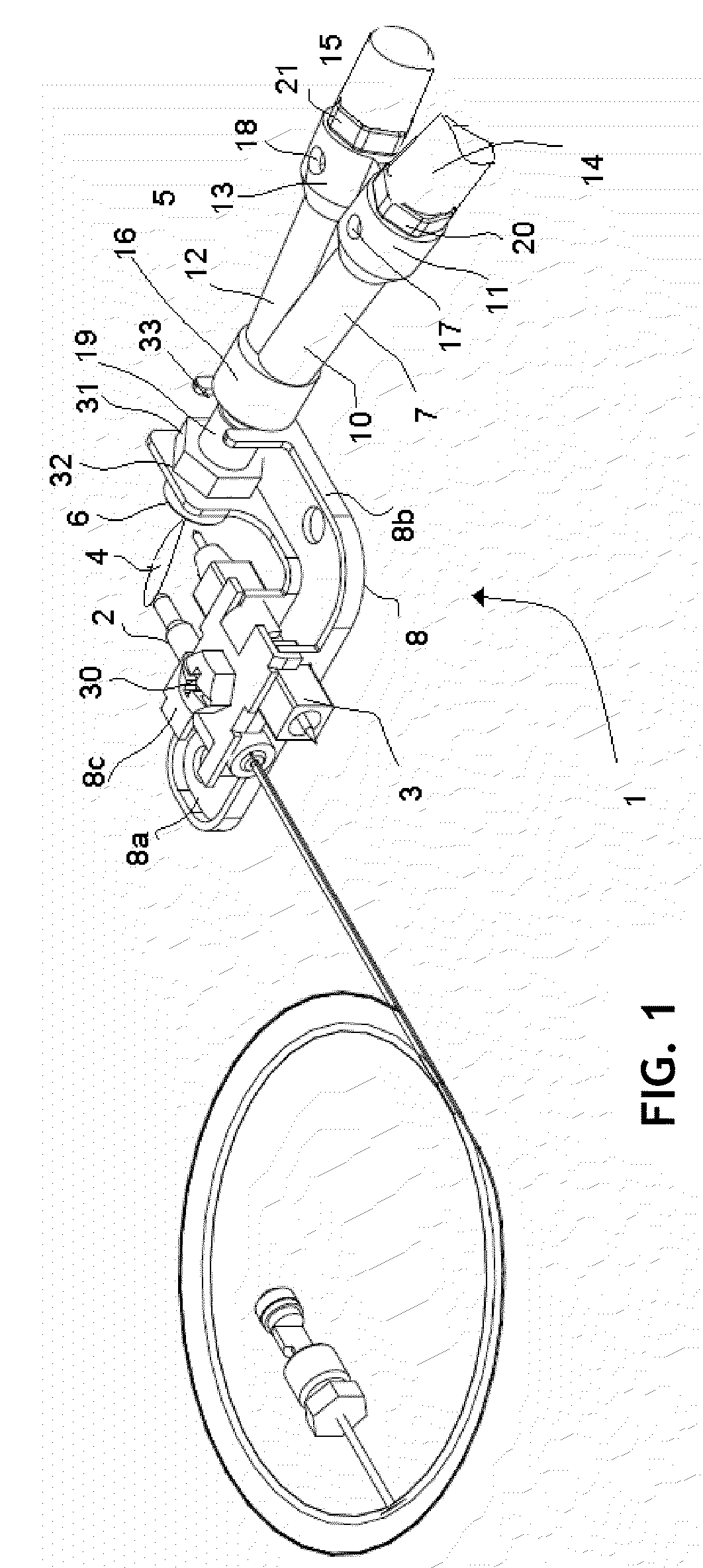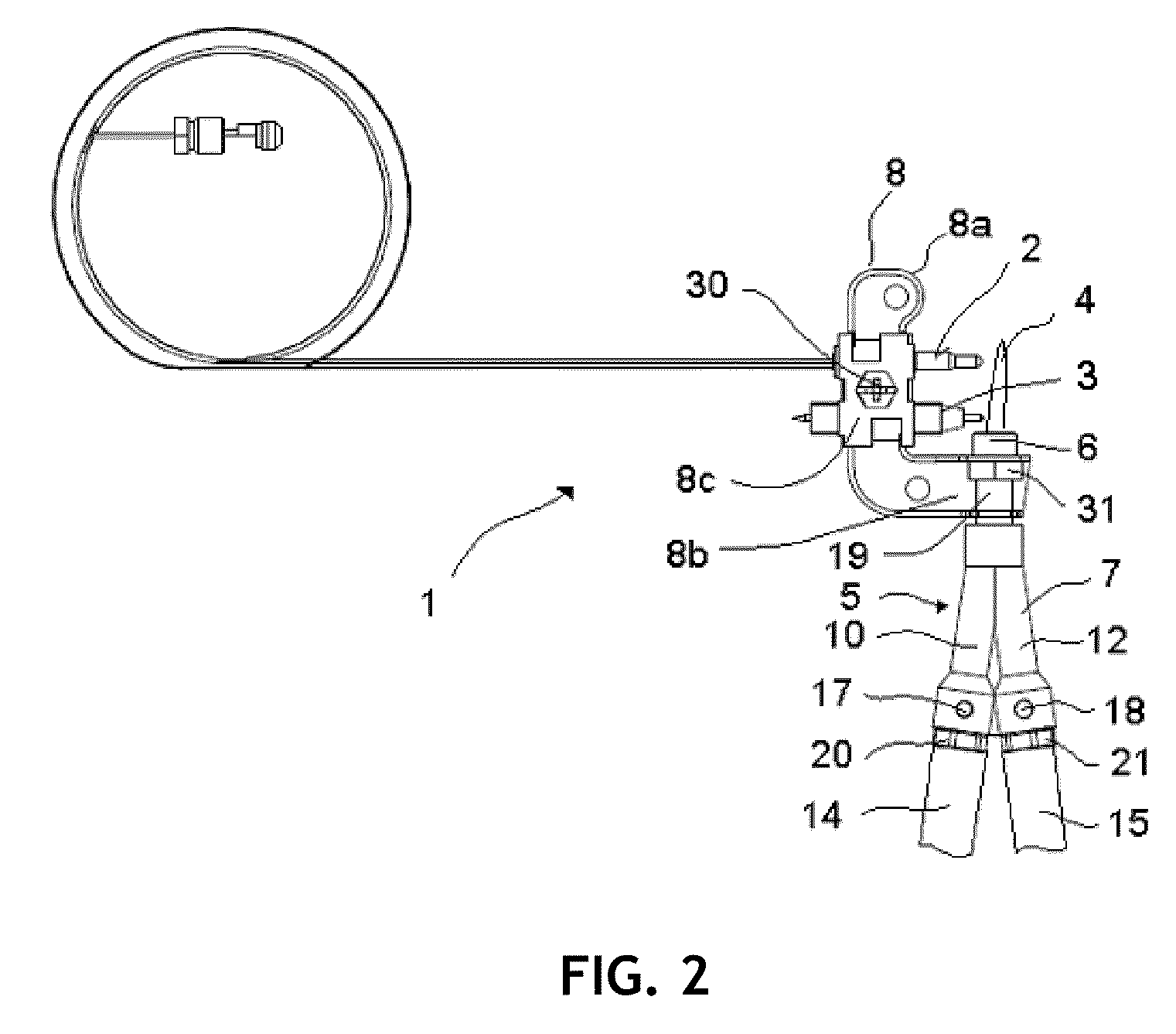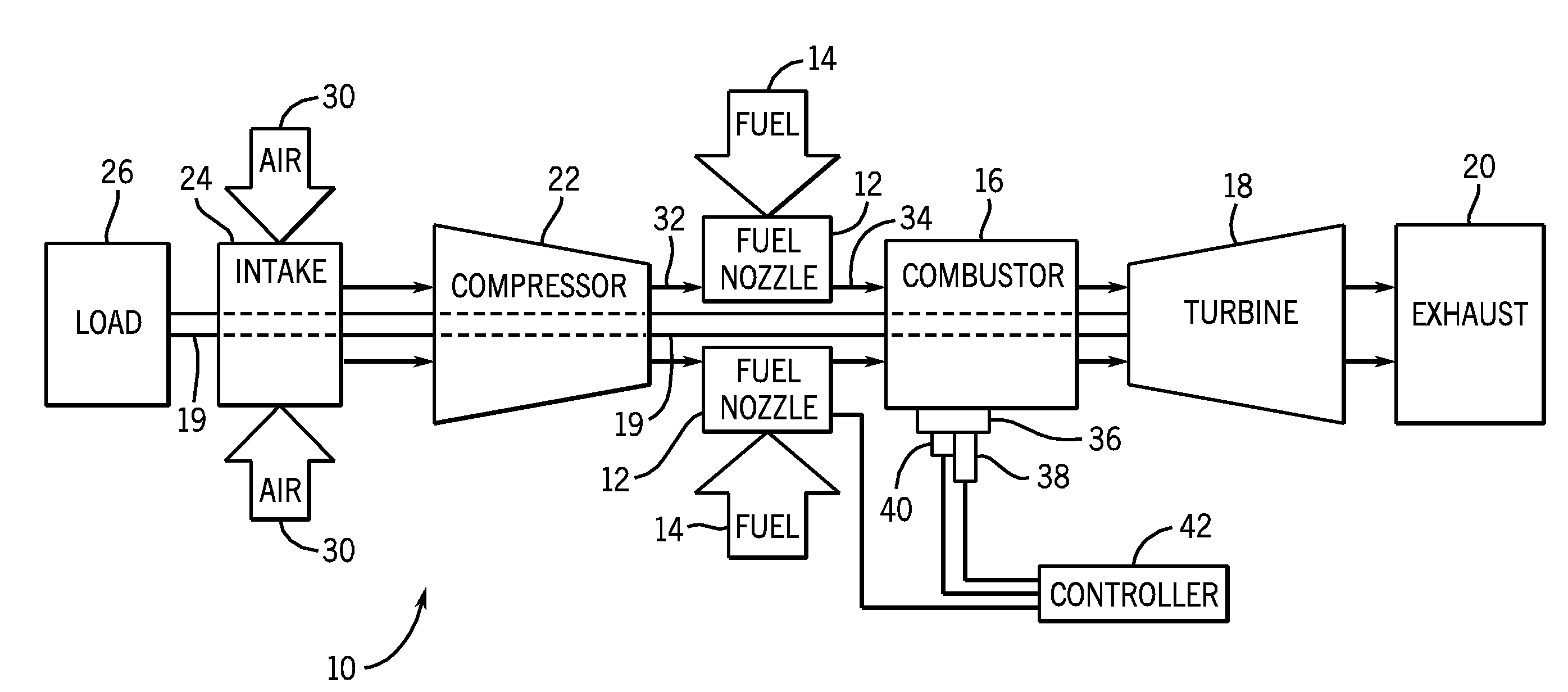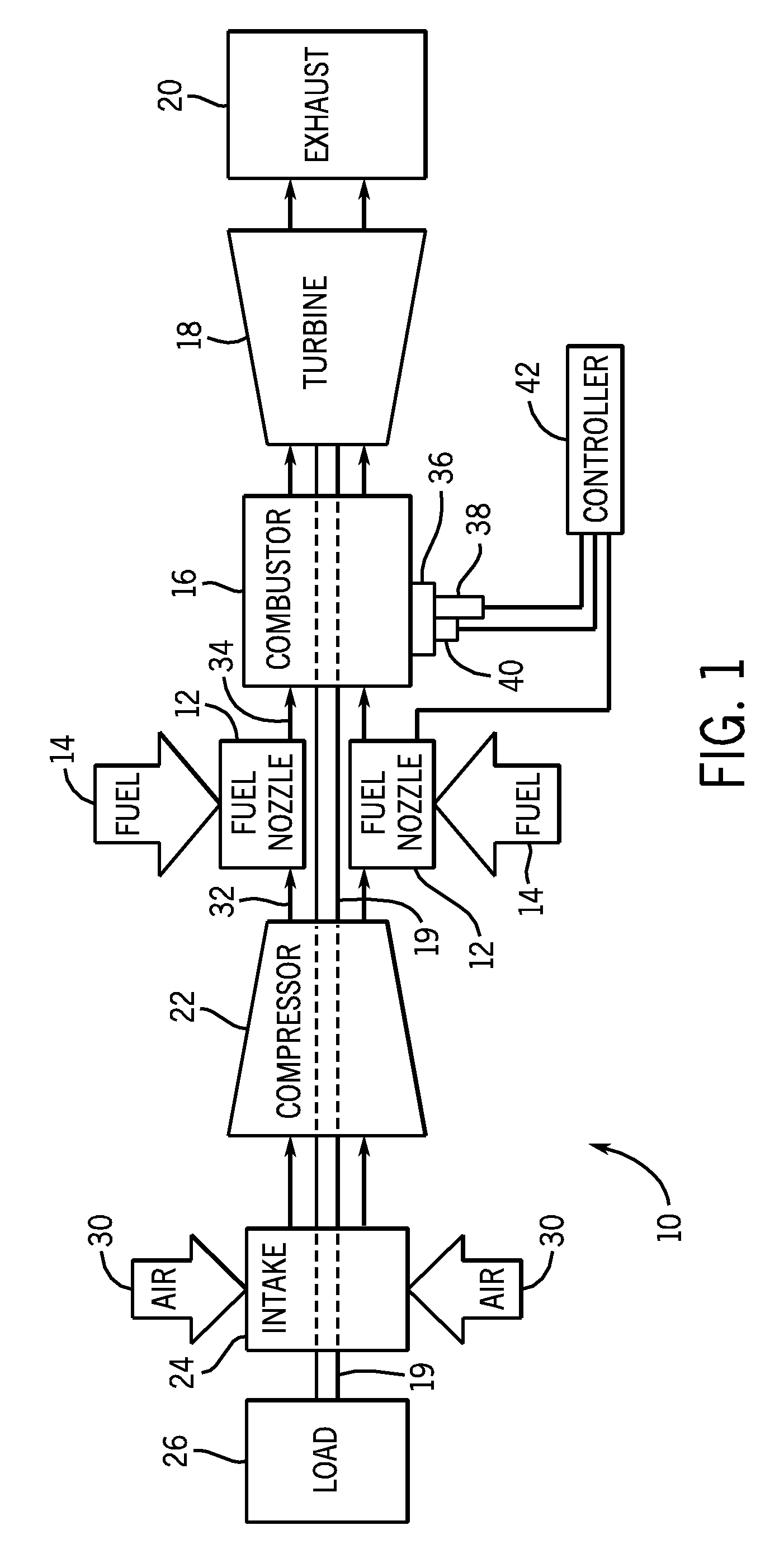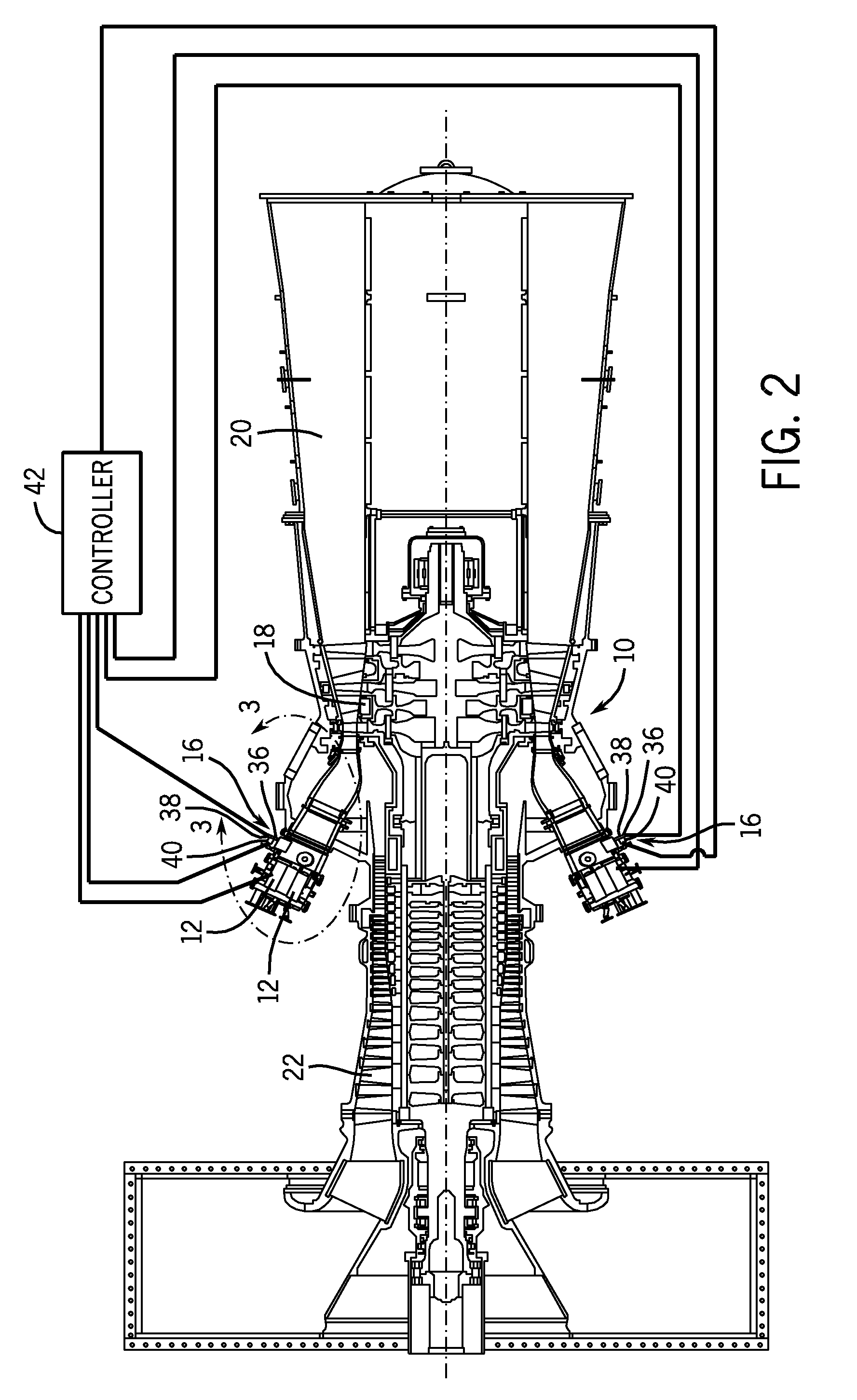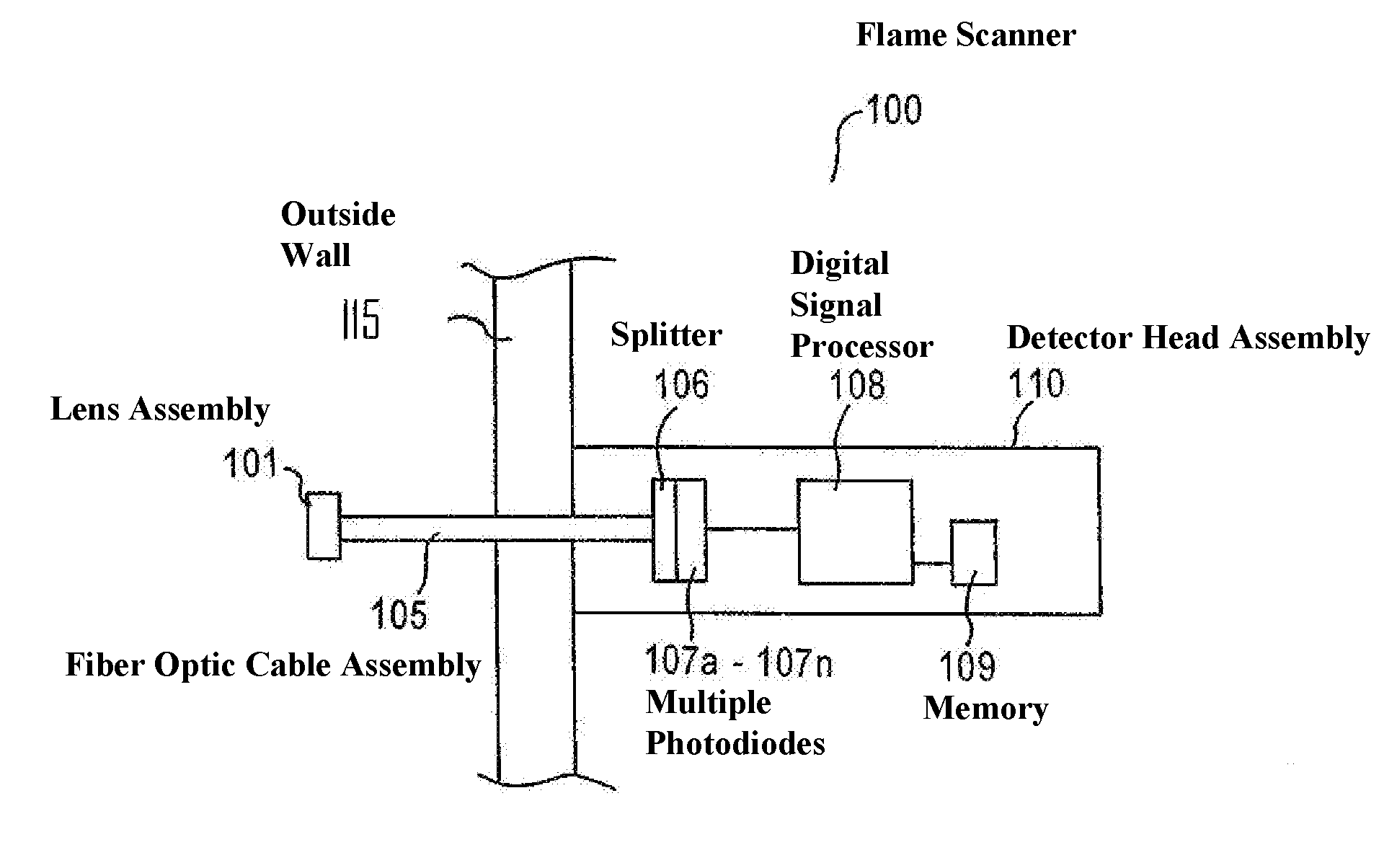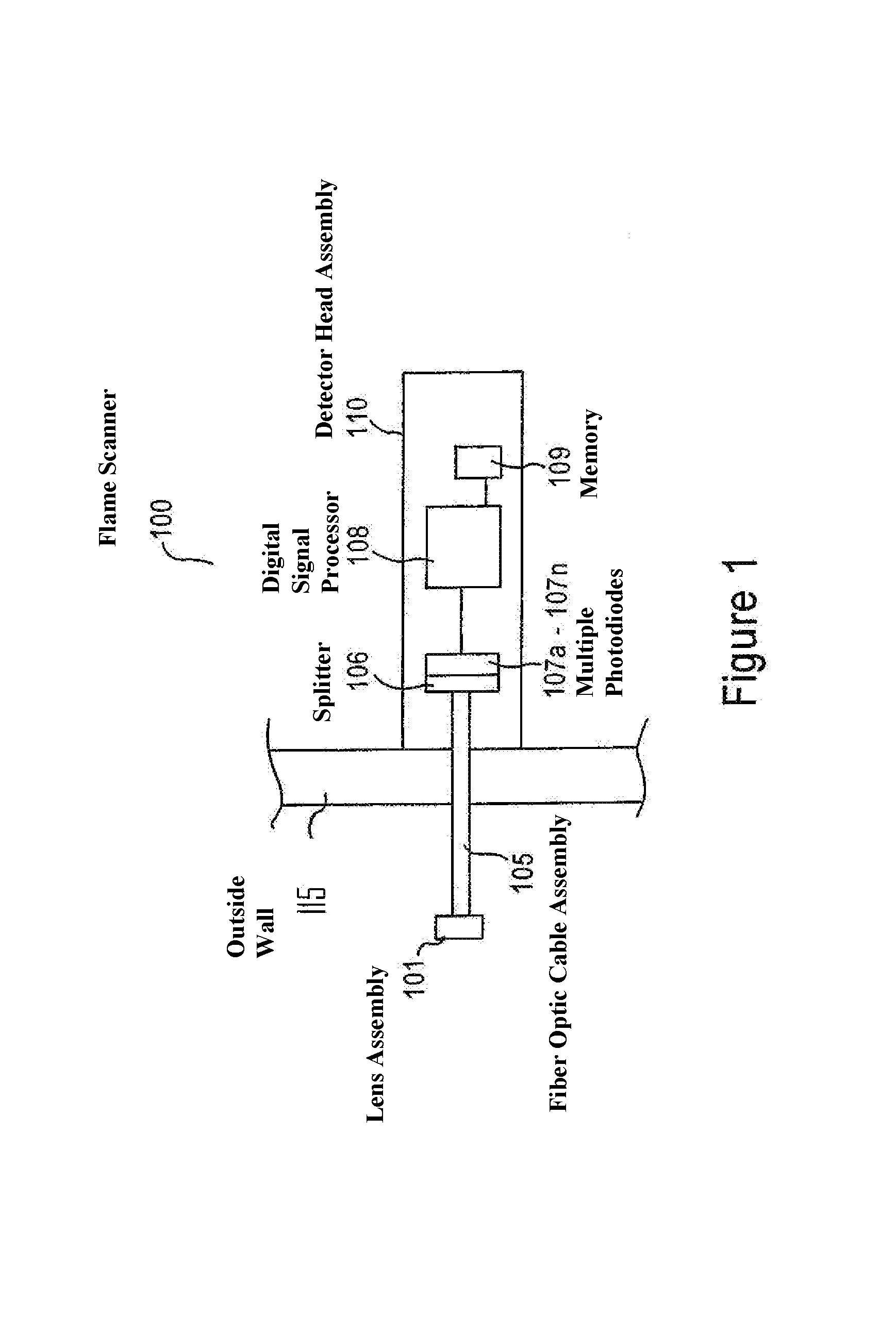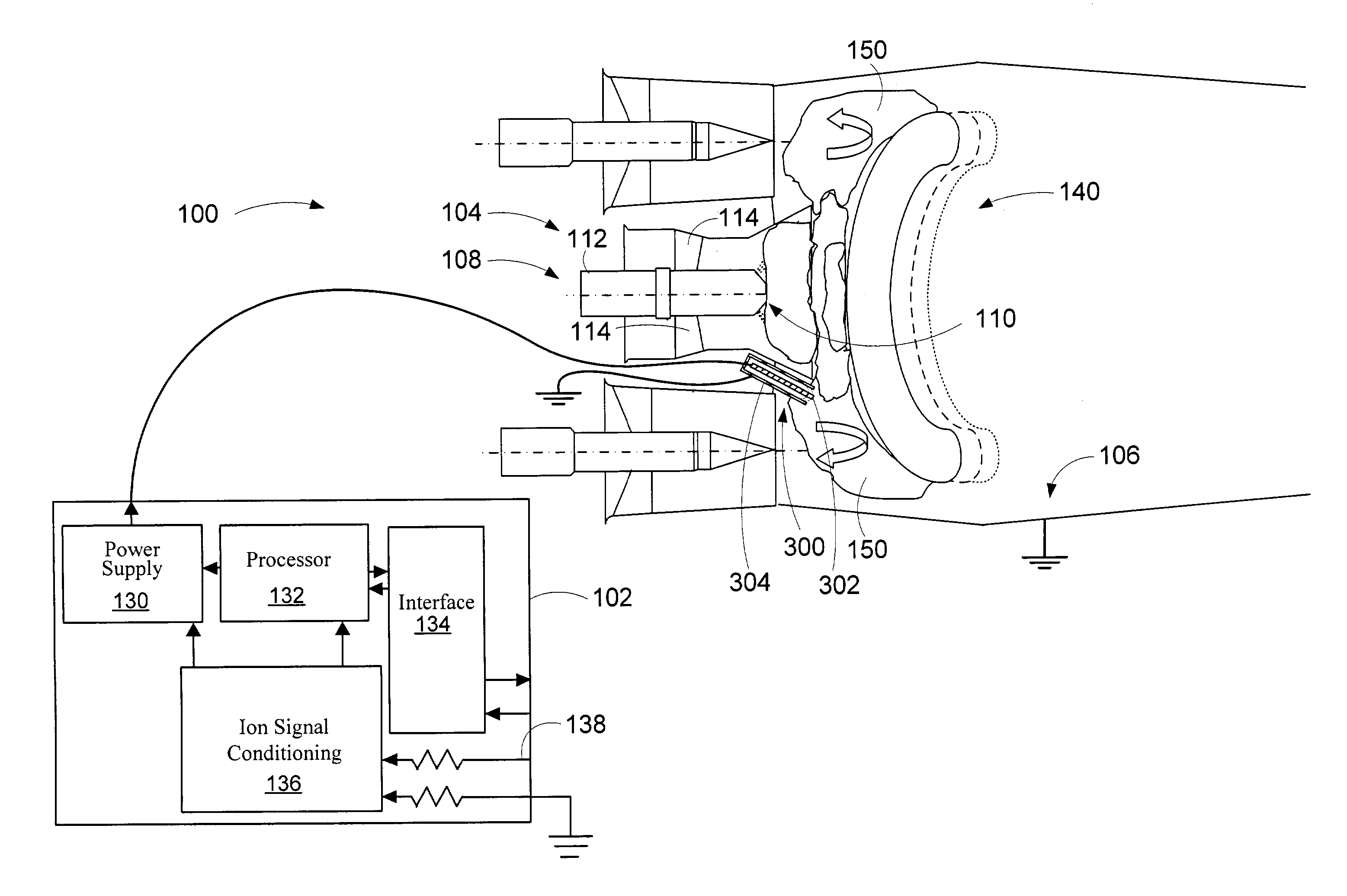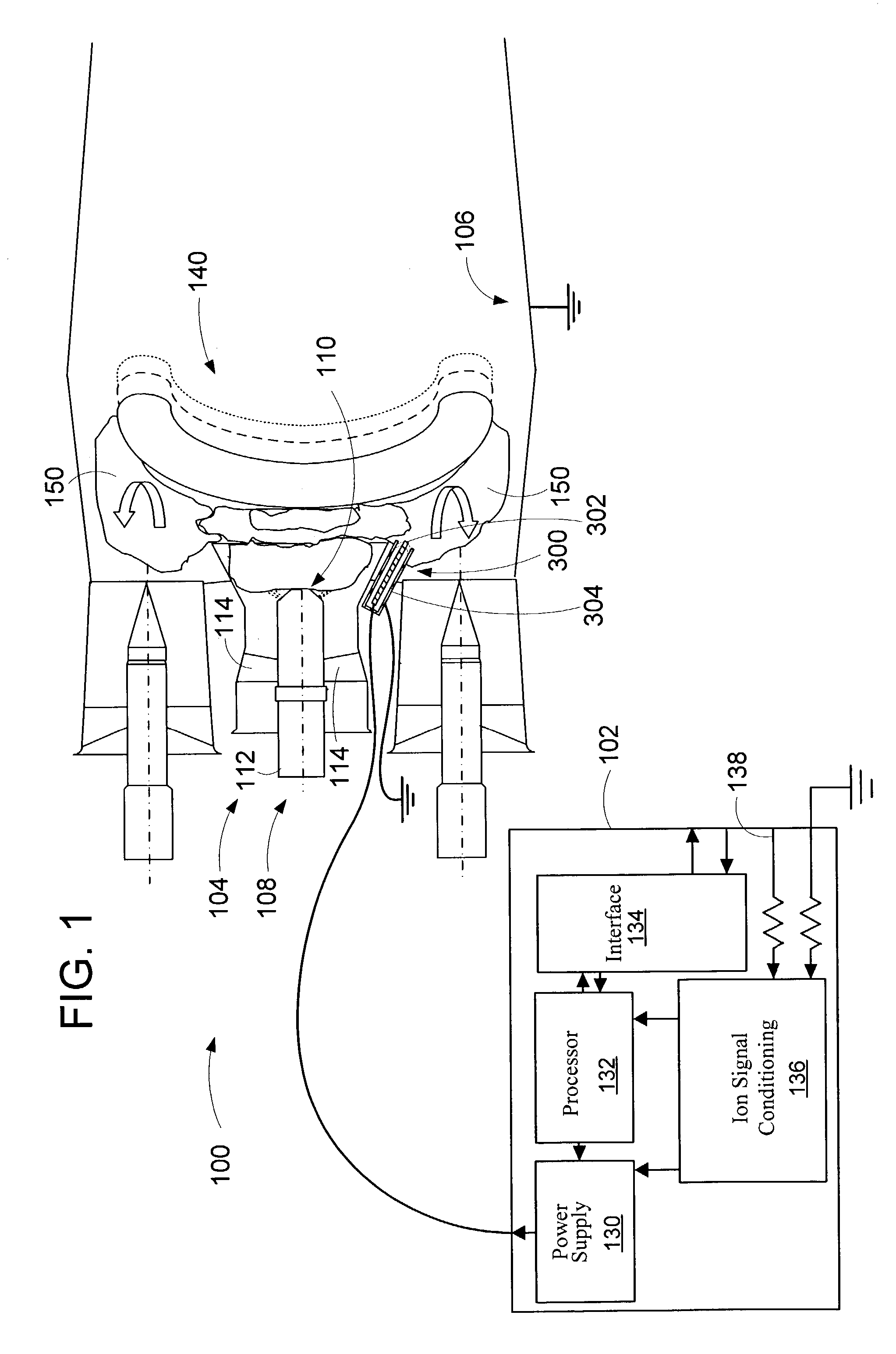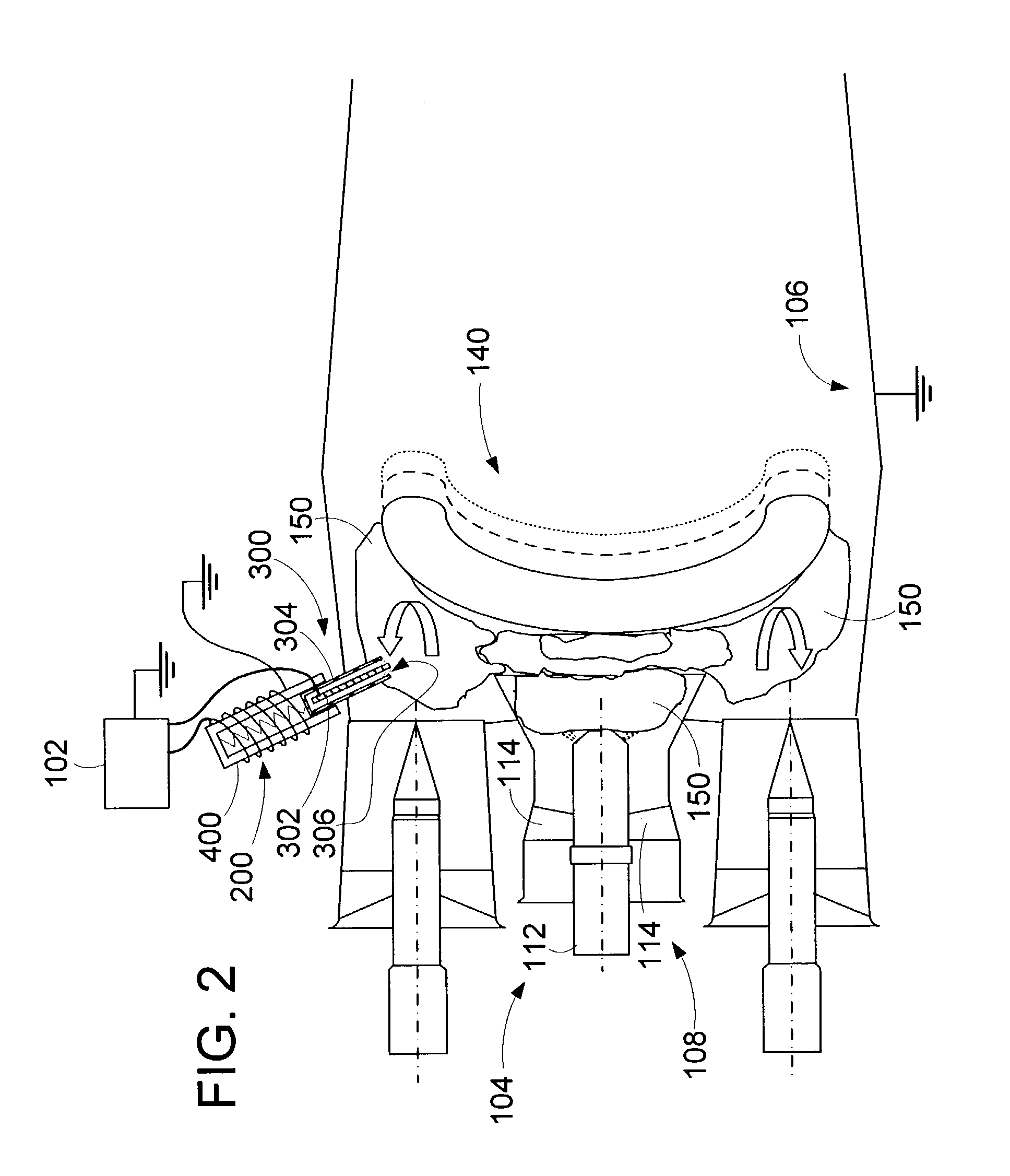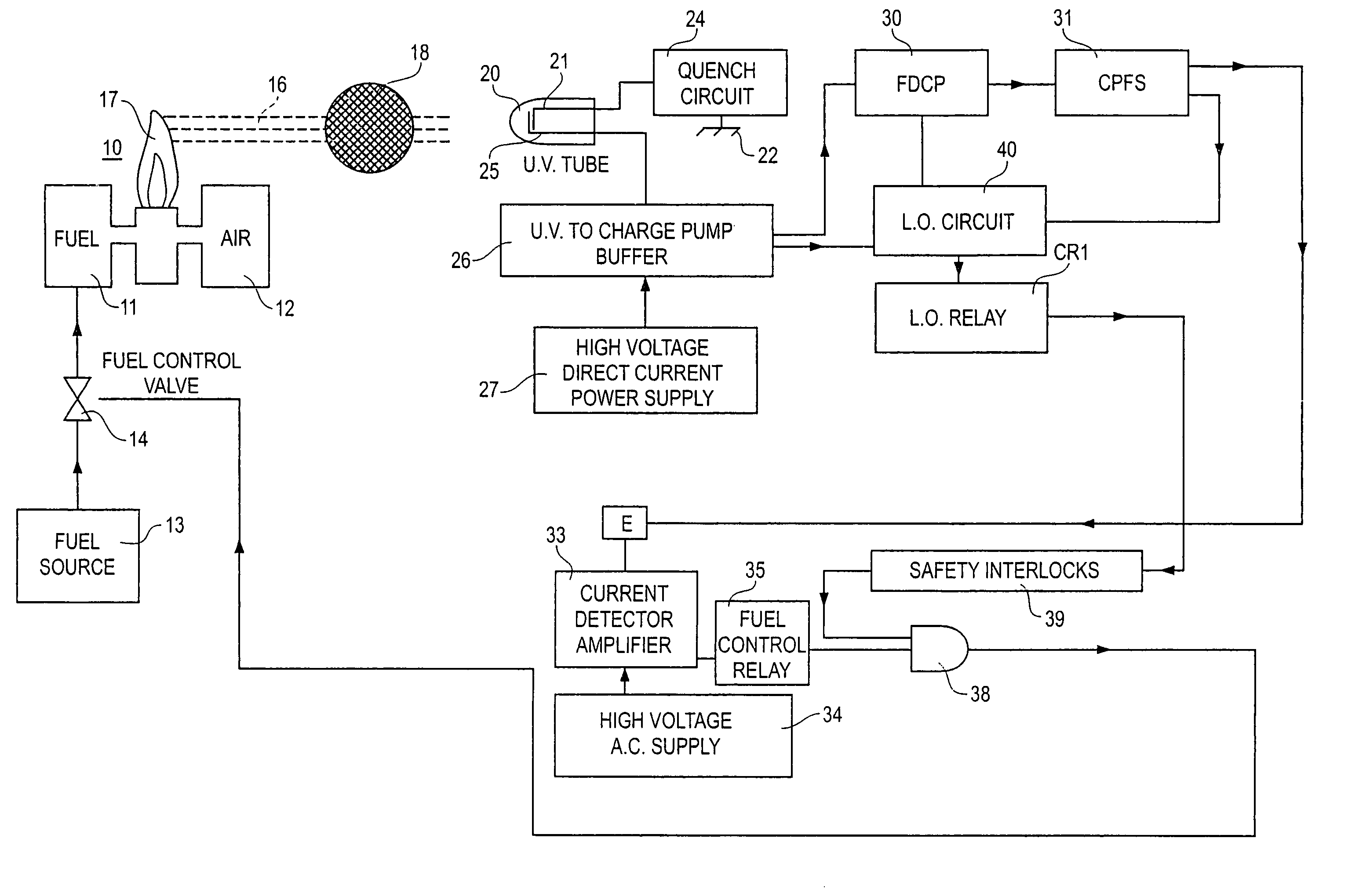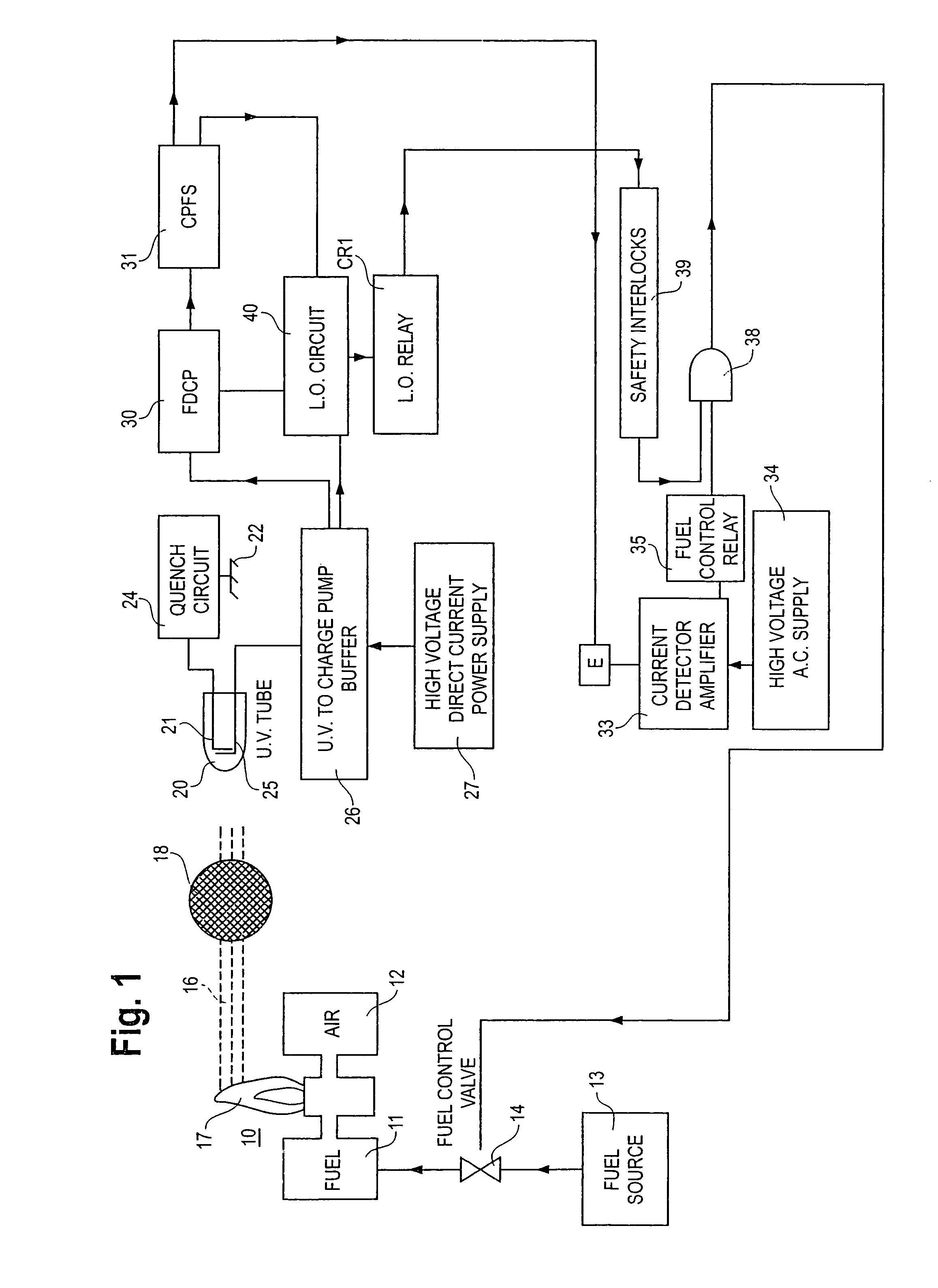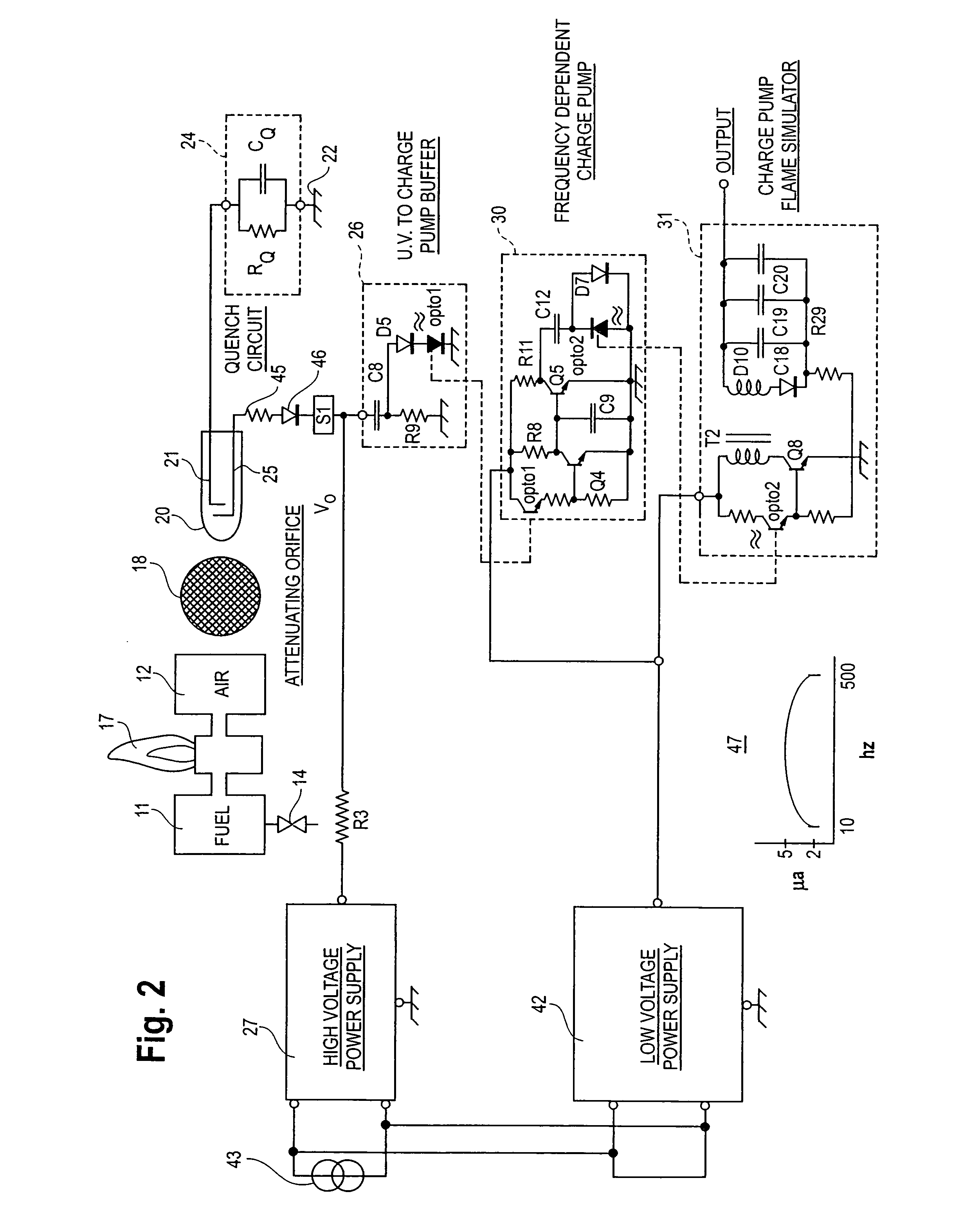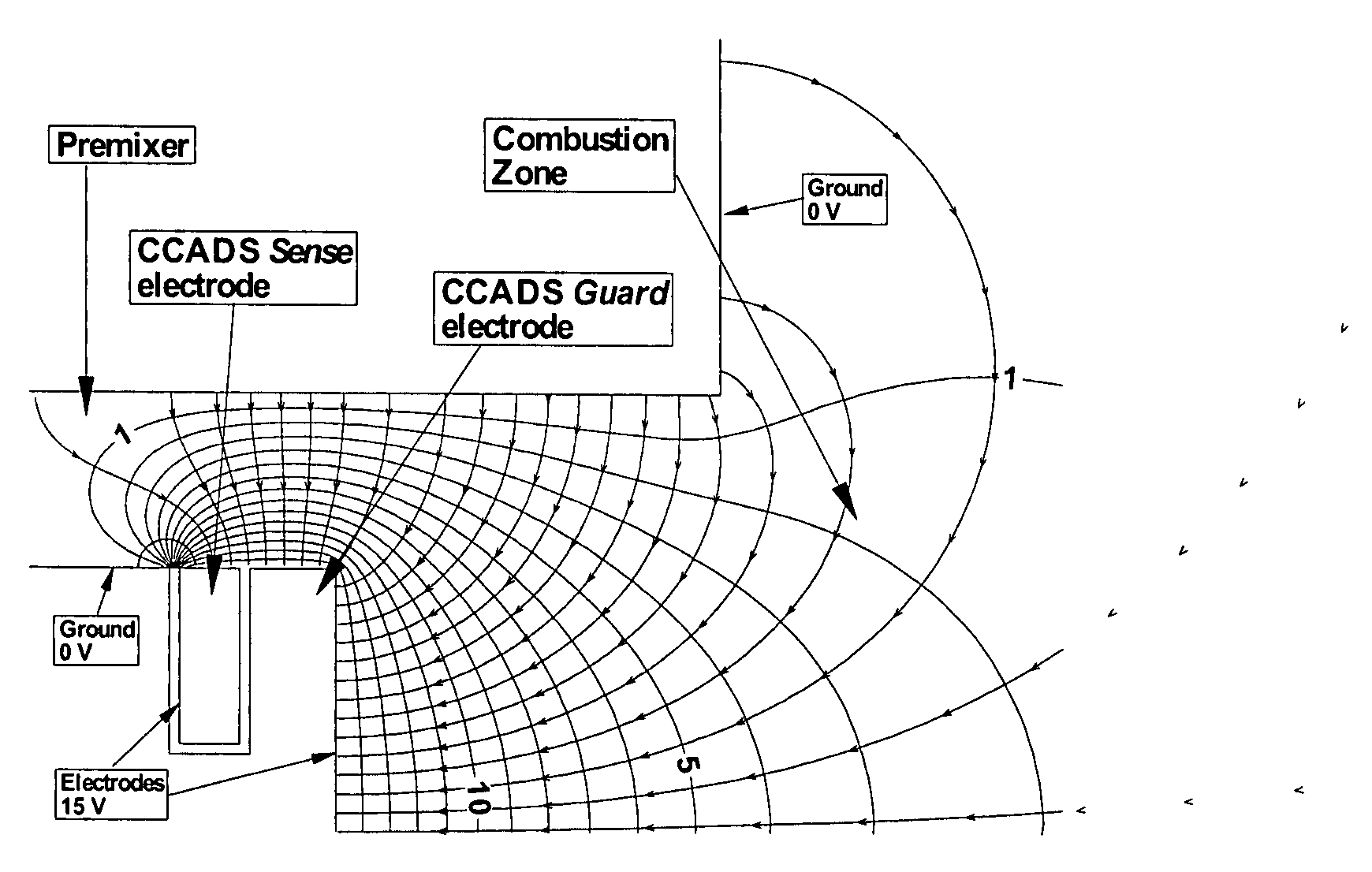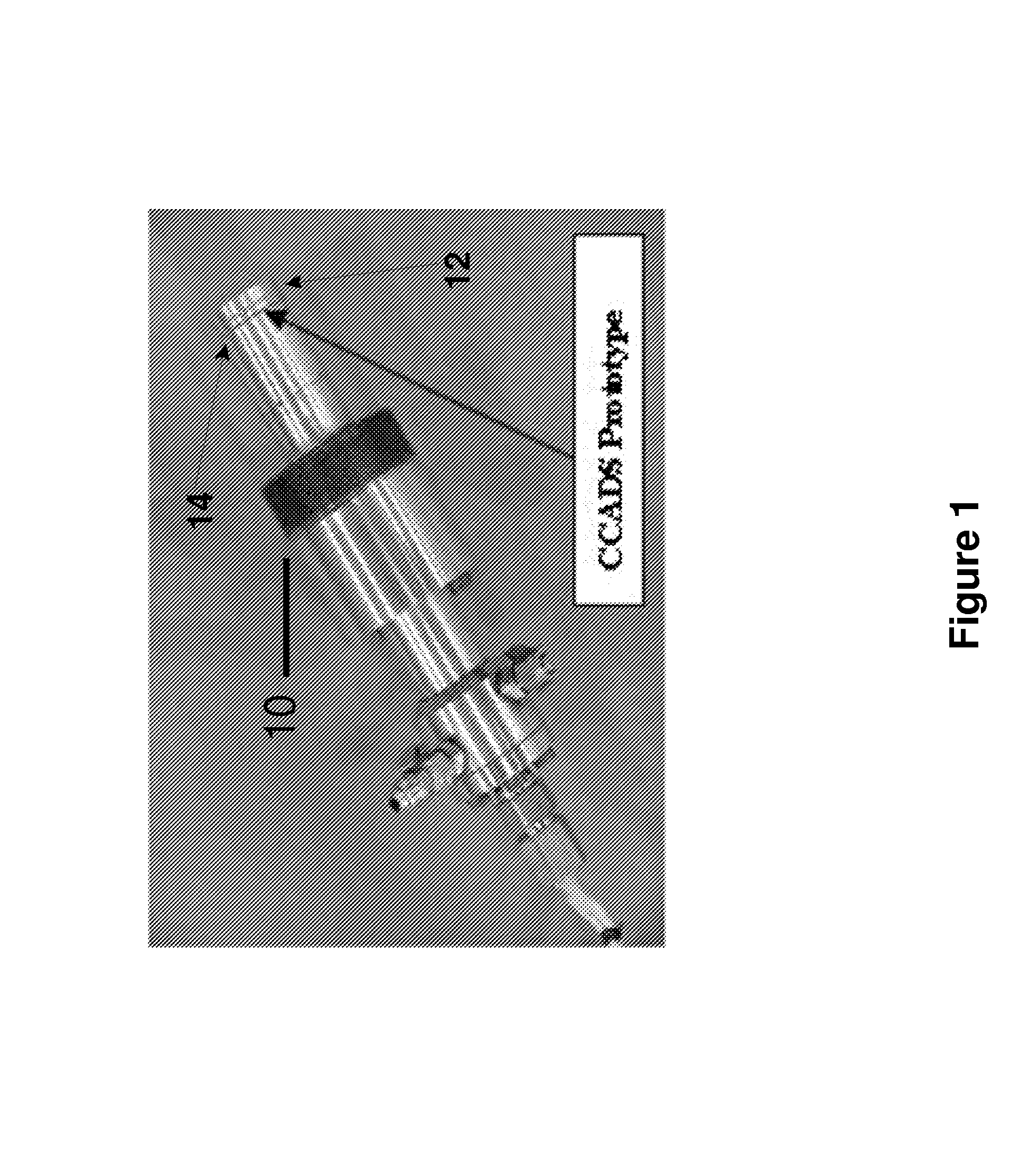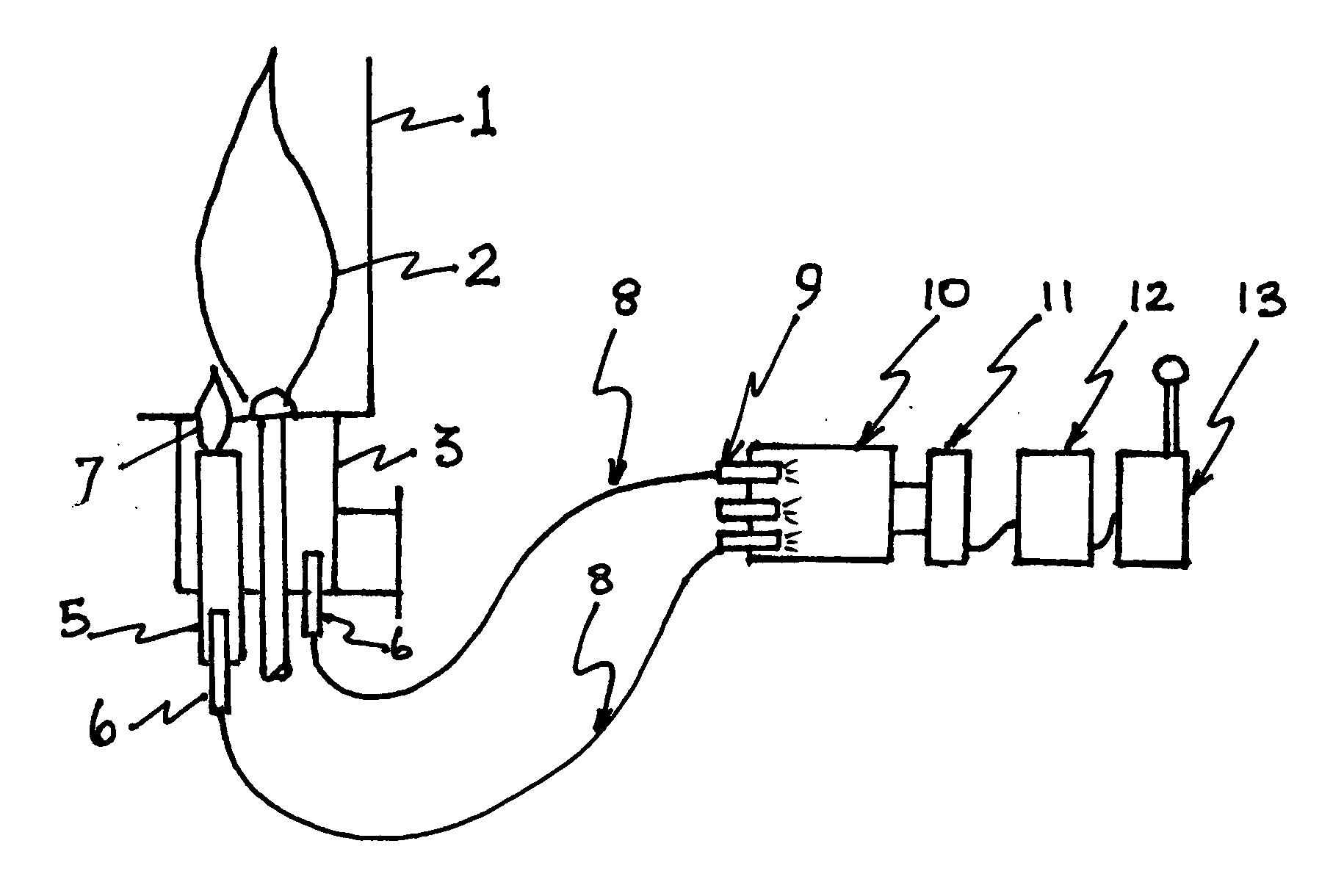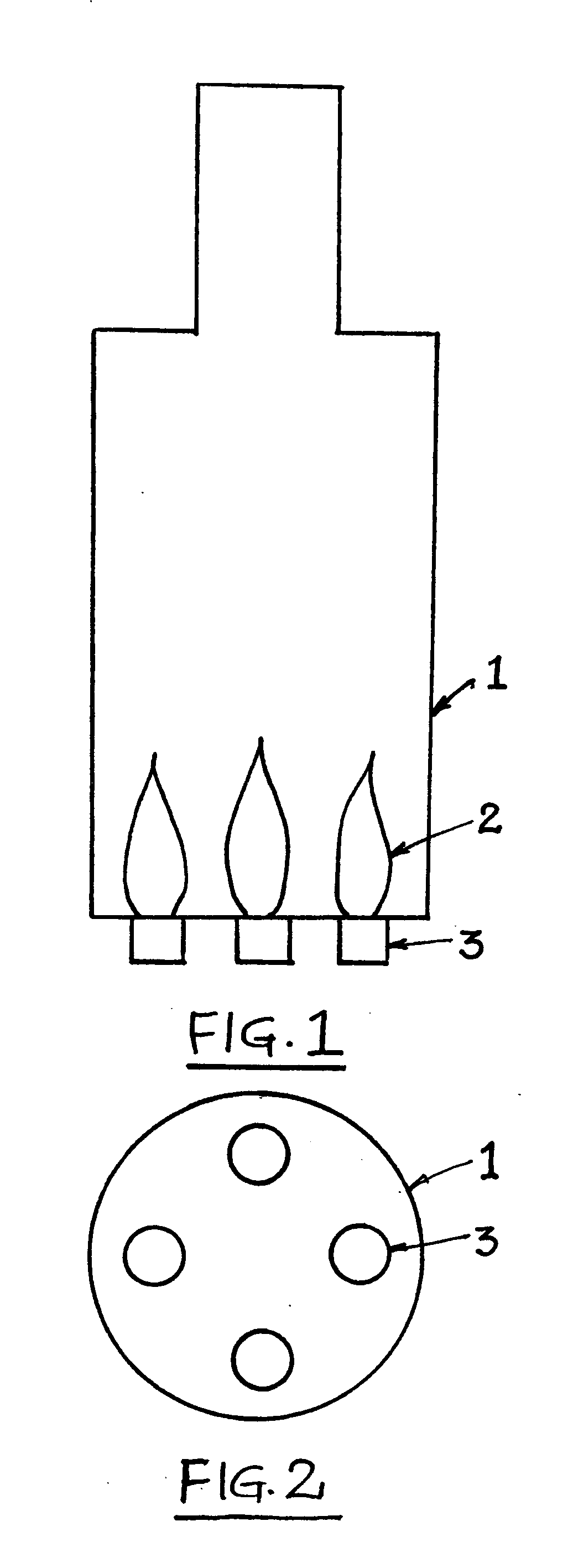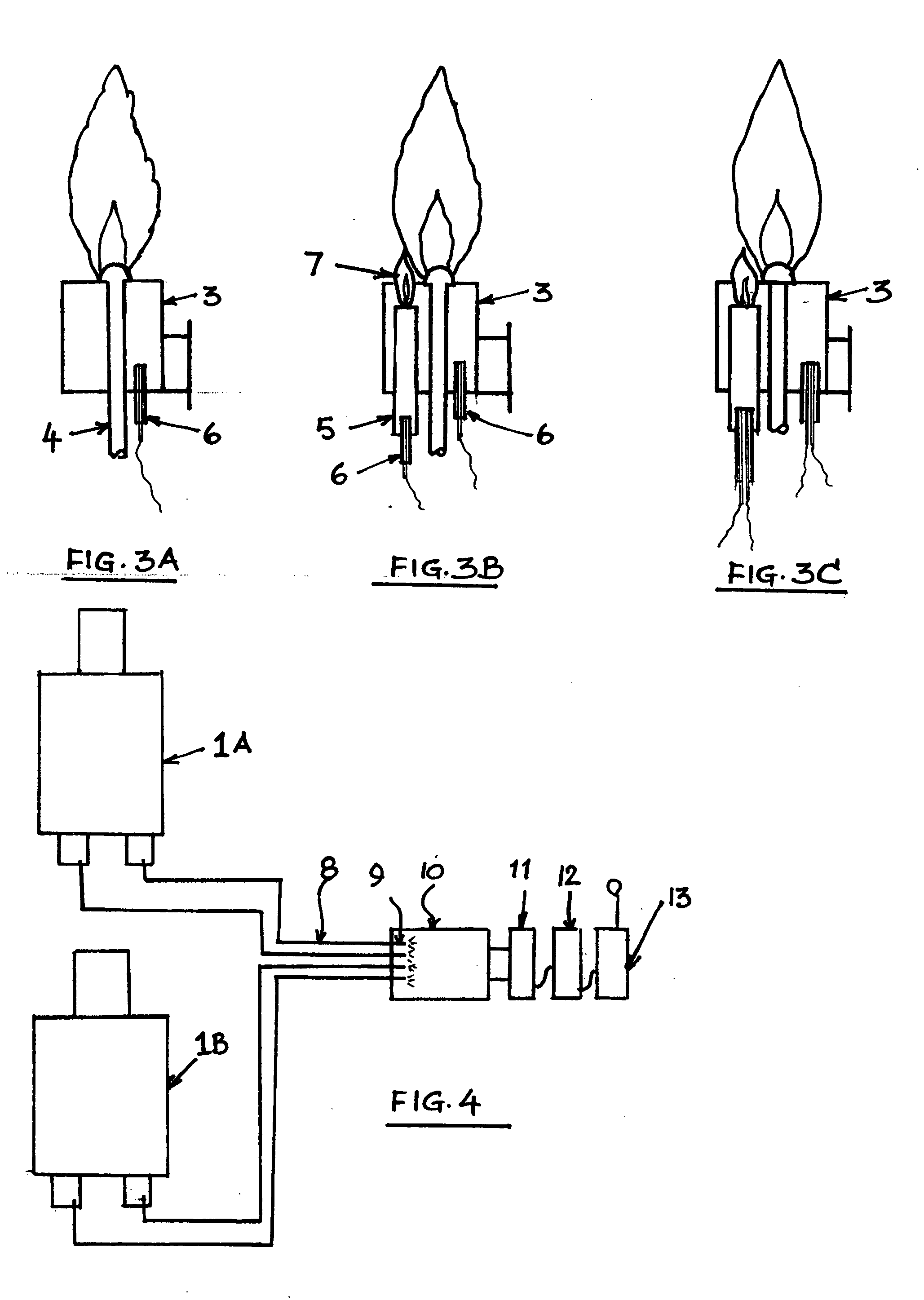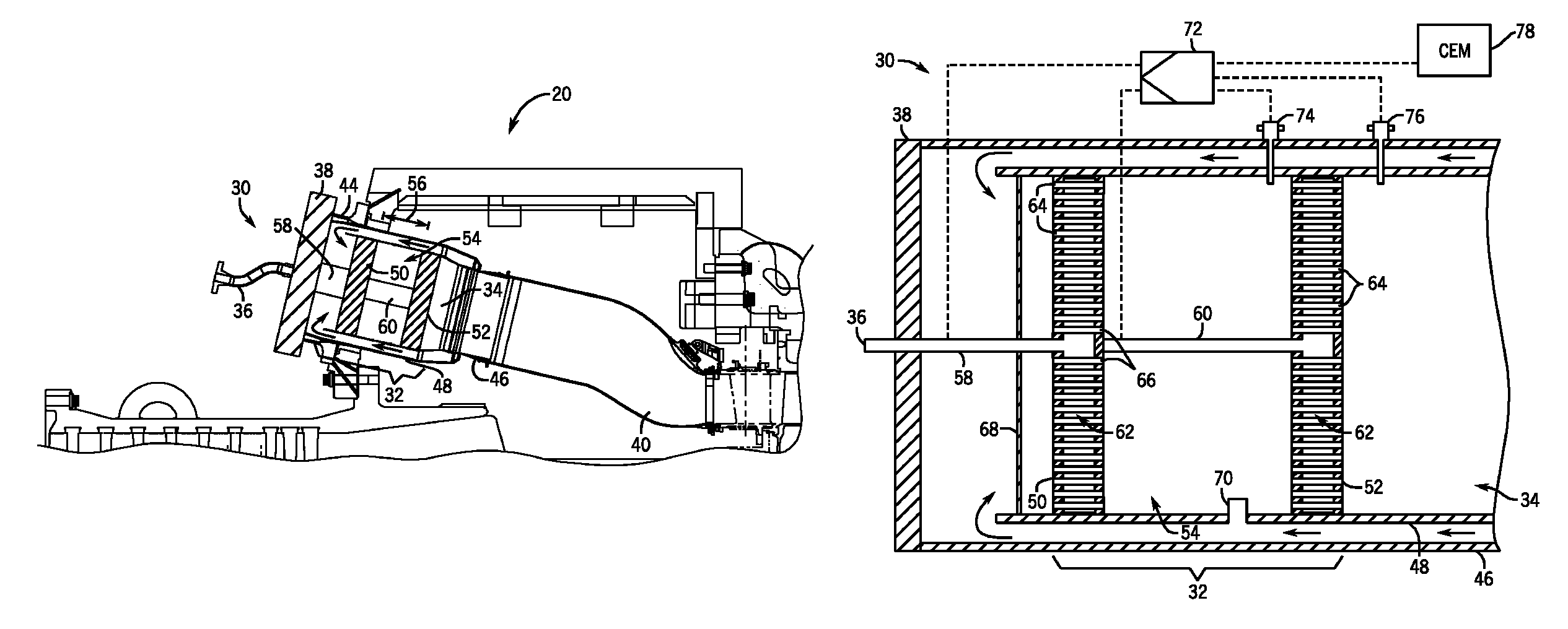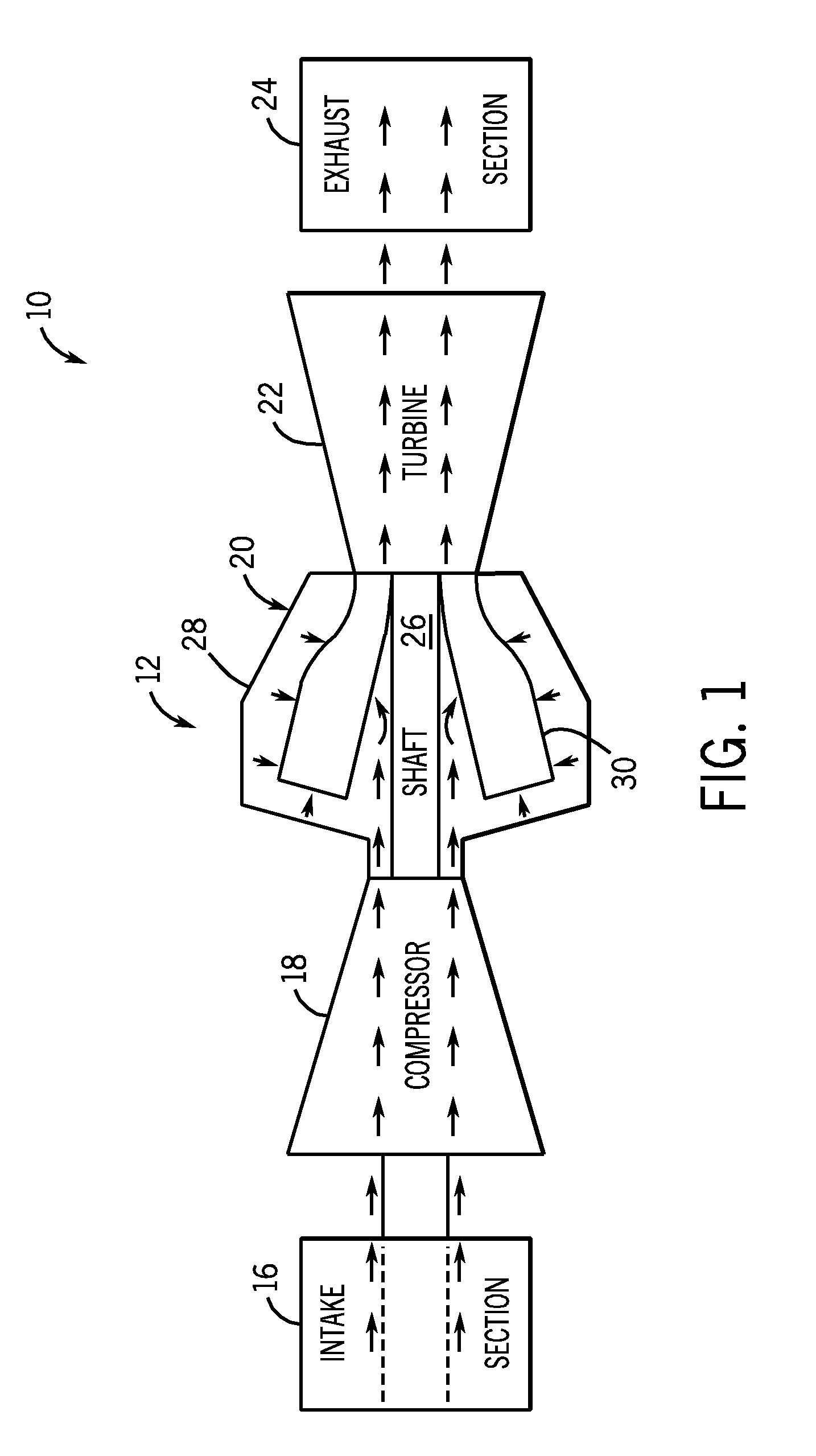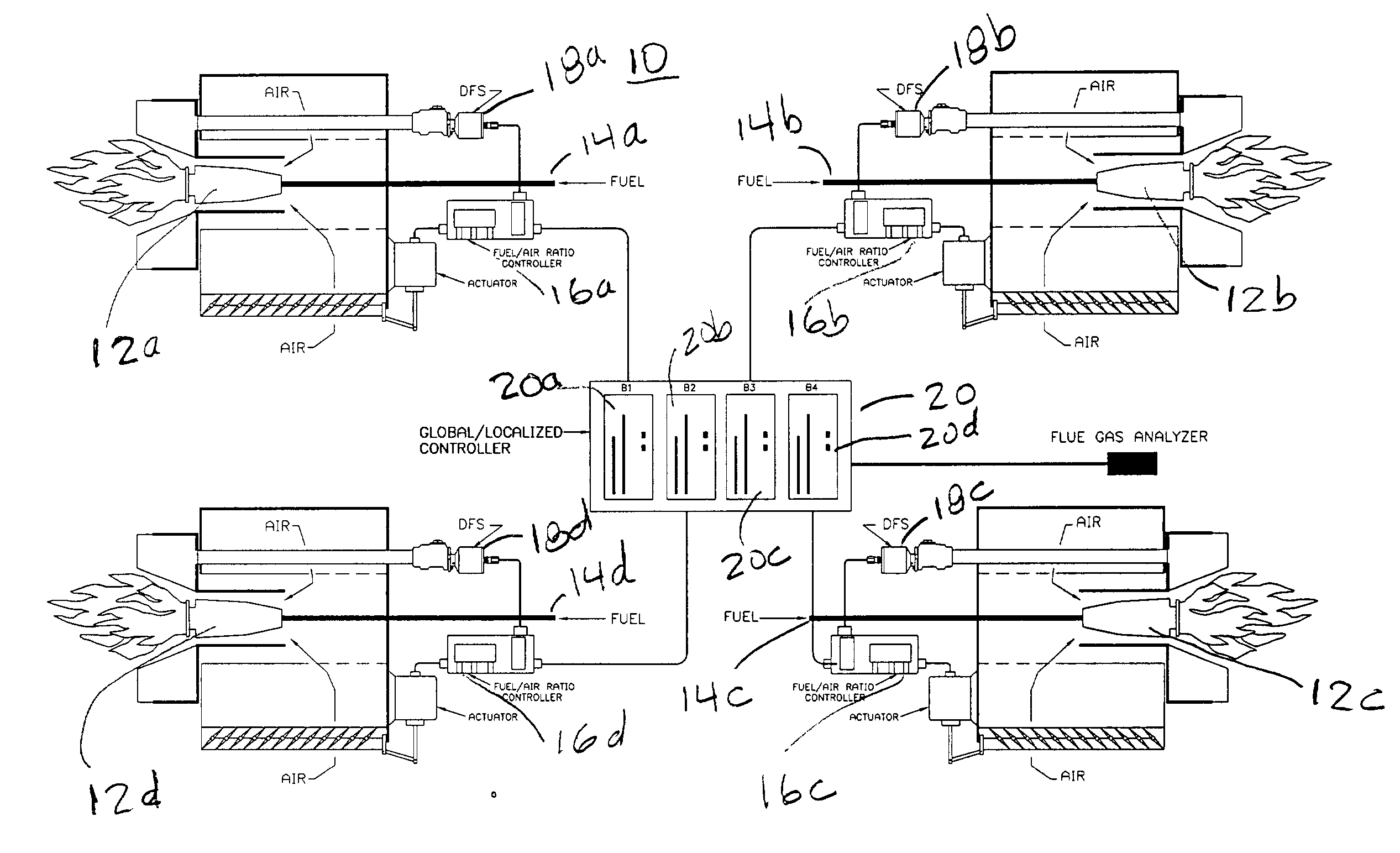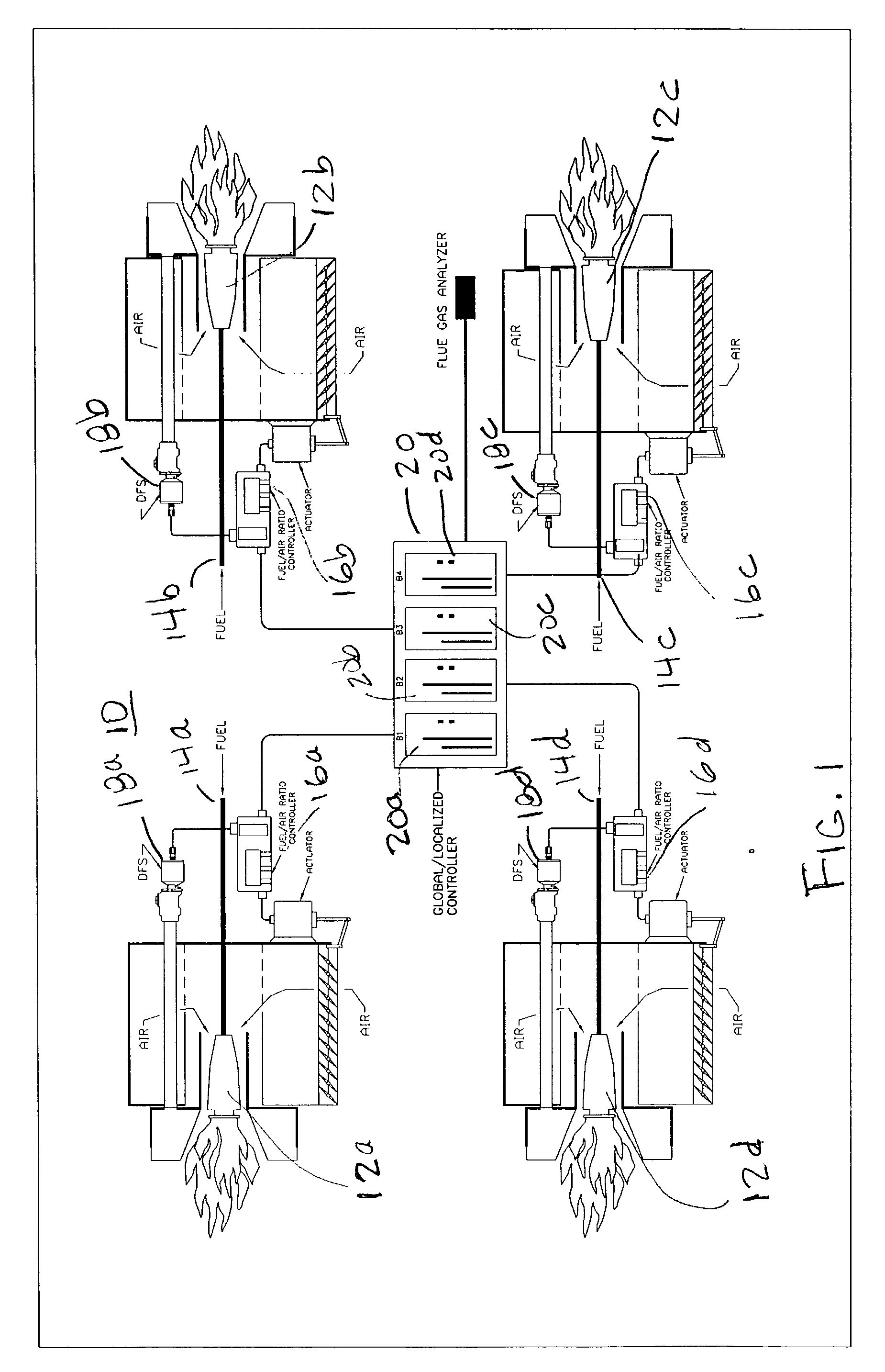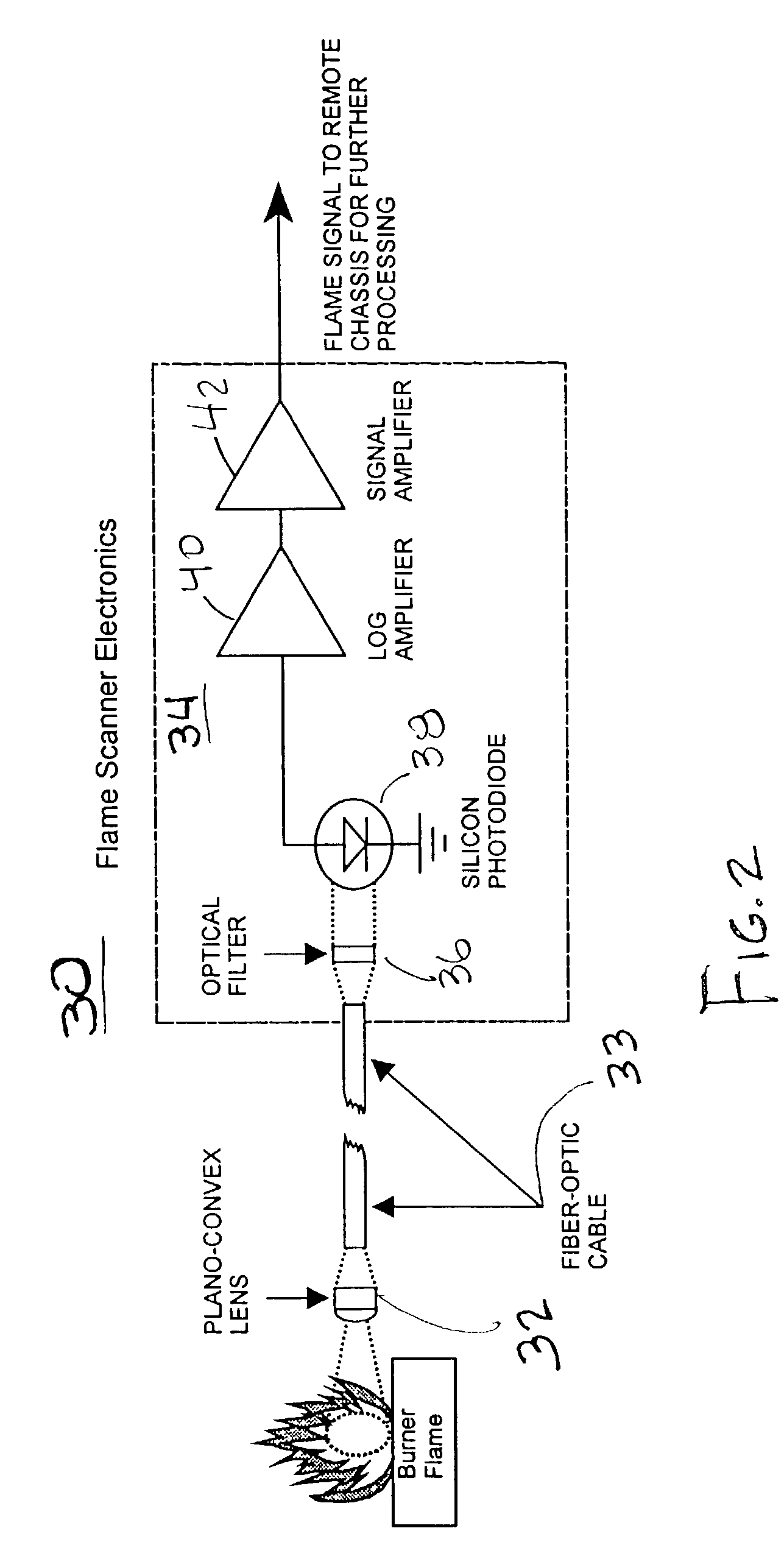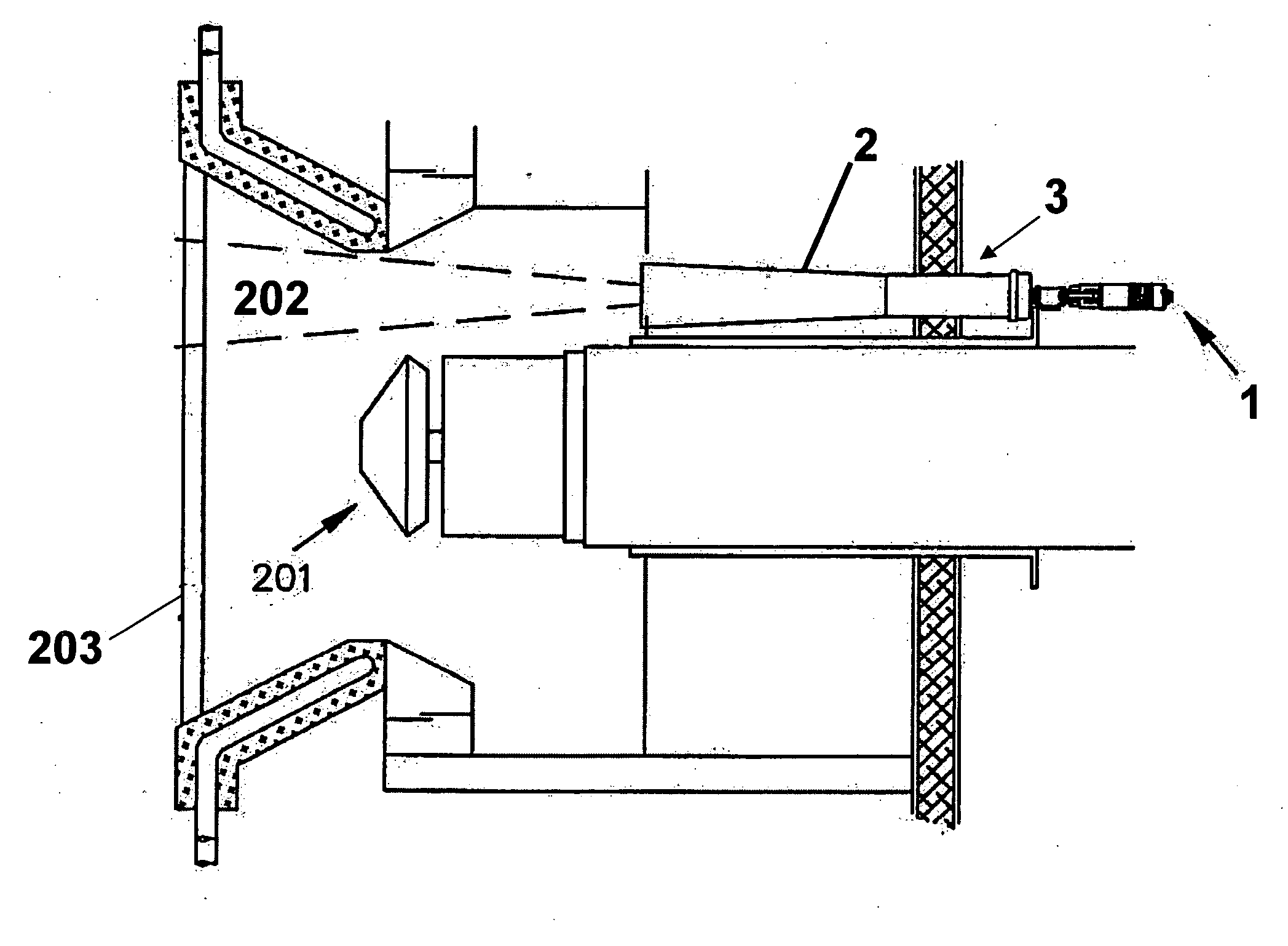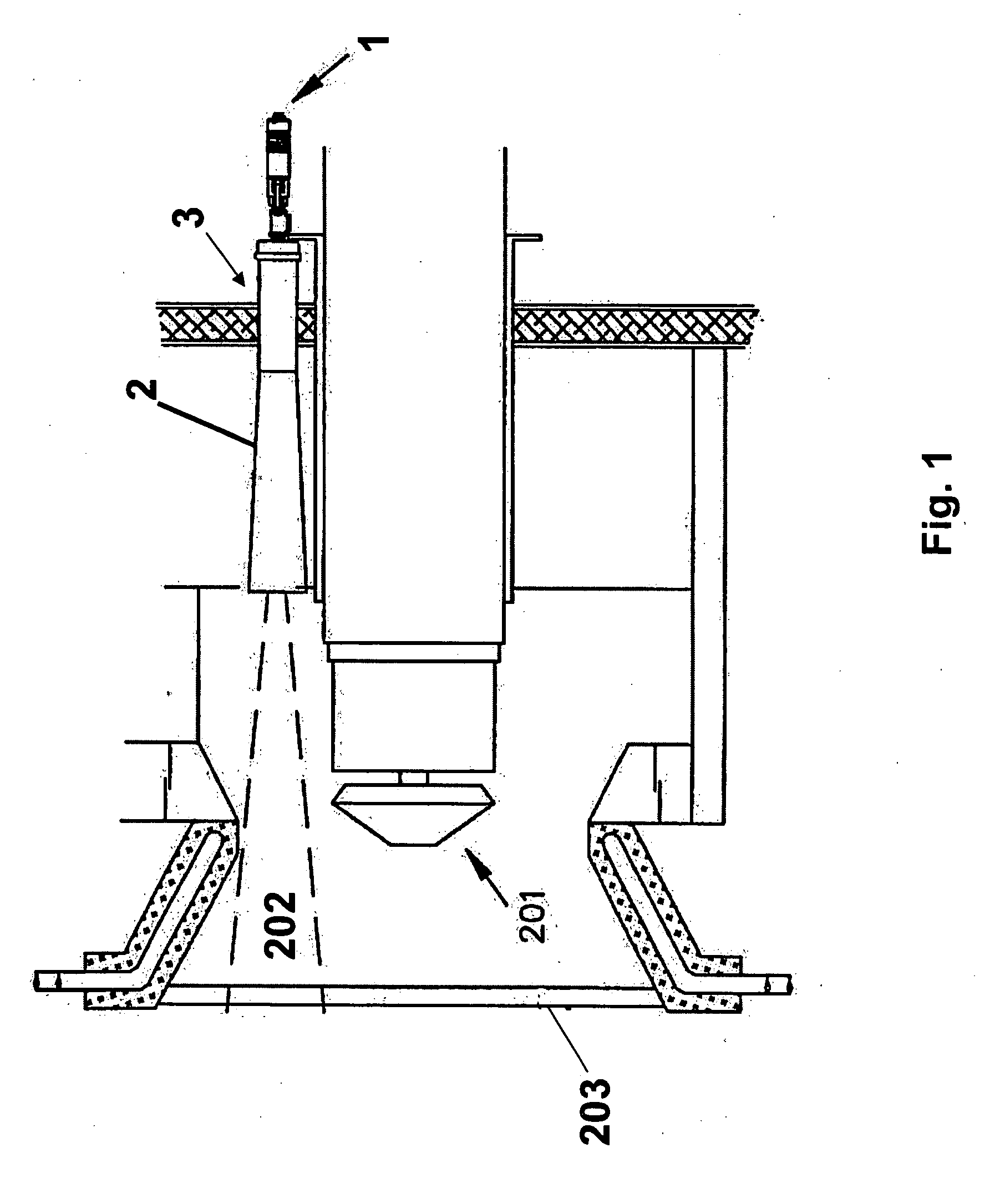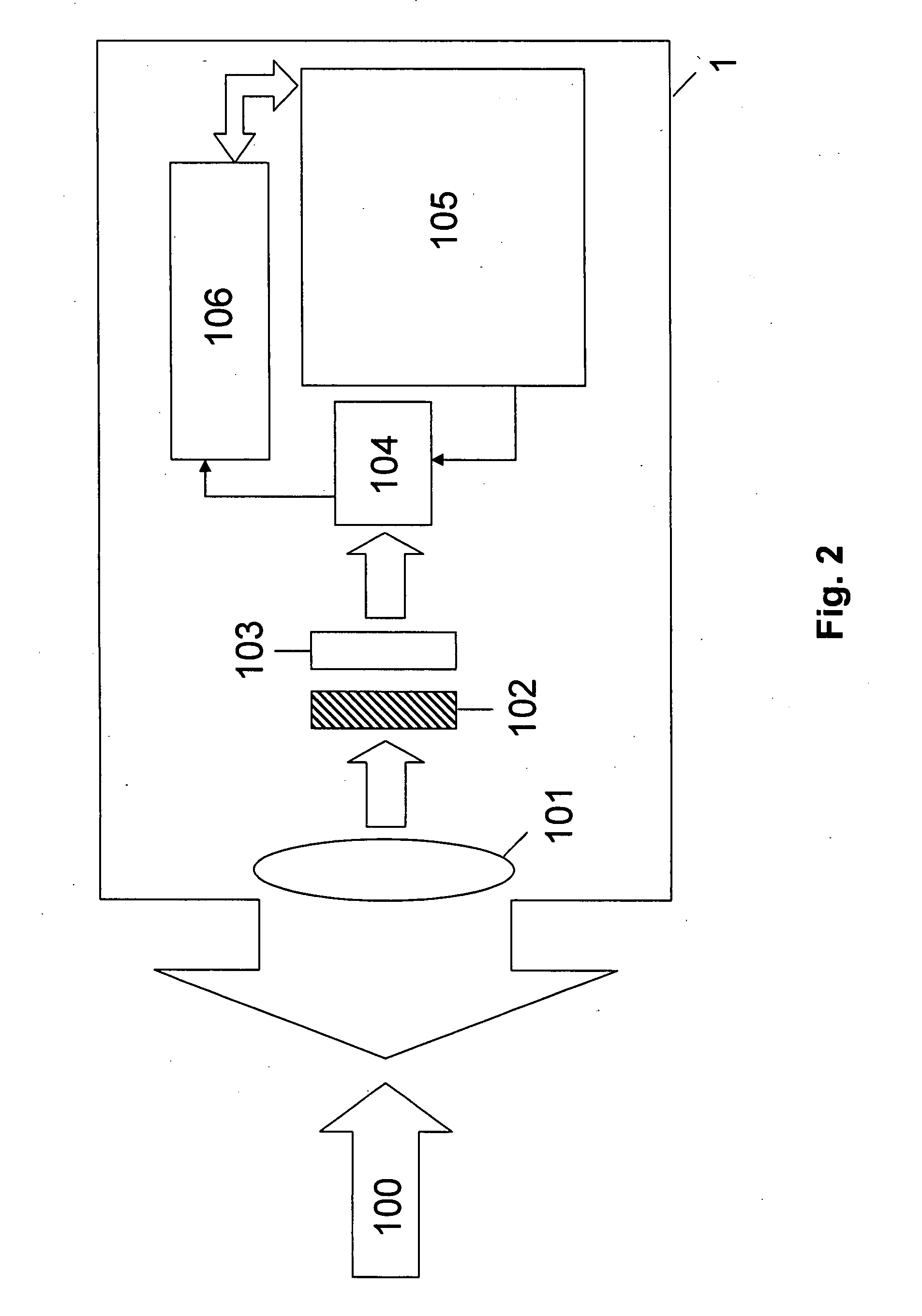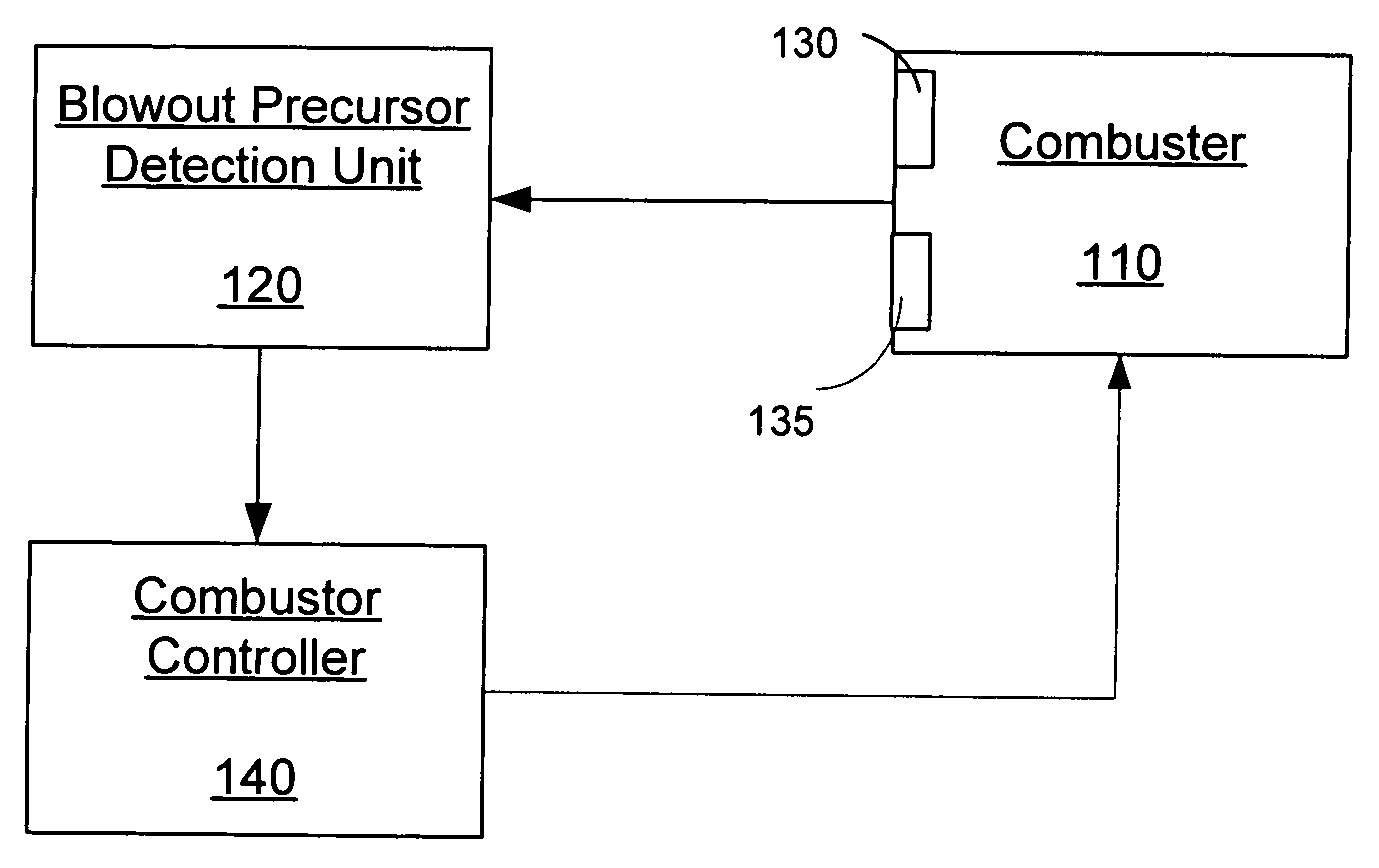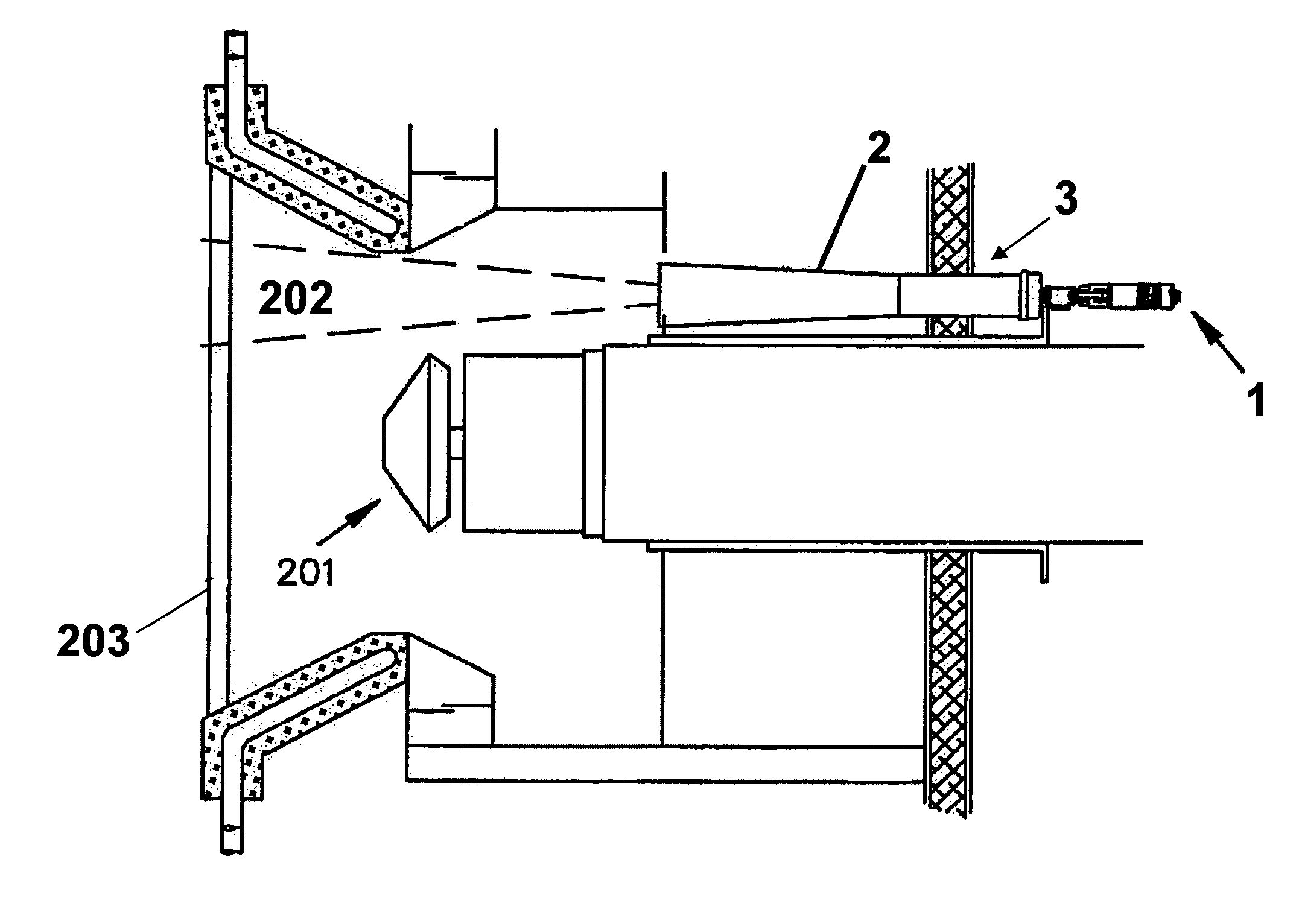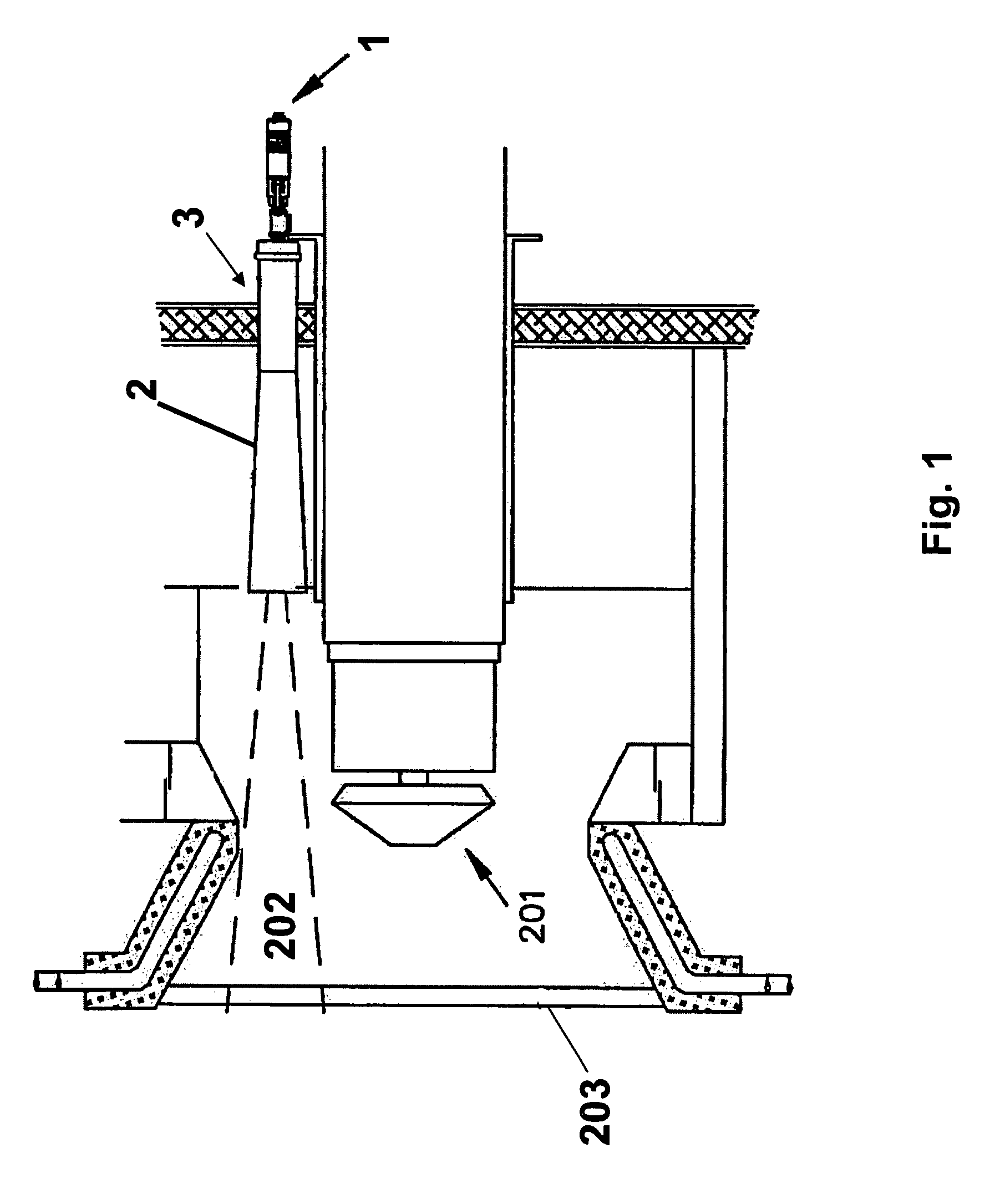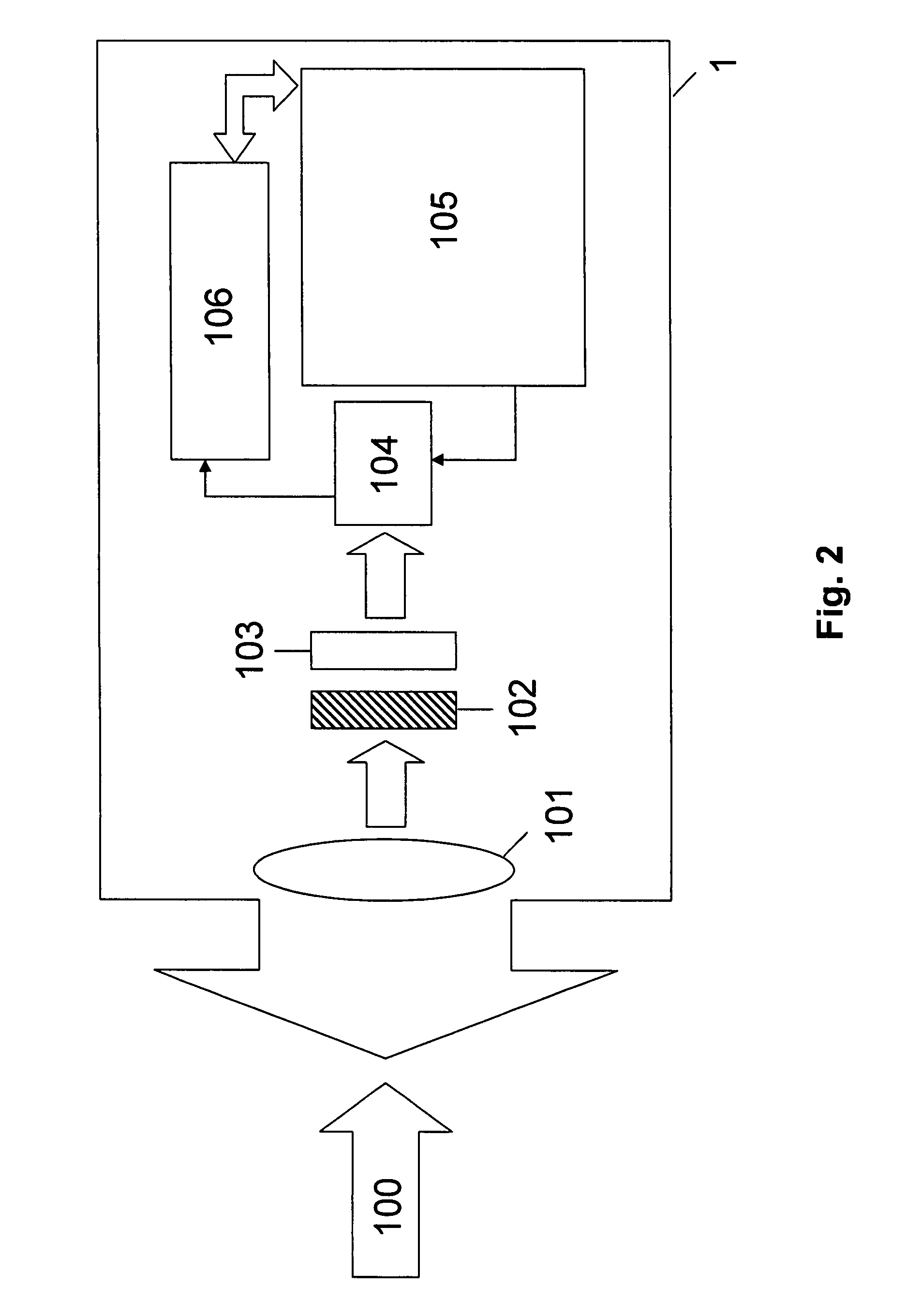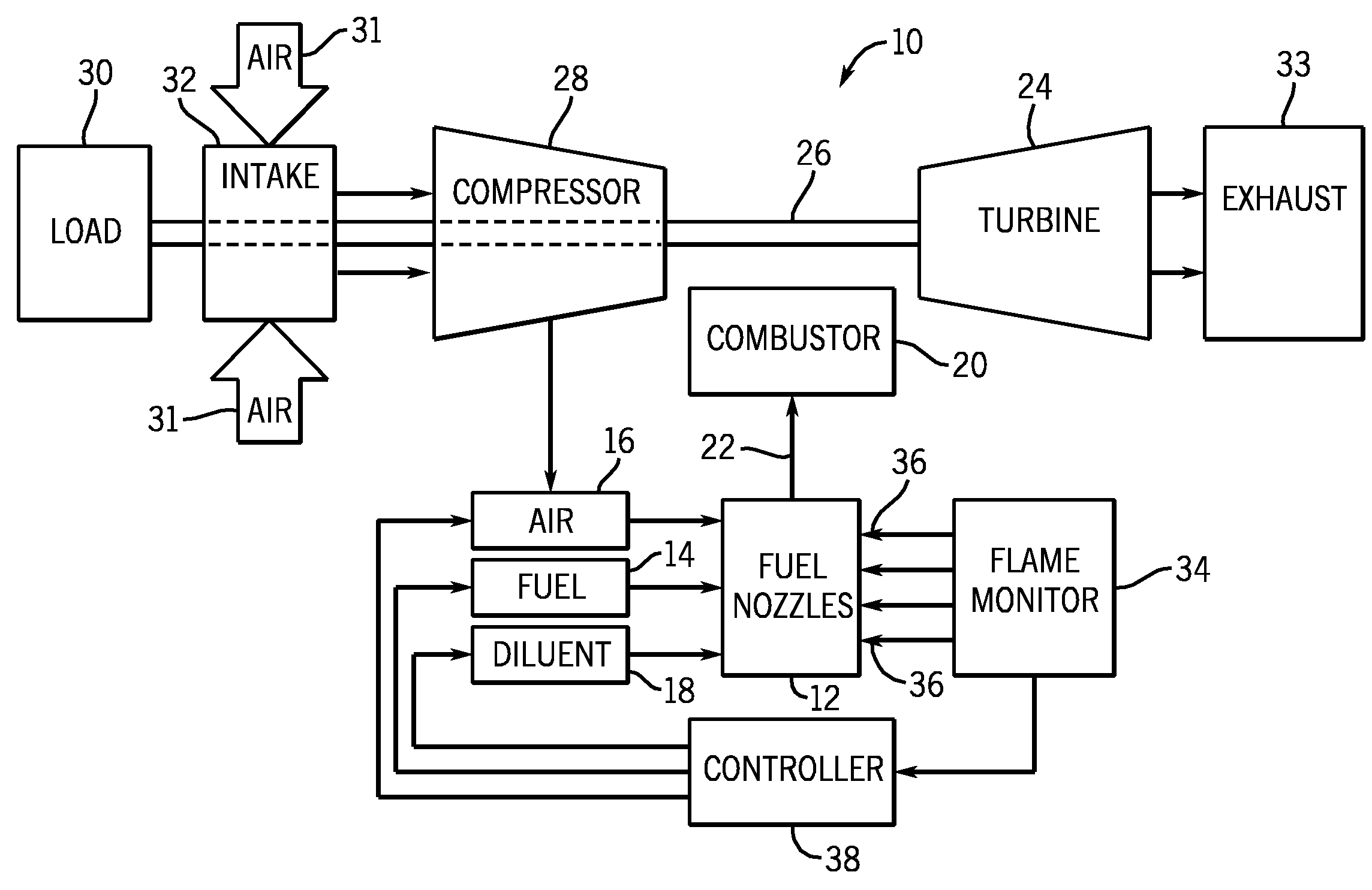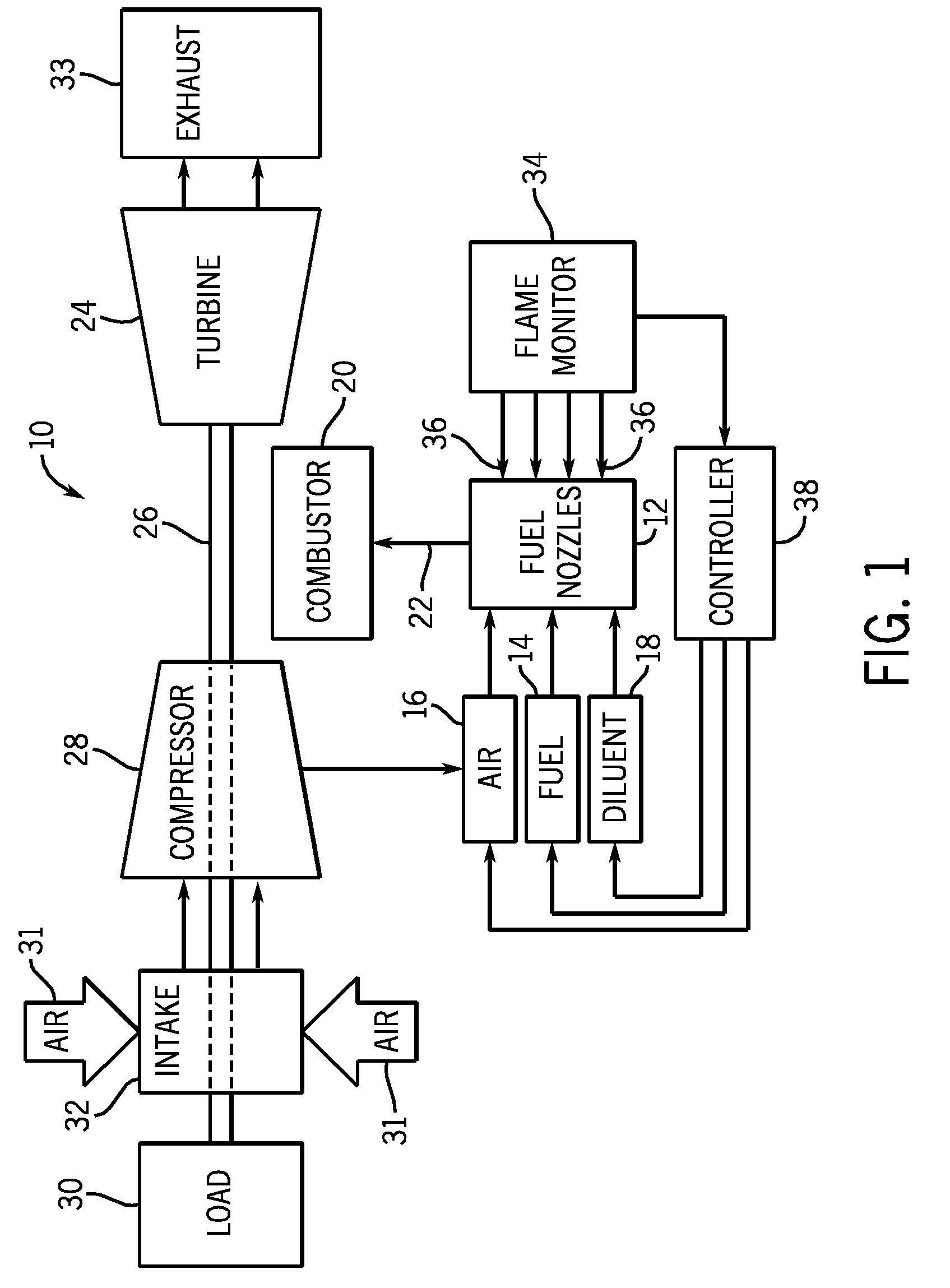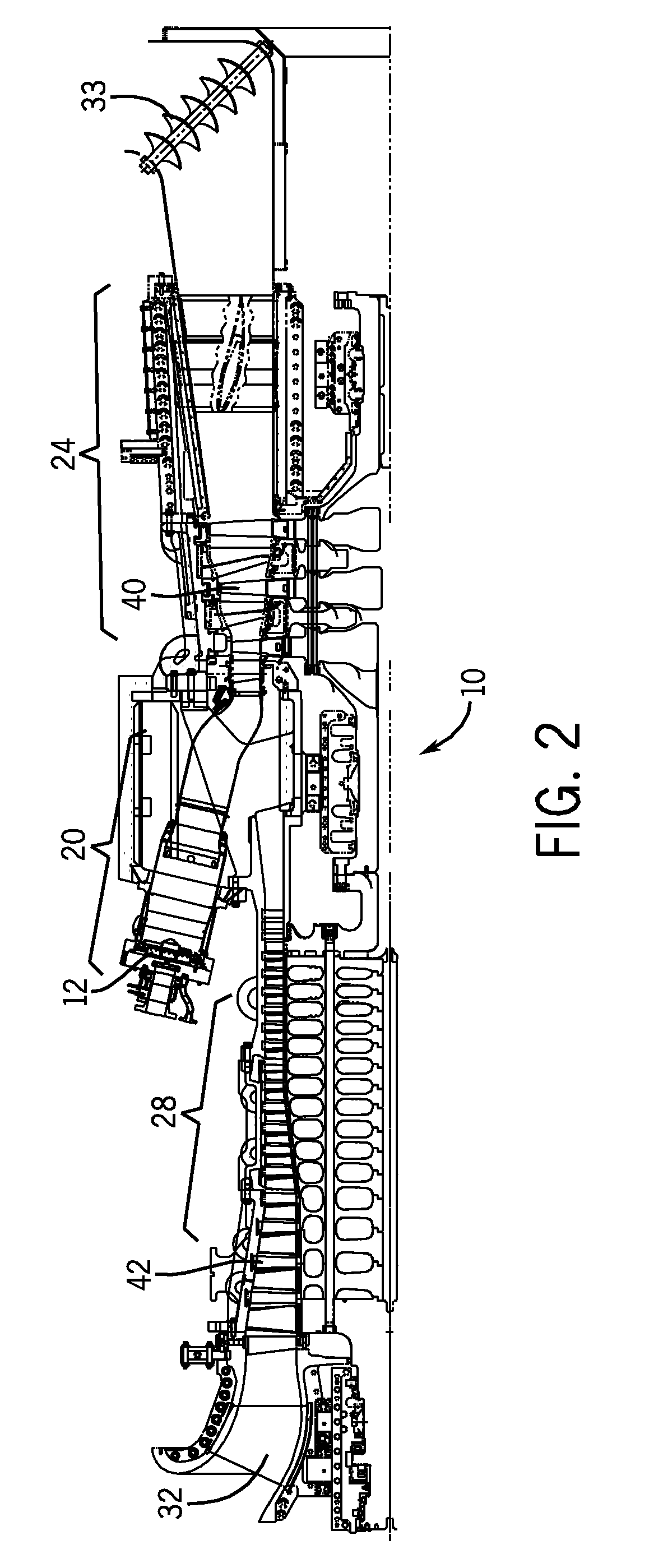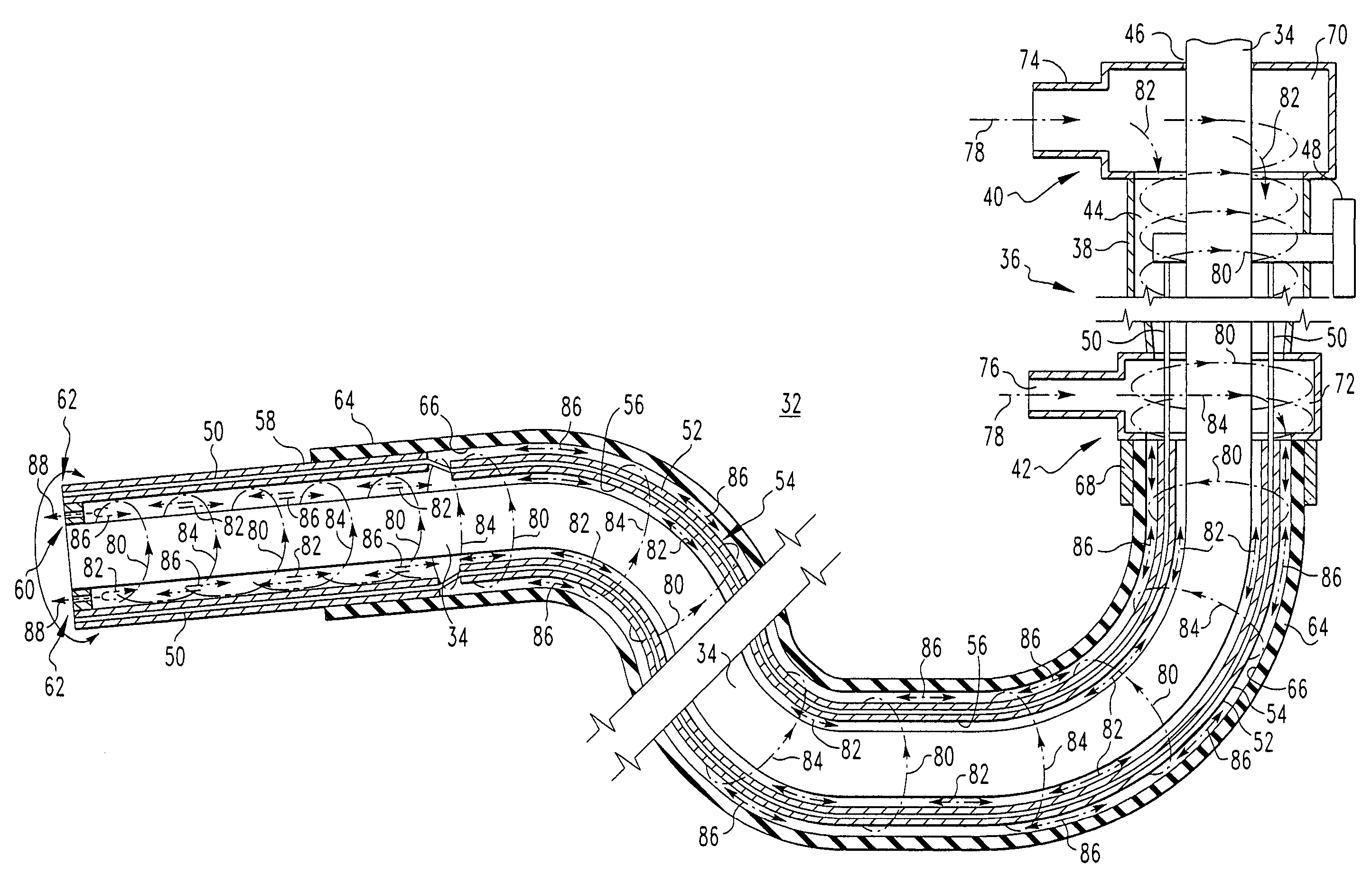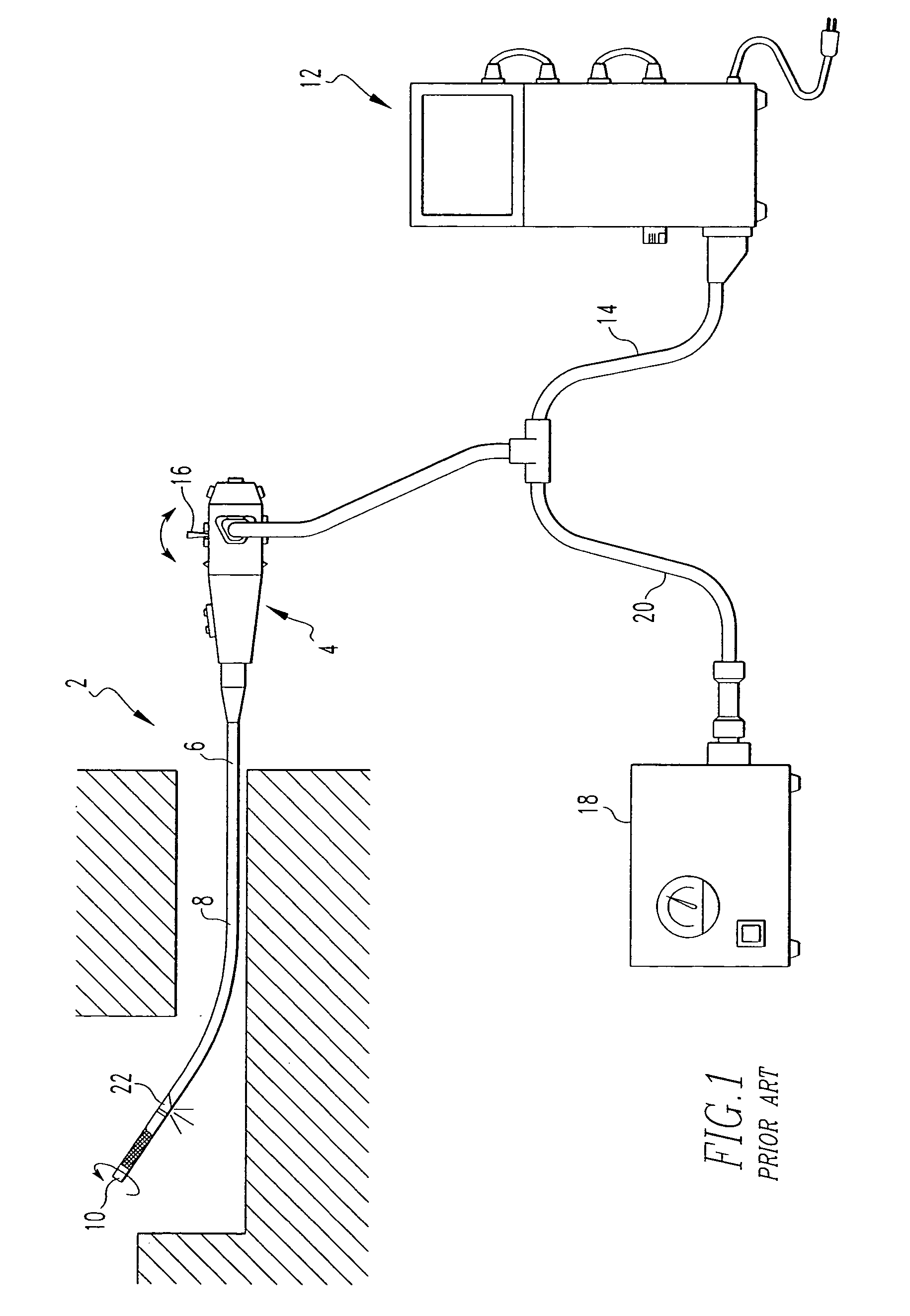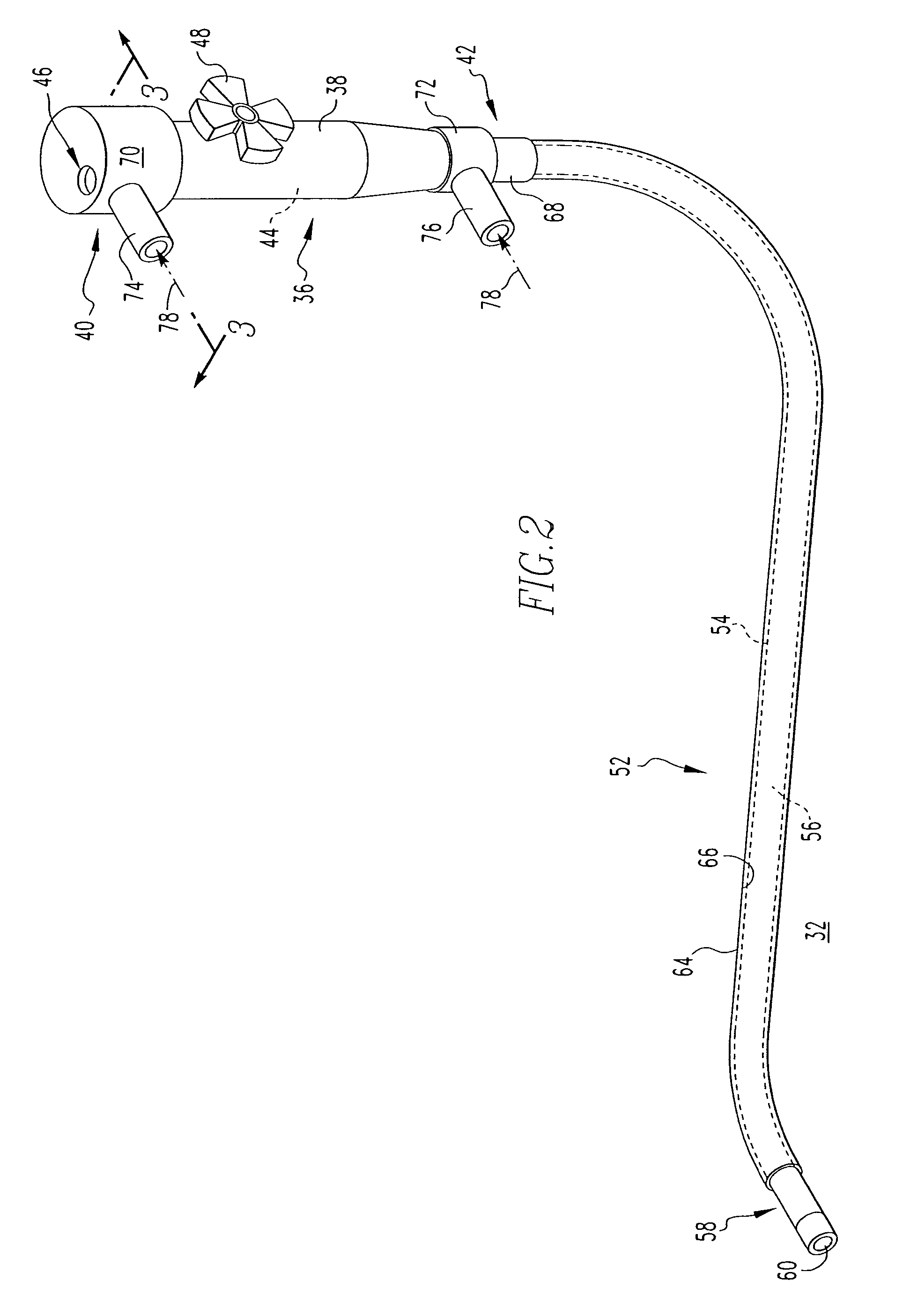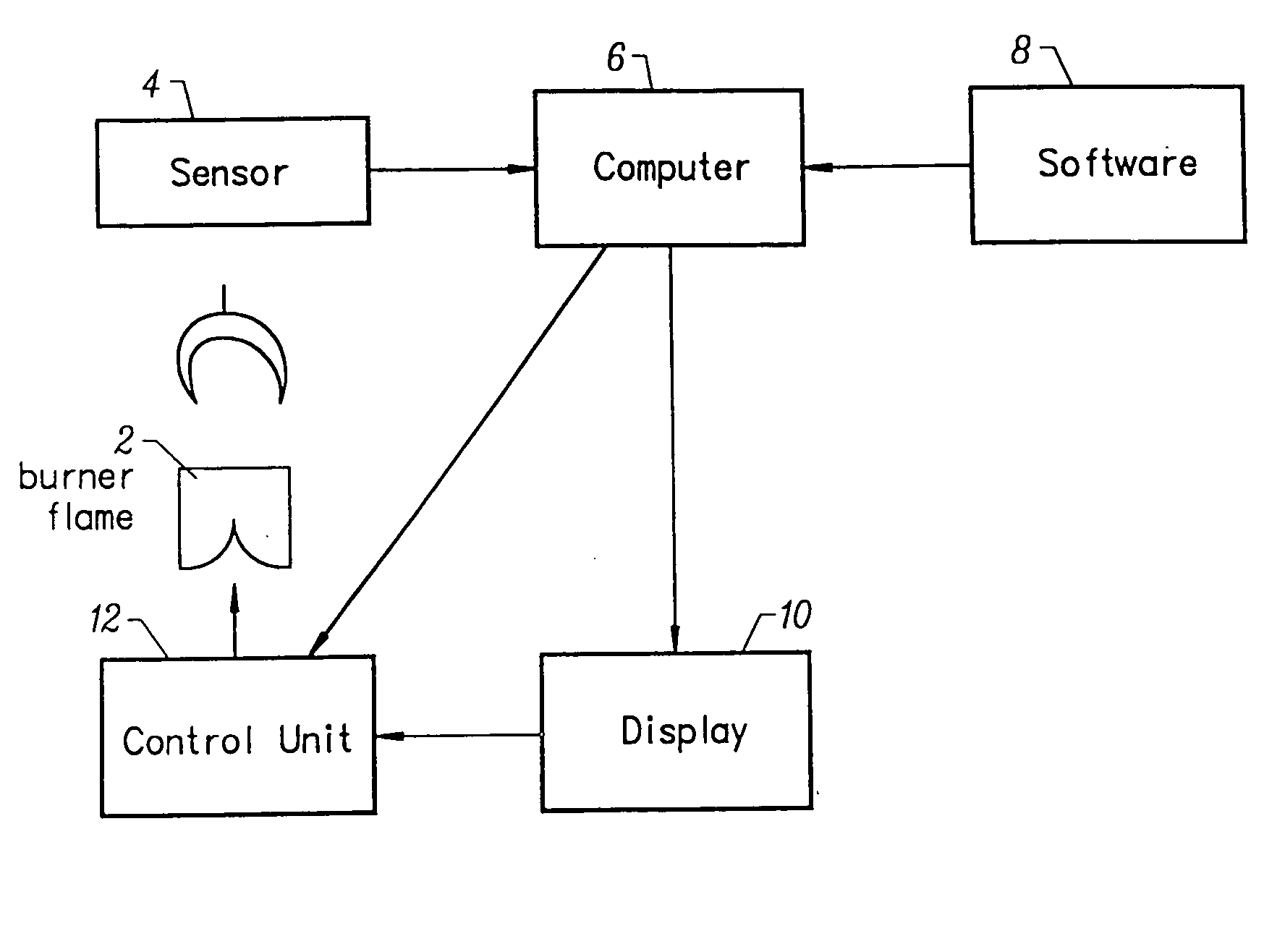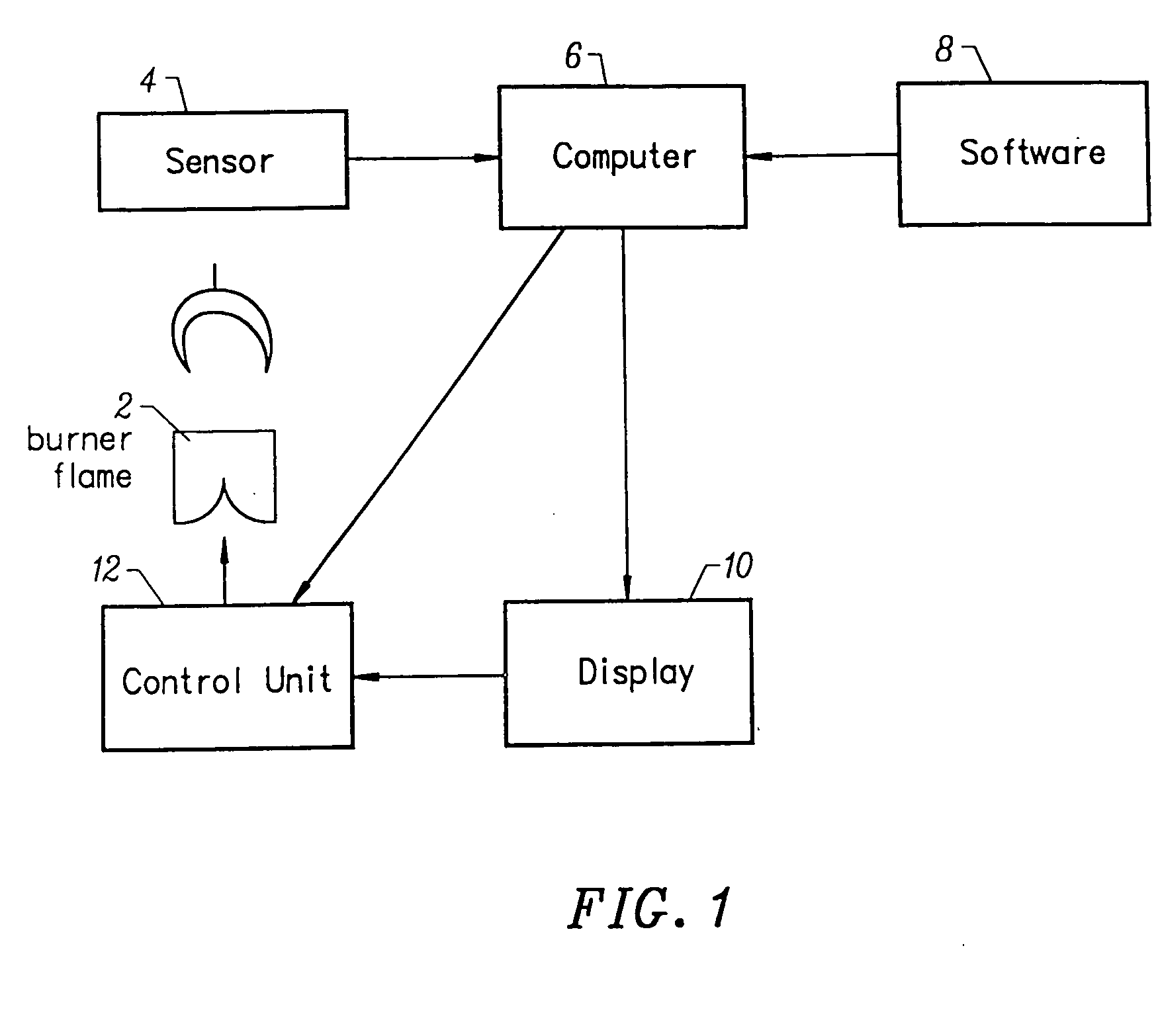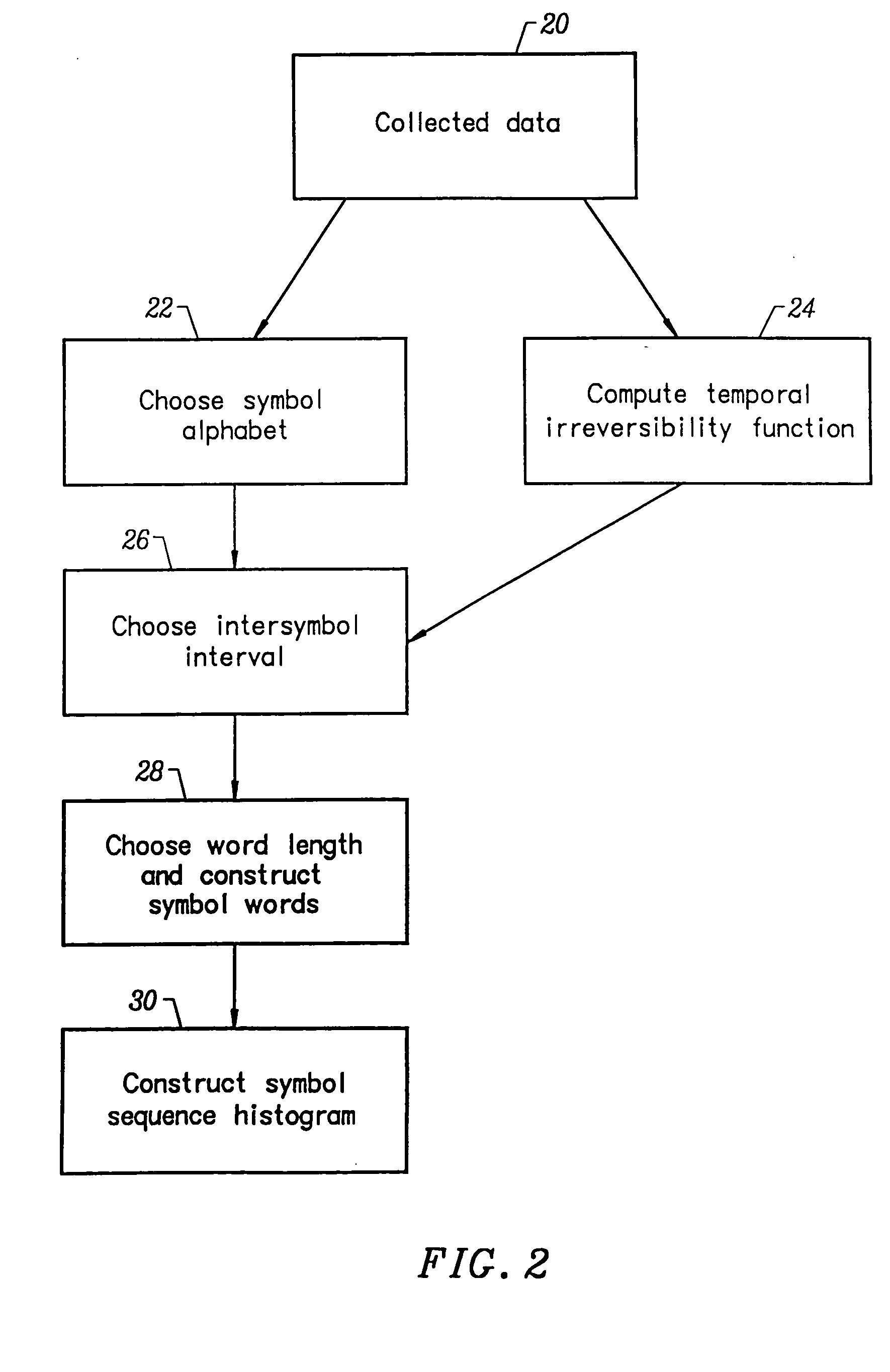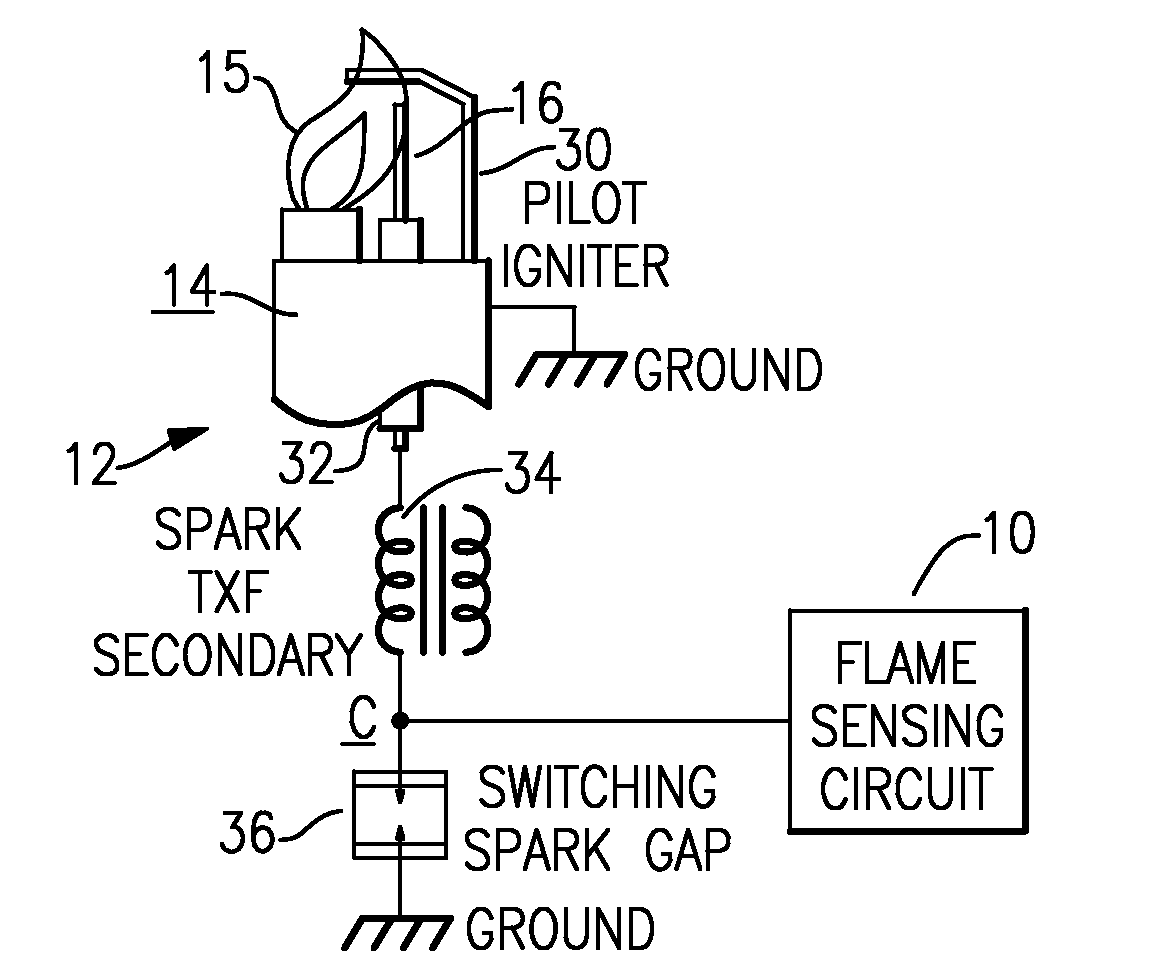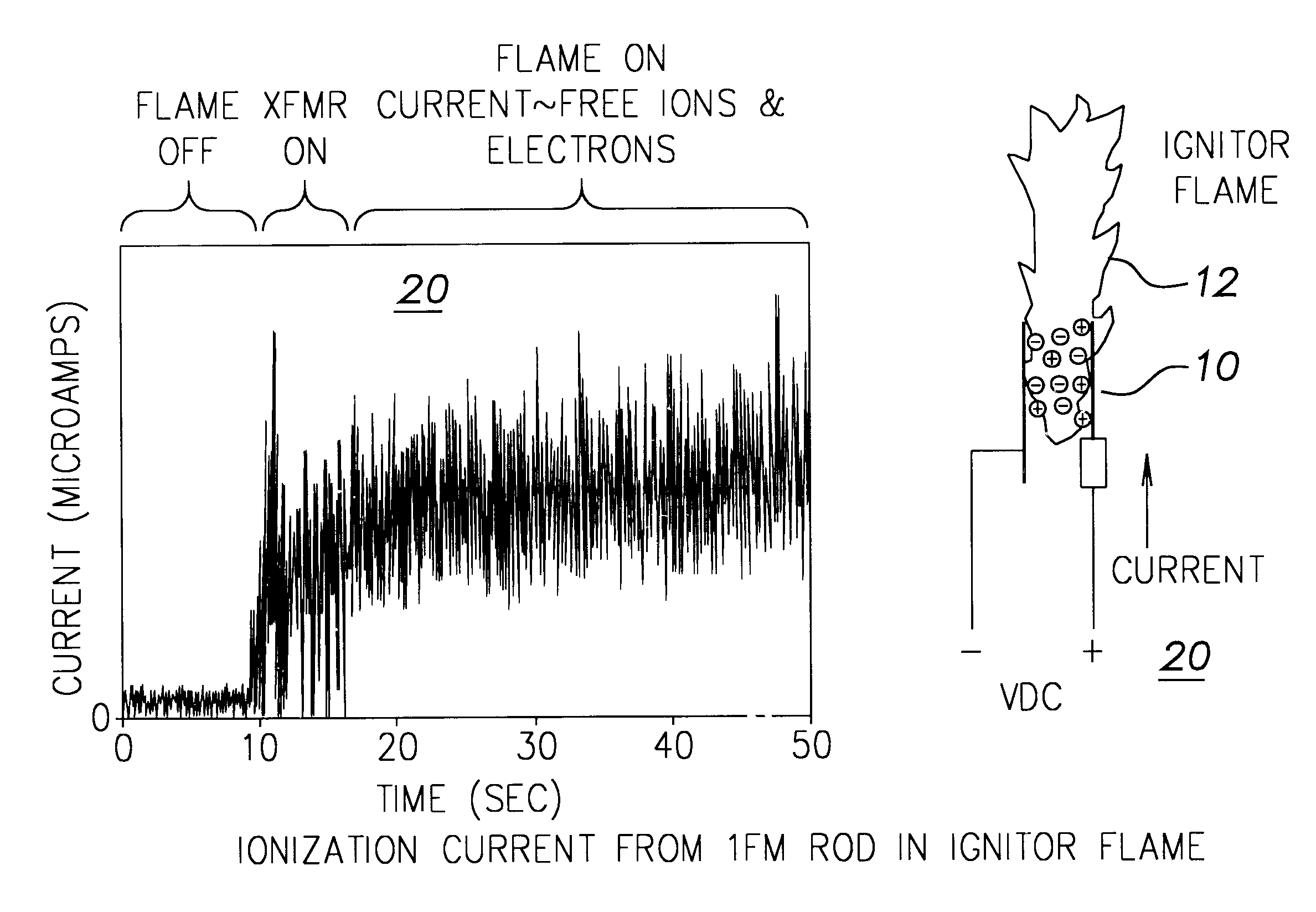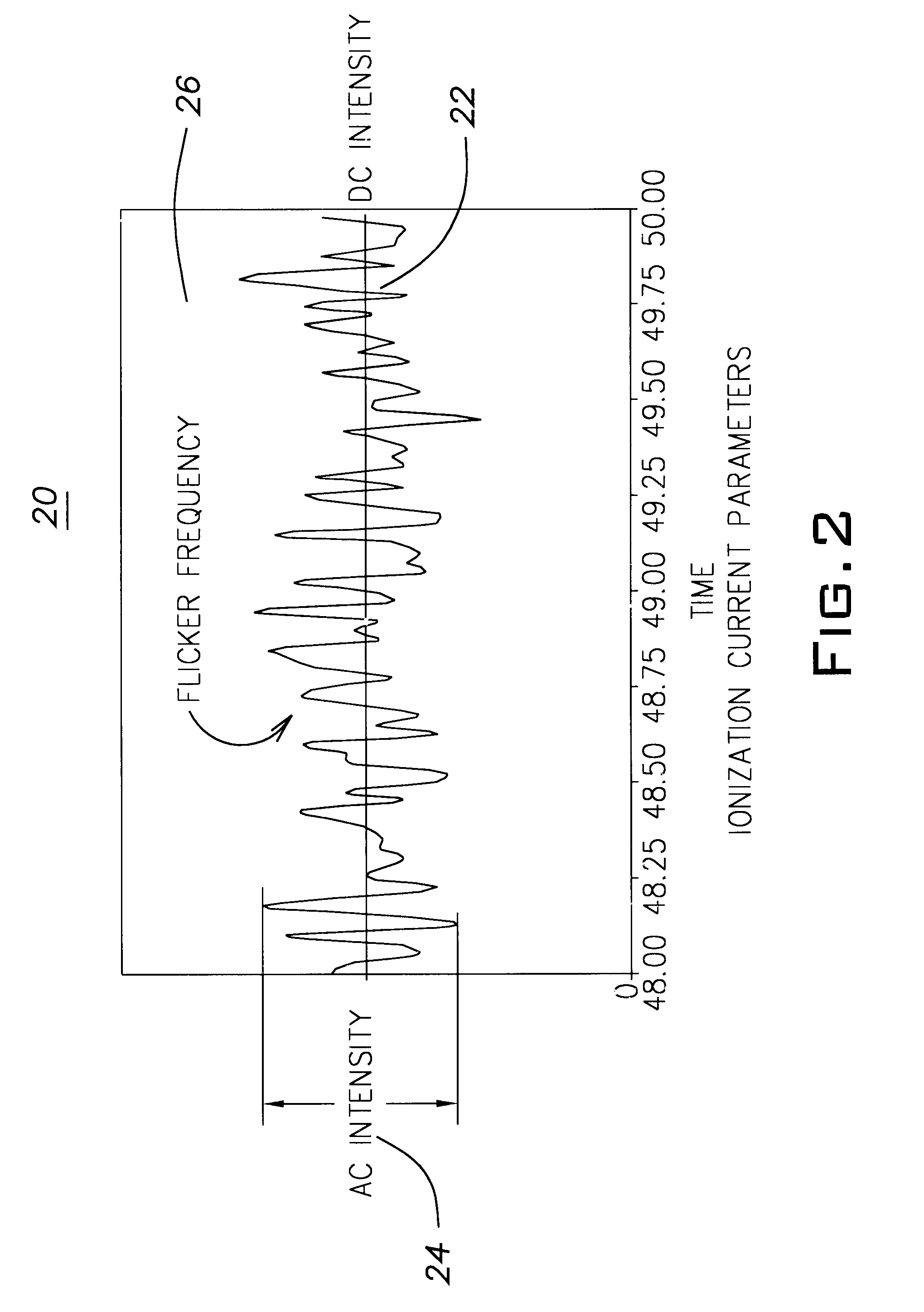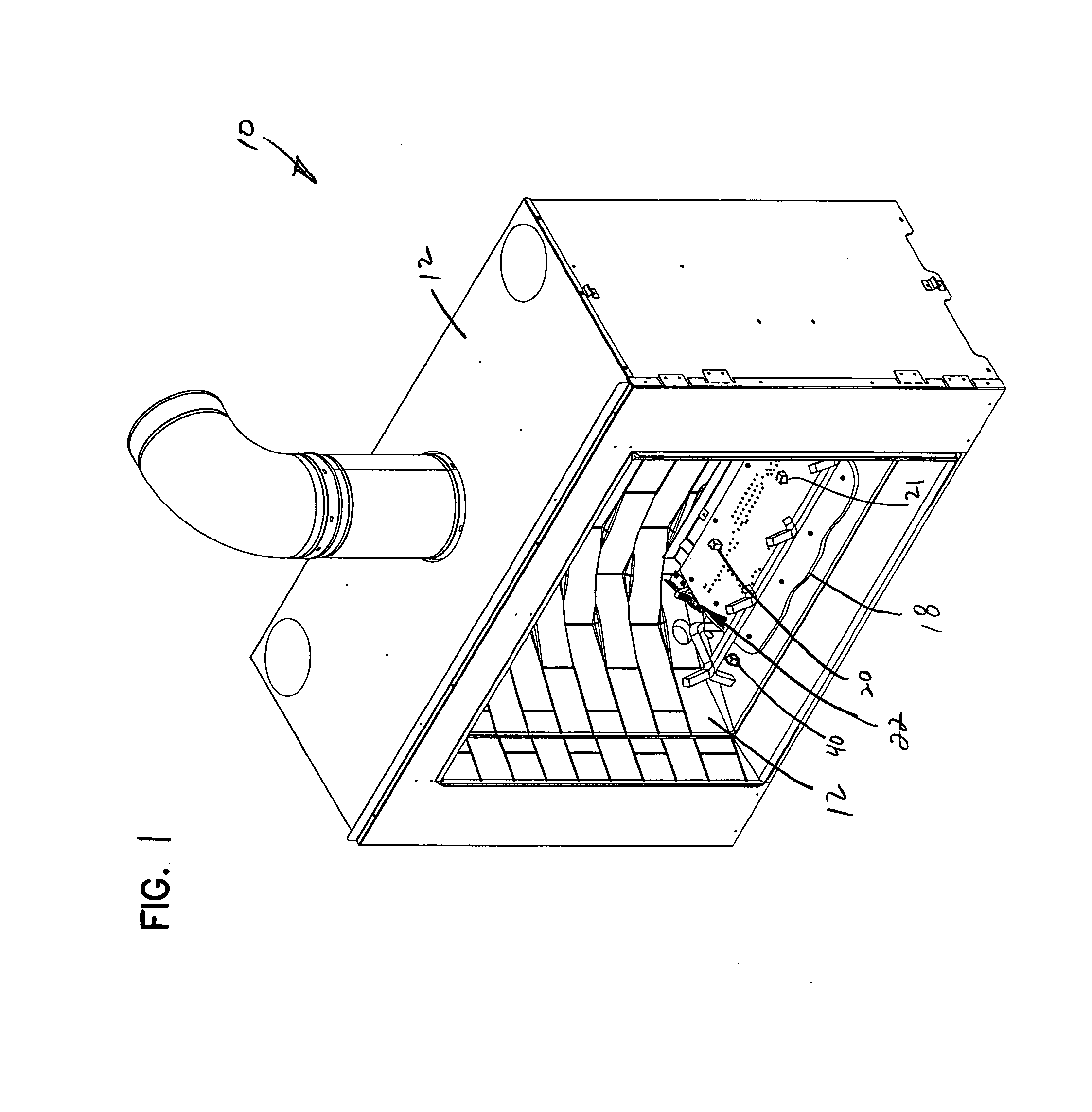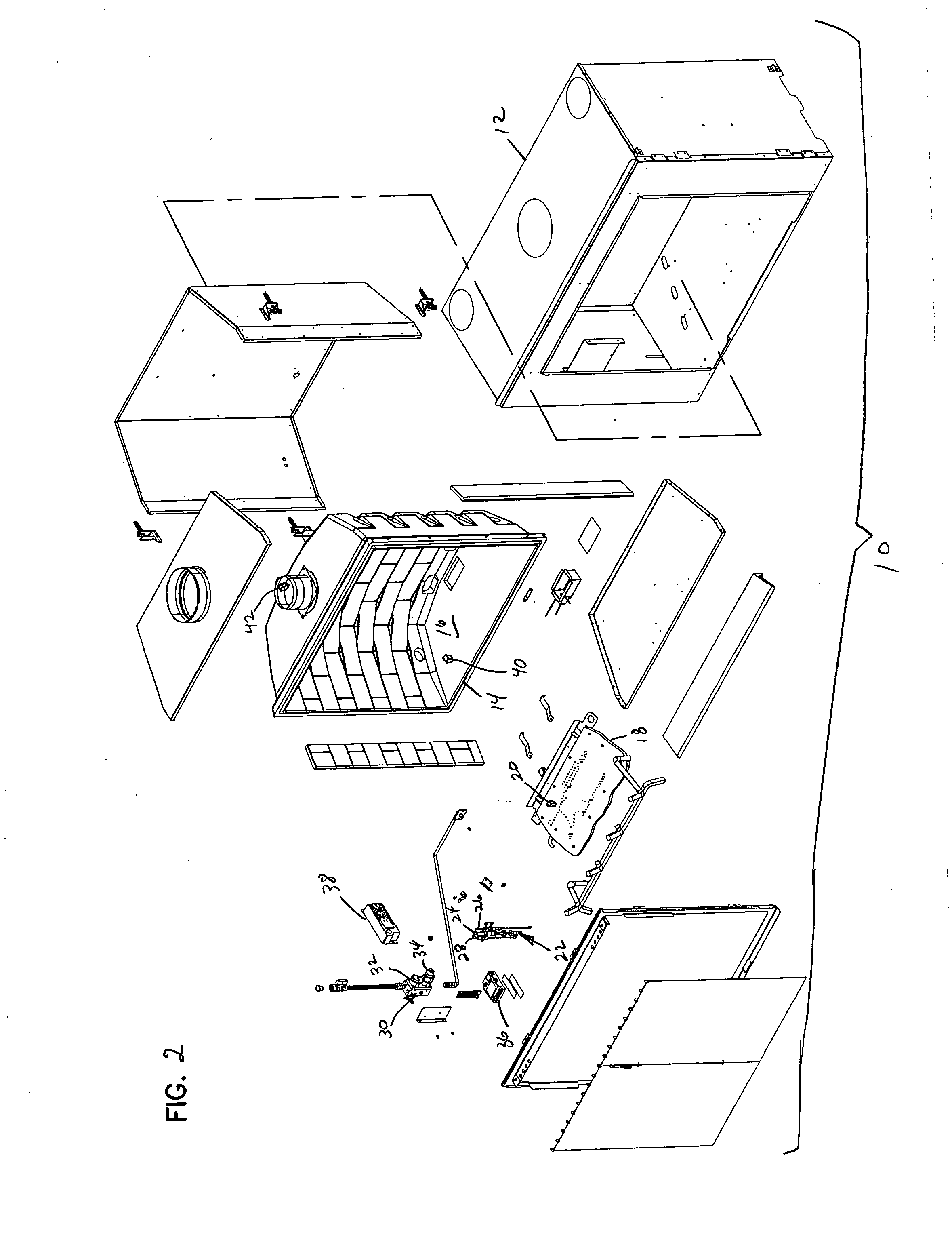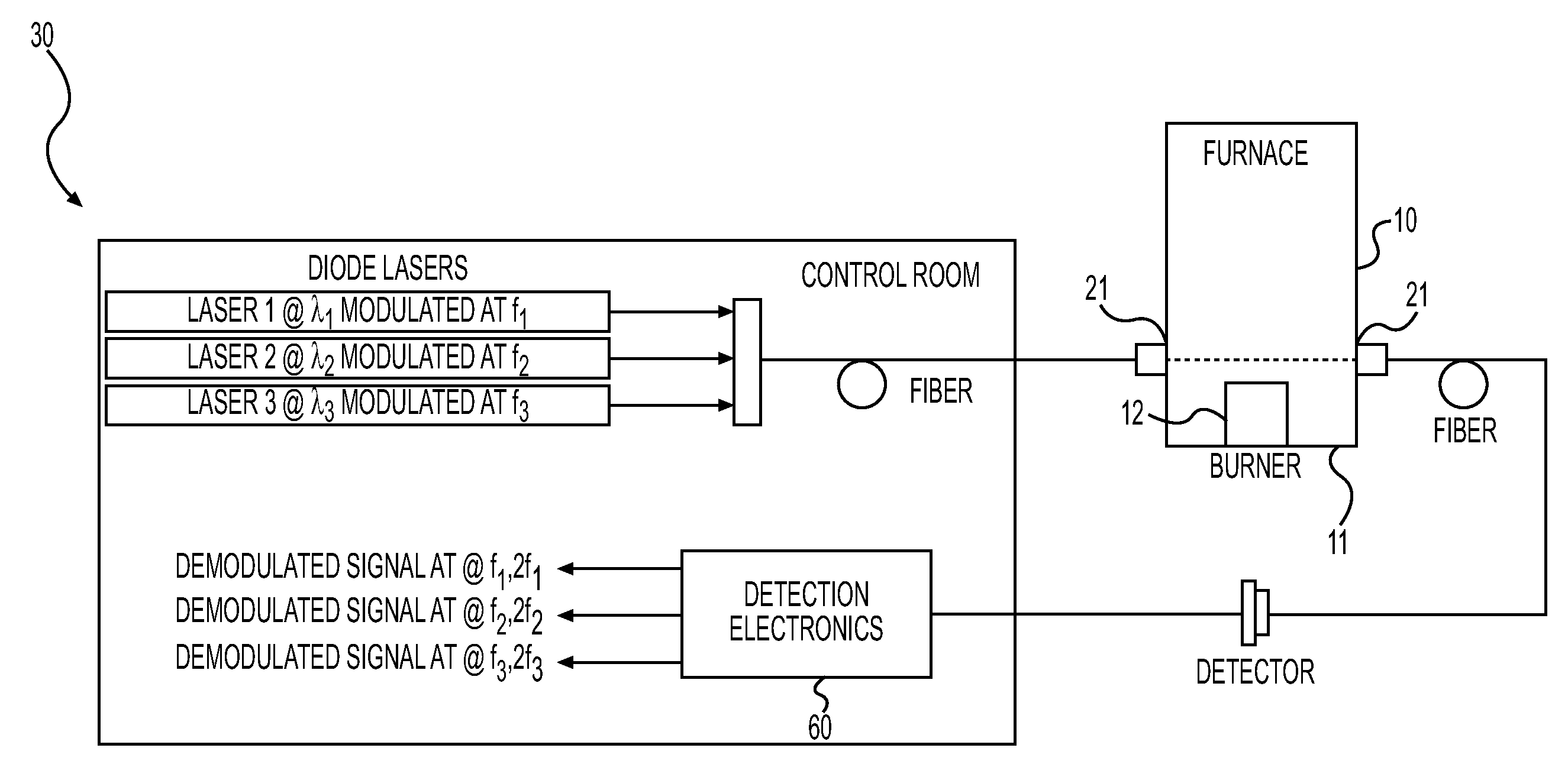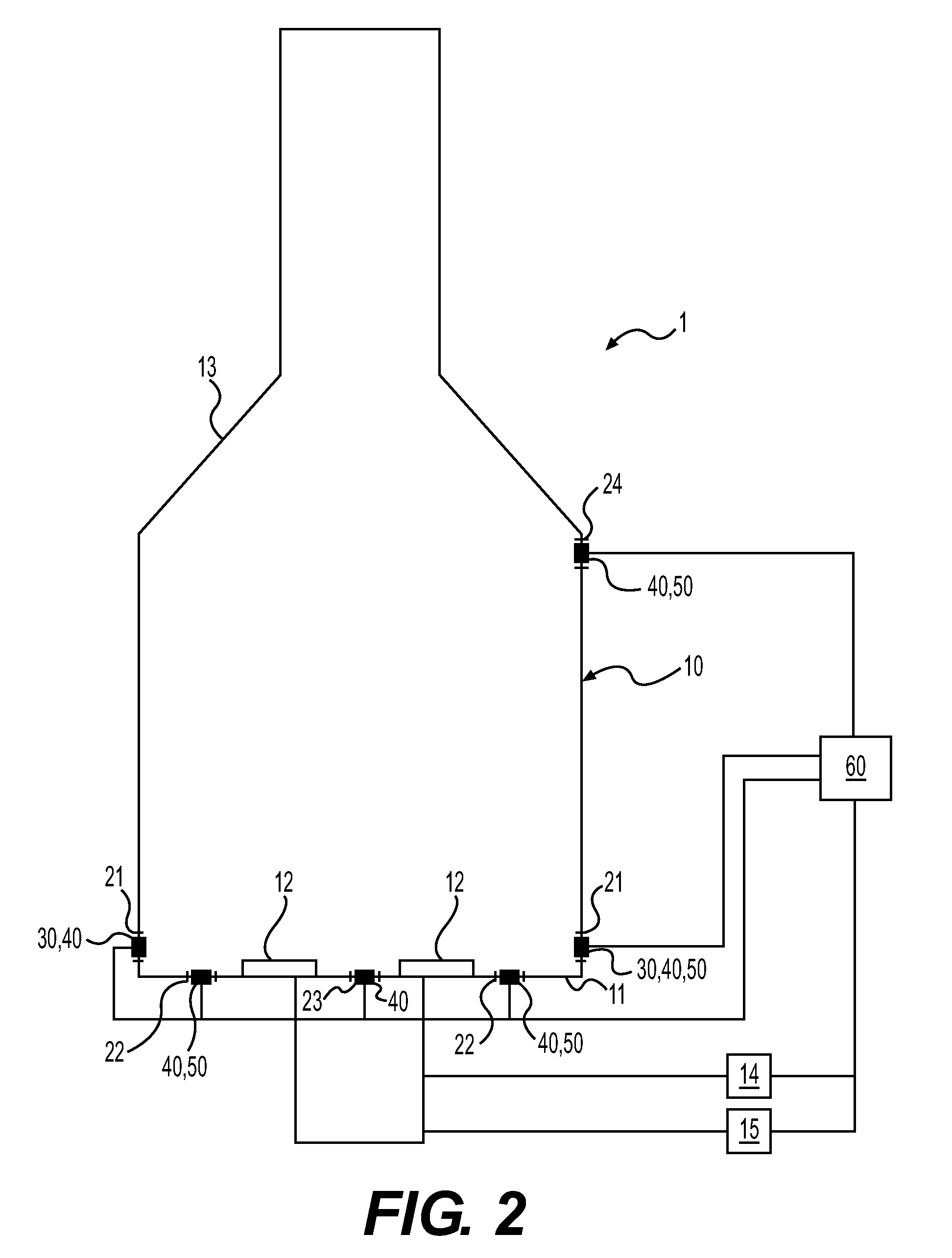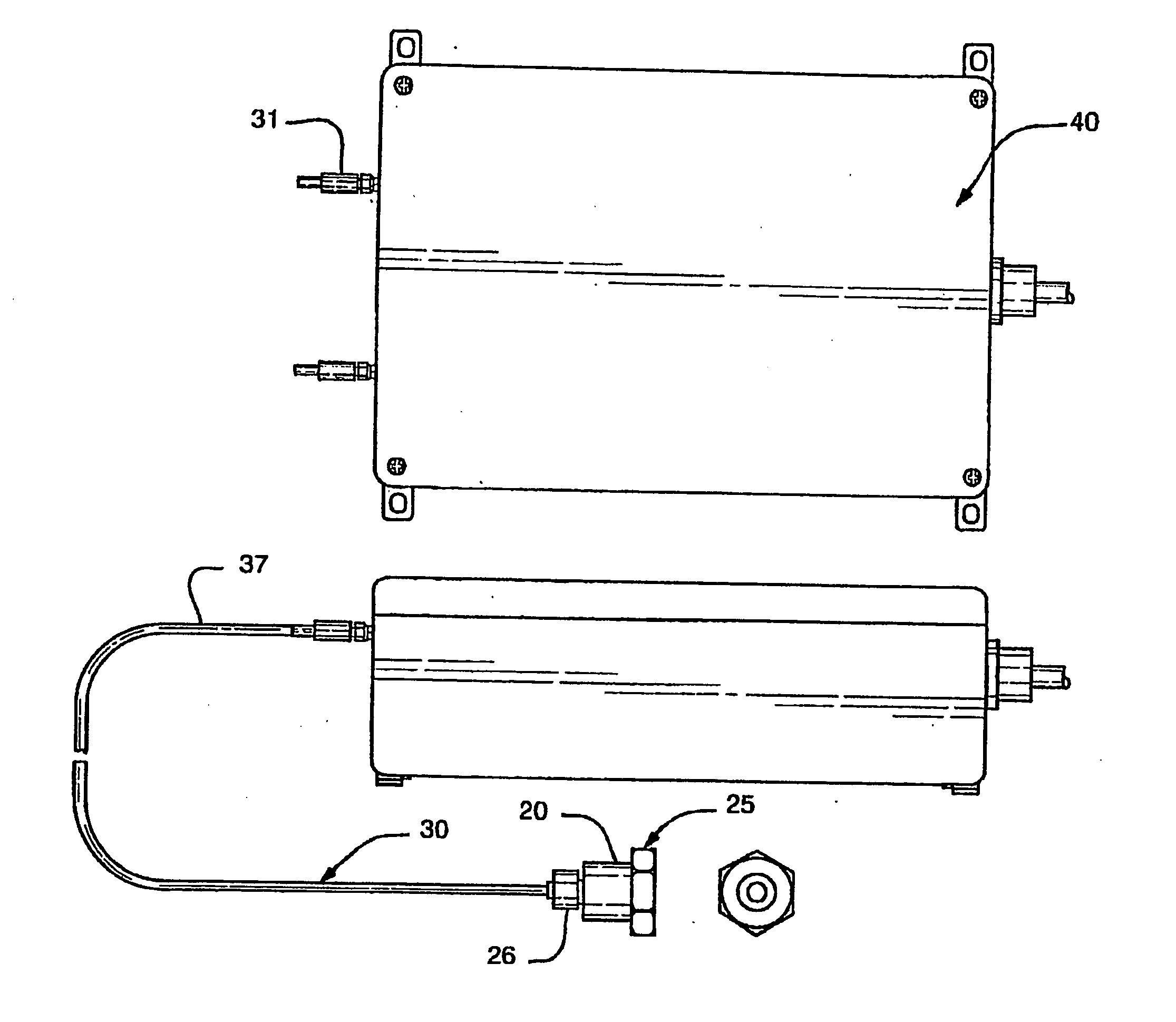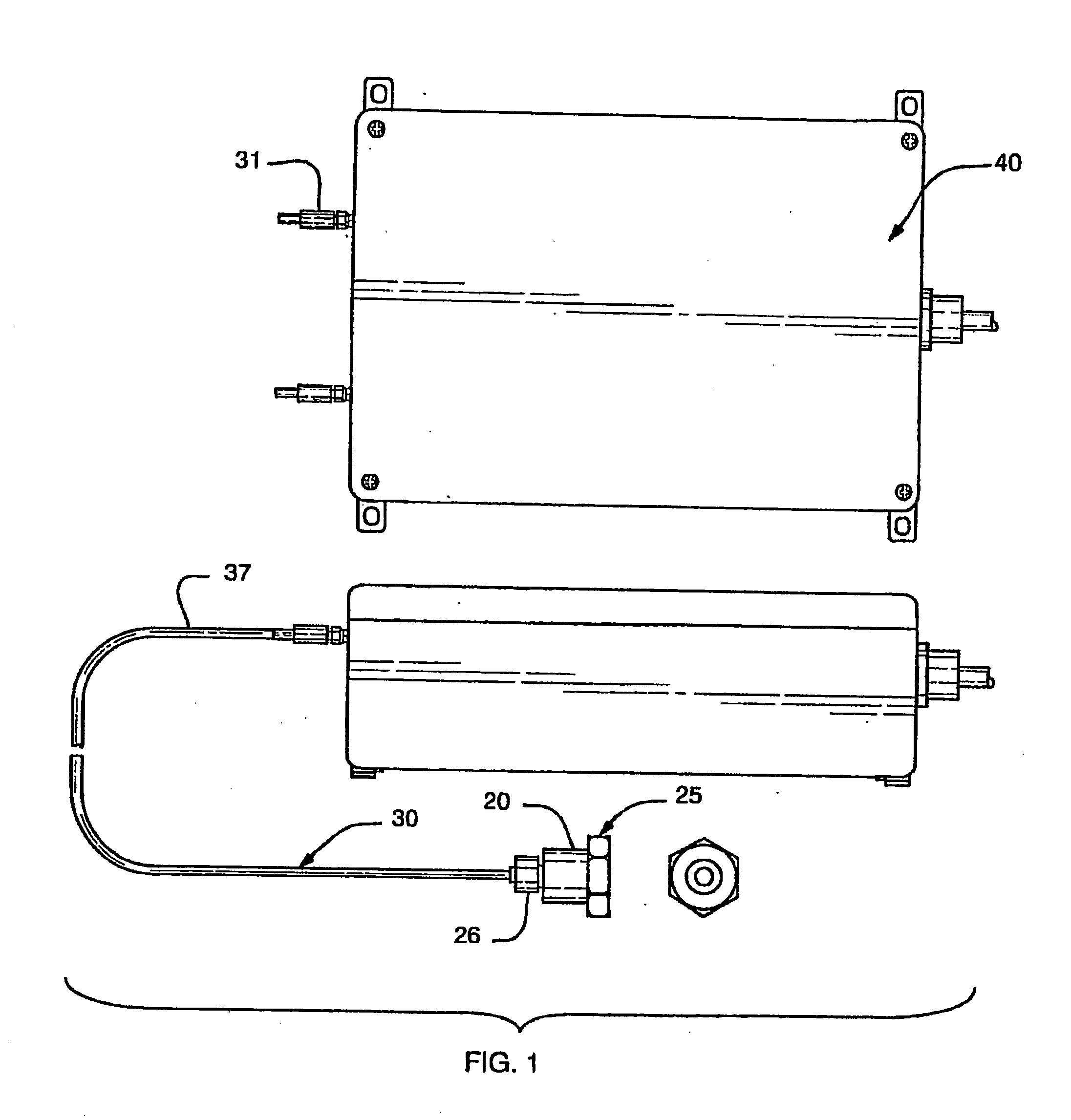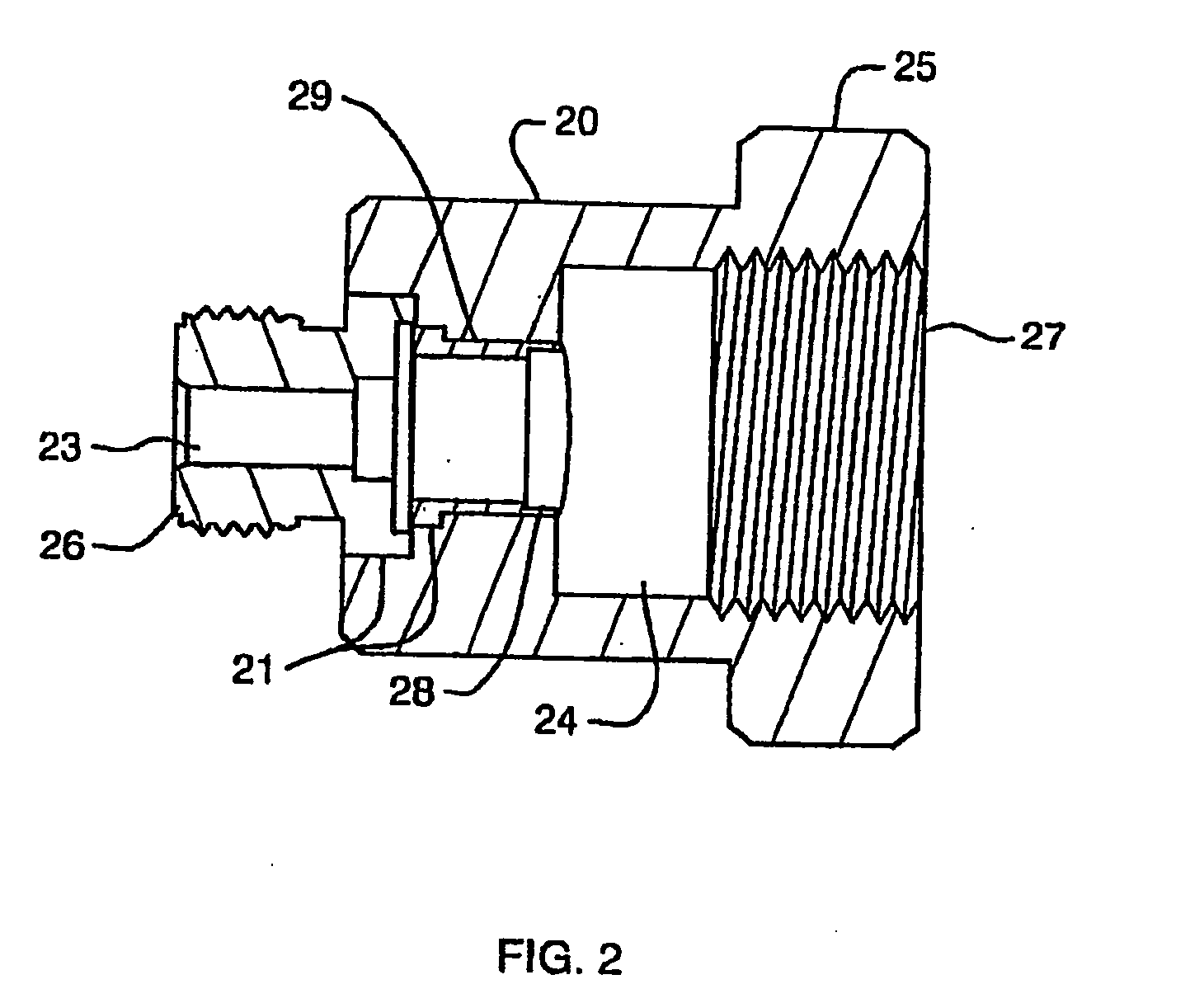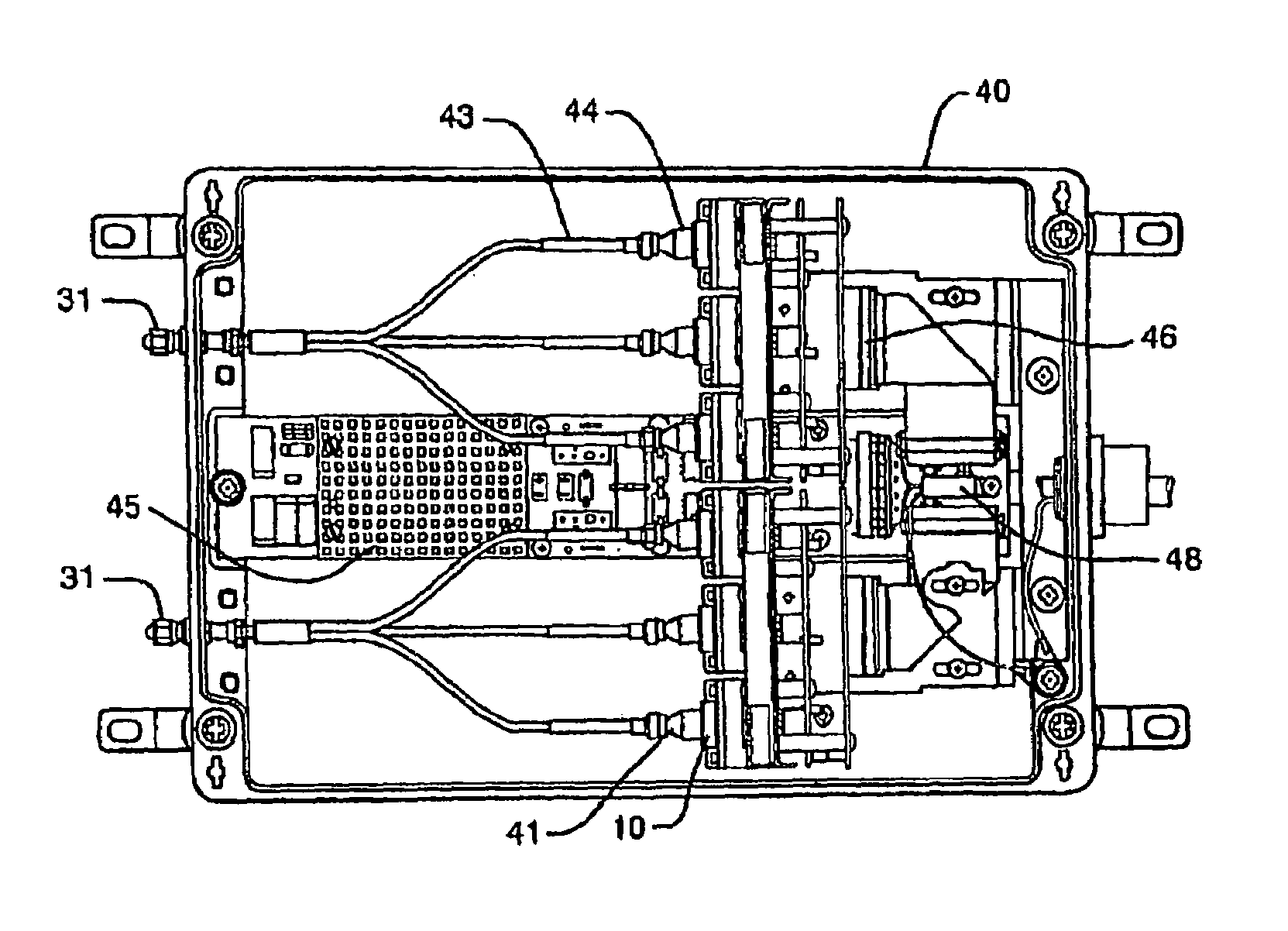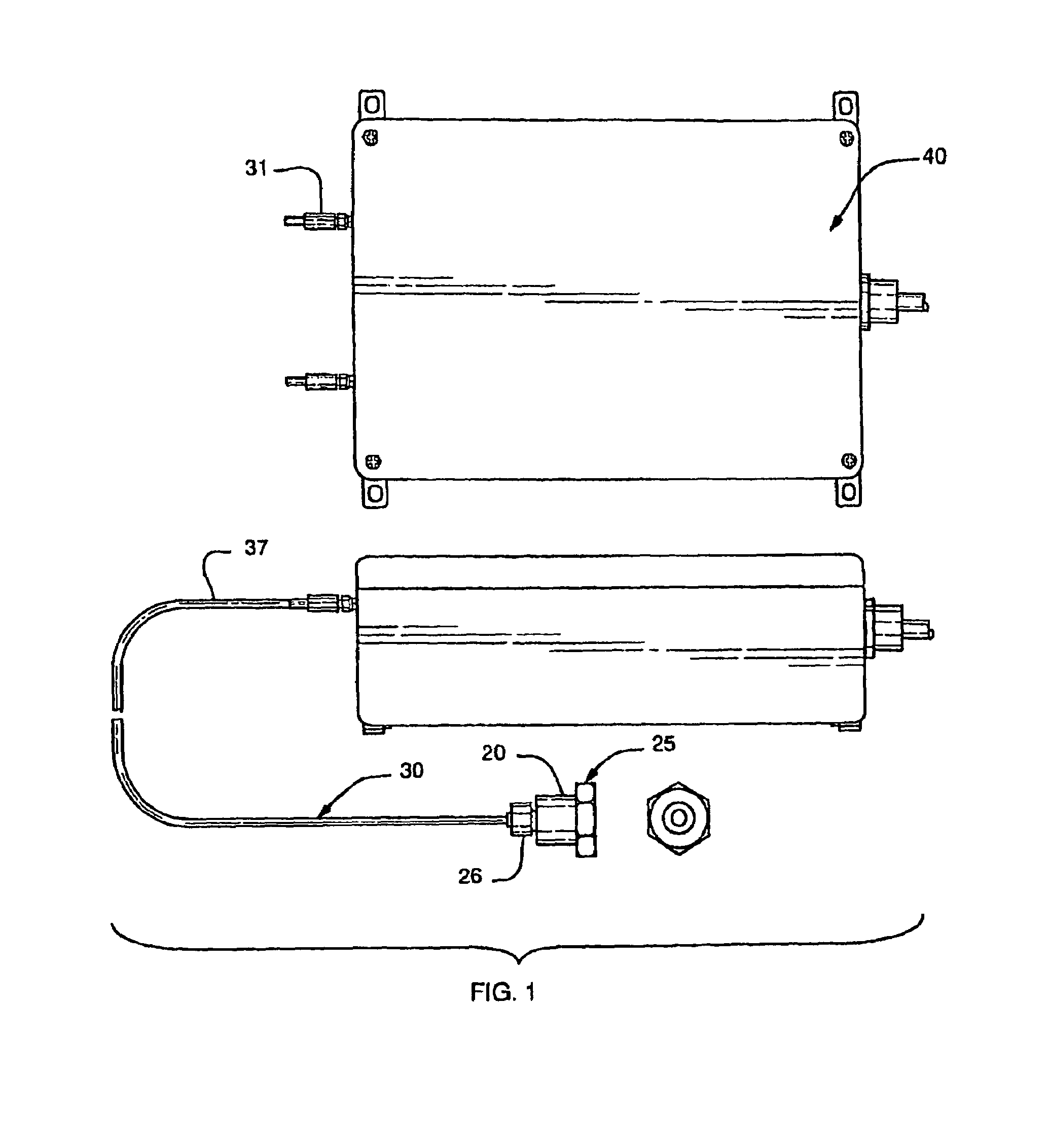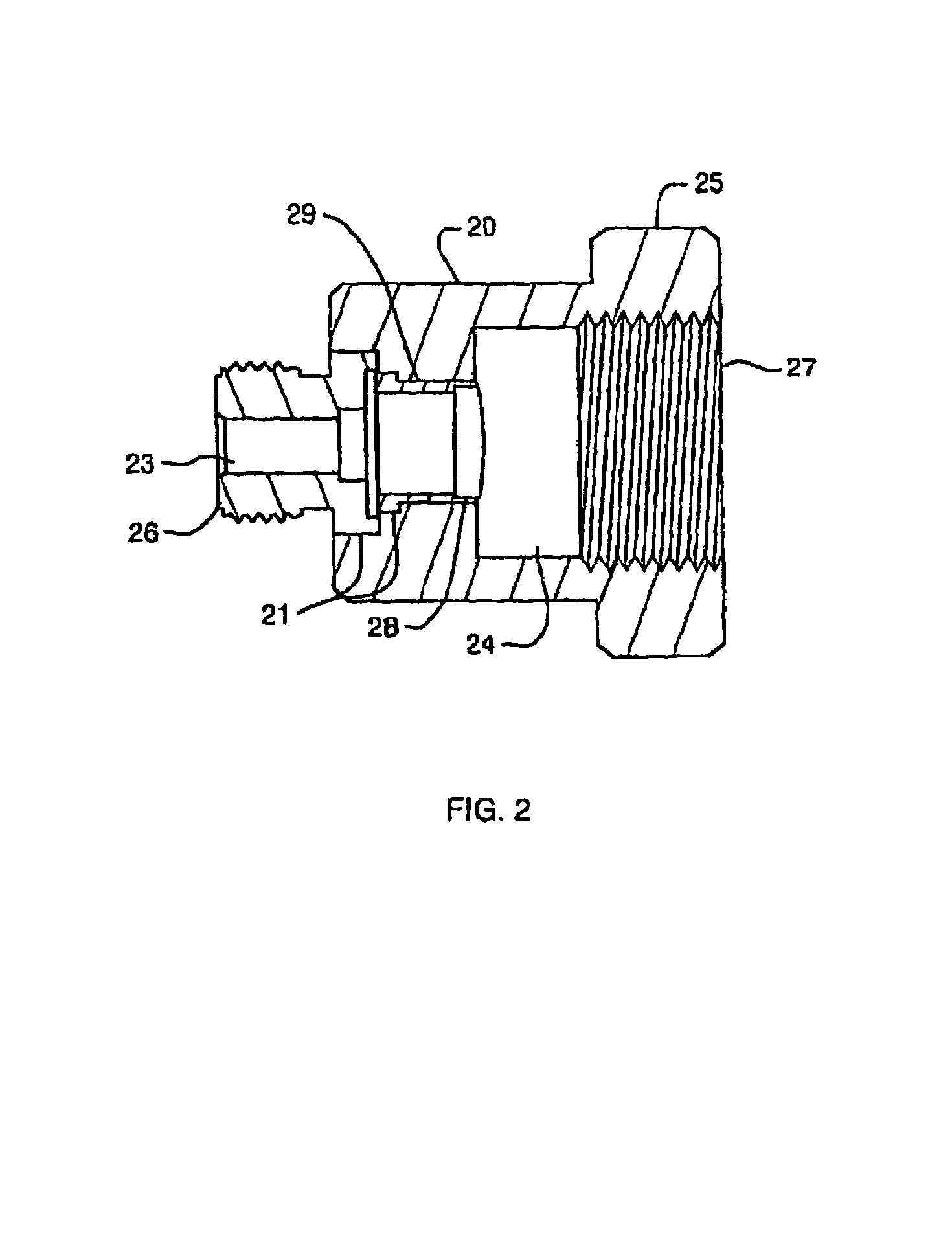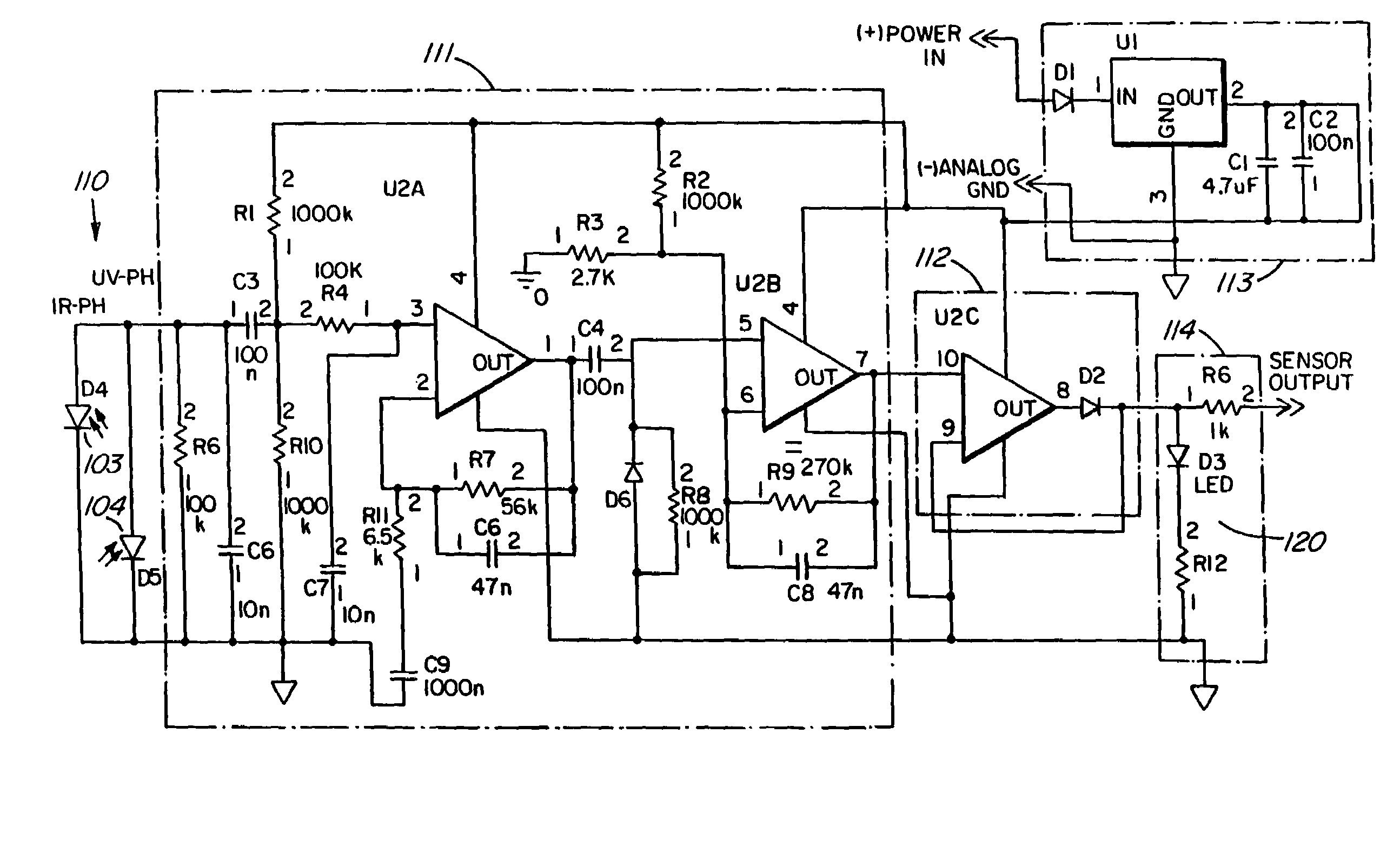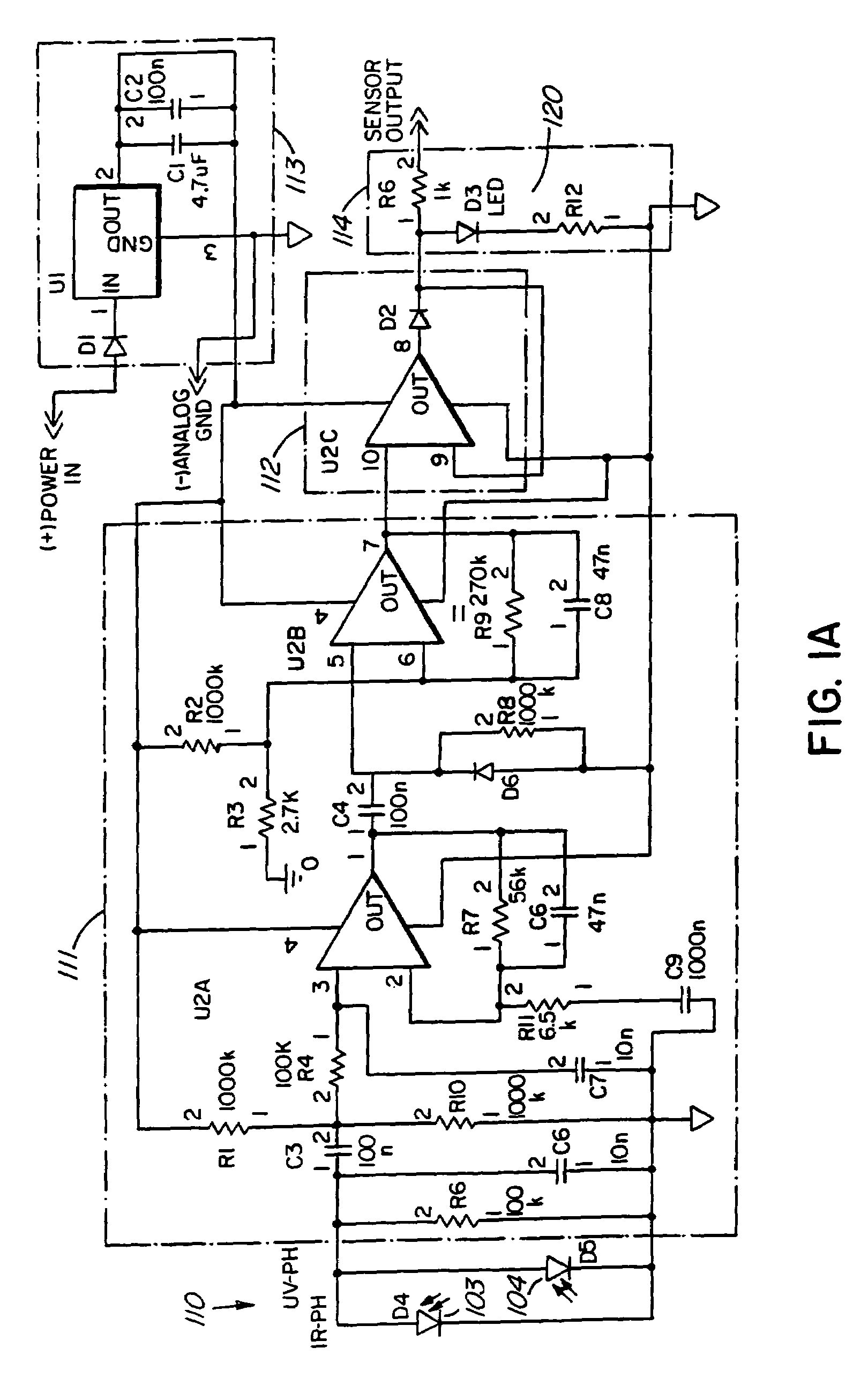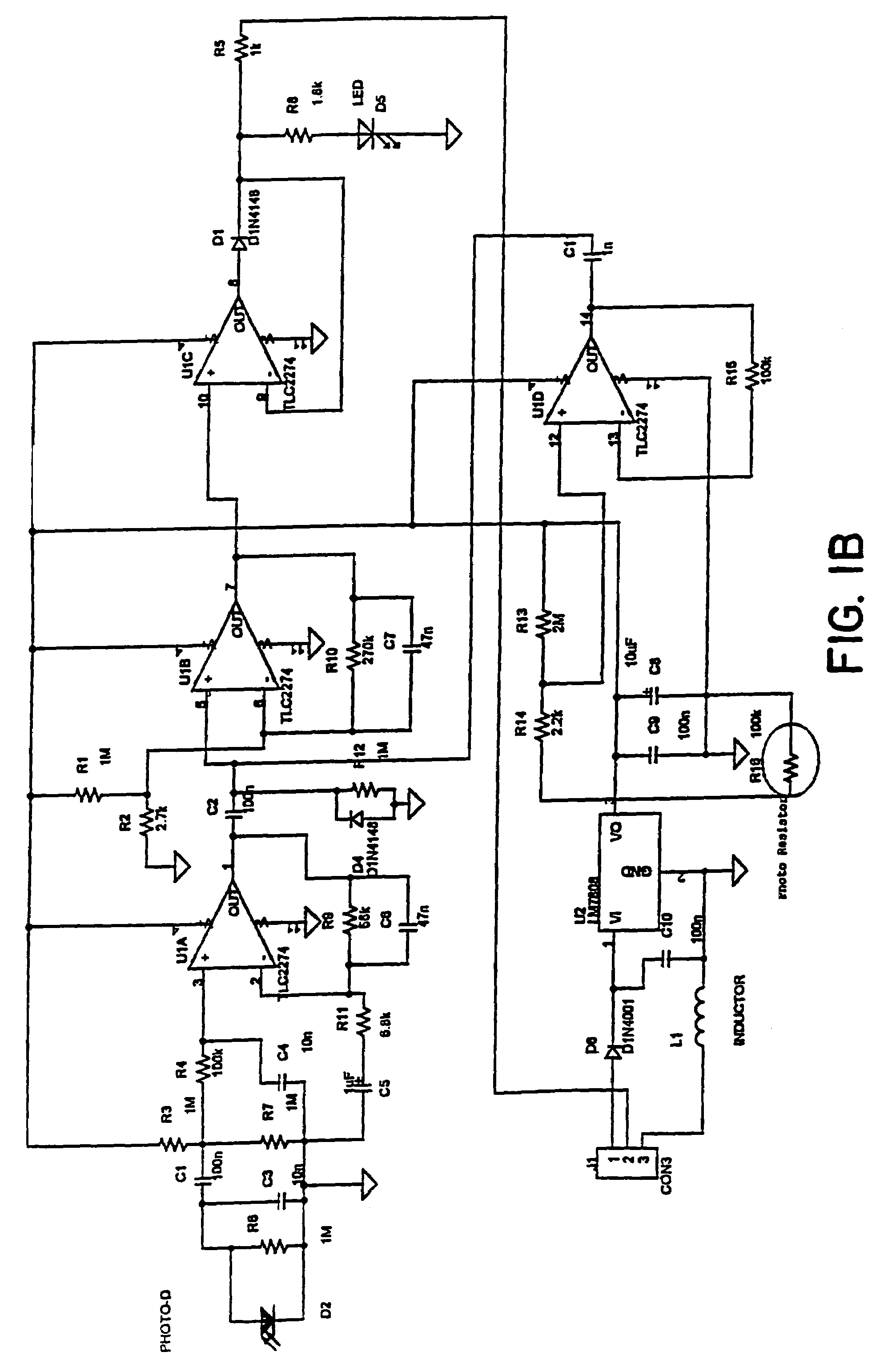Patents
Literature
Hiro is an intelligent assistant for R&D personnel, combined with Patent DNA, to facilitate innovative research.
187results about "Flame sensors" patented technology
Efficacy Topic
Property
Owner
Technical Advancement
Application Domain
Technology Topic
Technology Field Word
Patent Country/Region
Patent Type
Patent Status
Application Year
Inventor
Flame sensor with dynamic sensitivity adjustment
InactiveUS6013919AIncreased ultraviolet sensitivityEliminate needInternal-combustion engine testingContinuous combustion chamberSignal conditioning circuitsUltraviolet lights
The present invention provides a flame sensor having dynamic sensitivity adjustment, wherein the sensitivity of the flame detector can be adjusted by varying the gain of a signal conditioning circuit associated with the flame detector. The flame detector includes a photodiode, such as, for example, a silicon carbide (SiC) photodiode, that, when exposed to electromagnetic radiation having a wavelength in the range of from about 190-400 nanometers, and preferably within the ultraviolet range. The photodiode generates a photocurrent proportional to the ultraviolet light intensity to which it is exposed. The output of the photodiode is processed and amplified by signal conditioning circuitry to produce a signal indicative of the presence of a flame. Moreover, a cutoff wavelength for silicon carbide photodiodes is preferably in the range of about 400 nanometers, which renders the photodiode "blind" to potentially interfering blackbody radiation from the walls of the turbine.
Owner:GENERAL ELECTRIC CO
Gas turbine premixing systems
InactiveUS20110016871A1Increased NOx emissionAccelerate emissionsContinuous combustion chamberTurbine/propulsion fuel supply systemsCombustorGas turbines
Methods and systems are provided for premixing combustion fuel and air within gas turbines. In one embodiment, a combustor includes an upstream mixing panel configured to direct compressed air and combustion fuel through a premixing zone to form a fuel-air mixture. The combustor also includes a downstream mixing panel configured to mix additional combustion fuel with the fuel-air mixture to form a combustion mixture.
Owner:GENERAL ELECTRIC CO
Apparatus for observing combustion conditions in a gas turbine engine
ActiveUS7484369B2Reduce instabilityPromote oxidationContinuous combustion chamberMaterial analysis by optical meansCombustorSoot
A fuel injector for a gas turbine combustor is disclosed which includes a feed arm having a flange for mounting the injector within the combustor and a fuel nozzle depending from the feed arm for injecting fuel into the combustor for combustion. An optical sensor array is operatively associated with the fuel nozzle for observing combustor flame characteristics. The optical sensor array includes a plurality of sapphire rods positioned to be close enough to the combustor flame to oxidize soot deposits thereon.
Owner:ROSEMOUNT AEROSPACE
Optical viewing system for monitoring a wide angle area of interest exposed to high temperature
The present invention comprises a wide angle lens optical viewing system for the non-destructive monitoring of a high temperature area of interest with a confined space access, in particular, in a gas turbine engine. A novel cooling scheme is claimed that functions to cool the wide angle lens. Further, a method of monitoring an annular combustor region in the gas turbine via the optical viewing system is presented.
Owner:SIEMENS POWER GENERATION
Apparatus, system and method for observing combustion conditions in a gas turbine engine
ActiveUS20050247066A1Reduce instabilityChemiluminescene/bioluminescenceEfficient propulsion technologiesSensor arrayCombustor
A fuel injector for a gas turbine combustor is disclosed which includes a feed arm having a flange for mounting the injector within the combustor and a fuel nozzle depending from the feed arm for injecting fuel into the combustor for combustion. An optical sensor array is located within the fuel nozzle for observing combustion conditions within the combustor.
Owner:ROSEMOUNT AEROSPACE
Apparatus, system and method for observing combustion conditions in a gas turbine engine
ActiveUS7334413B2Reduce instabilityChemiluminescene/bioluminescenceGas turbine plantsCombustorGas turbines
A fuel injector for a gas turbine combustor is disclosed which includes a feed arm having a flange for mounting the injector within the combustor and a fuel nozzle depending from the feed arm for injecting fuel into the combustor for combustion. An optical sensor array is located within the fuel nozzle for observing combustion conditions within the combustor.
Owner:ROSEMOUNT AEROSPACE
Active combustion control system for gas turbine engines
InactiveUS7775052B2Fuel supply regulationContinuous combustion chamberCombustion chamberElectronic controller
Owner:ROSEMOUNT AEROSPACE
Apparatus for observing combustion conditions in a gas turbine engine
ActiveUS20060000219A1Promote oxidationImprove the acceptance angleContinuous combustion chamberMaterial analysis by optical meansSensor arrayCombustor
A fuel injector for a gas turbine combustor is disclosed which includes a feed arm having a flange for mounting the injector within the combustor and a fuel nozzle depending from the feed arm for injecting fuel into the combustor for combustion. An optical sensor array is operatively associated with the fuel nozzle for observing combustor flame characteristics. The optical sensor array includes a plurality of sapphire rods positioned to be close enough to the combustor flame to oxidize soot deposits thereon.
Owner:ROSEMOUNT AEROSPACE
Multiple gas pilot burner
ActiveUS20090280448A1Small sizeLow costIncandescent ignitionPipeline expansion-compensationPower flowThermocouple
A multiple gas pilot burner assembly for a household heating appliance. The pilot burner includes an injector having a first conduit for receiving a flow of a first combustible fluid, a second conduit for receiving a flow of a second combustible fluid and a third conduit connected to and in fluid communication with the first and second conduits which is configured to receive the flow of the first combustible fluid from the first conduit or the flow of the second combustible fluid from the second conduit. A single nozzle at the outlet of the third conduit is provided for supplying a pilot flame. The assembly also includes a single flame igniter positioned to cause an ignition of the pilot flame at the nozzle and also a single thermocouple positioned to be heated by the pilot flame and to generate an electrical current when heated.
Owner:COPRECITEC
System and method for adjusting engine parameters based on flame visualization
ActiveUS20100220182A1Internal-combustion engine testingContinuous combustion chamberCombustion chamberAutomotive engineering
In one embodiment, a system includes an engine that includes a combustion chamber and a viewing port into the combustion chamber. The engine also includes a camera configured to obtain an image of a flame in the combustion chamber through the viewing port and a controller configured to adjust a parameter of the engine based on the image of the flame.
Owner:GENERAL ELECTRIC CO
Intelligent flame scanner
InactiveUS7289032B2Reduced wiring requirementsSuitable redundancyCharacter and pattern recognitionAnalysis by thermal excitationMechanical engineeringOptics
Techniques for determining a characteristic of a flame are provided by the present invention. Provided are methods as well as devices. A flame is monitored across a contiguous spectral range to detect light emitted by the monitored flame. The contiguous spectral range is segmented into a plurality of discrete ranges, and detected light across each of the one or more of the plurality of discrete ranges is respectively processed to determine at least one characteristic of the flame.
Owner:GENERAL ELECTRIC TECH GMBH
Method and apparatus for detecting combustion instability in continuous combustion systems
Owner:WOODWARD GOVERNOR CO
Flame detector, method and fuel valve control
InactiveUS7088253B2Material analysis by optical meansCombustion signal processingFrequency generationCold cathode
A flame detector and burner fuel valve control has an ultraviolet sensitive, cold cathode, gas discharge tube in a DC quench circuit. In the presence of a flame, the circuit generates a pulse signal at a frequency related to the intensity of radiation from the flame. The pulse signal from a contaminated tube is at a higher frequency. A frequency discriminator circuit distinguishes between a flame responsive signal and a contaminated tube signal and controls the burner fuel valve.
Owner:PROTECTION CONTROLS
Time varying voltage combustion control and diagnostics sensor
InactiveUS7927095B1Reducing flame instabilityReduce pollutant emissionsSampled-variable control systemsFuel supply regulationCapacitanceCombustion system
A time-varying voltage is applied to an electrode, or a pair of electrodes, of a sensor installed in a fuel nozzle disposed adjacent the combustion zone of a continuous combustion system, such as of the gas turbine engine type. The time-varying voltage induces a time-varying current in the flame which is measured and used to determine flame capacitance using AC electrical circuit analysis. Flame capacitance is used to accurately determine the position of the flame from the sensor and the fuel / air ratio. The fuel and / or air flow rate (s) is / are then adjusted to provide reduced flame instability problems such as flashback, combustion dynamics and lean blowout, as well as reduced emissions. The time-varying voltage may be an alternating voltage and the time-varying current may be an alternating current.
Owner:THE UNITED STATES AS REPRESENTED BY THE DEPARTMENT OF ENERGY
Monitoring of flames using optical fibers and video camera vision system
InactiveUS20050266363A1Increased safety marginLow costFuel supply regulationFlame sensorsFlareVisual perception
This invention relates to a flame detection method and apparatus. More specifically, this invention relates to a flame d on method and apparatus designed for simultaneously monitoring several flames of different types such as pilot flames and main flames of differing sizes and intensity. These detected flames can be in one combustion unit or in several combustion units such as industrial furnaces or ground flares. The underlying principle of the invention is to collect and transmit light from each of the flames by use of optical fibers and to insect the collected light by a video camera vision system at the other end of the optical fibers and to transmit the “live” images of the glows as well as the “on / off” status of the burners to the control room, through modern electronic communication techniques such as Ethernet and / or wireless radio units.
Owner:GANESHAN RAM
Gas turbine premixing systems
InactiveUS8616002B2Accelerate emissionsTurbine/propulsion fuel supply systemsContinuous combustion chamberCombustorEngineering
Methods and systems are provided for premixing combustion fuel and air within gas turbines. In one embodiment, a combustor includes an upstream mixing panel configured to direct compressed air and combustion fuel through a premixing zone to form a fuel-air mixture. The combustor also includes a downstream mixing panel configured to mix additional combustion fuel with the fuel-air mixture to form a combustion mixture.
Owner:GENERAL ELECTRIC CO
Combustion emission estimation with flame sensing system
InactiveUS20040033457A1High frequencyAddressing Insufficient SensitivityFuel supply regulationPilot flame ignitersCombustorEngineering
There is described a method and apparatus for controlling the combustion by-product formation rate in at least one burner of a fossil fuel fired power plant. The burner has an associated flame scanner which is focused on a small area of the burner flame to obtain an image signal of the flame. A flame signal that represents properties of temporal combustion in the visible light spectrum of the burner is generated from the image signal. Combustion turbulence at the burner is analyzed from the flame signal by a dynamic invariant that has a relationship to the combustion by-product values and different combustion by-product levels at the burner and the combustion turbulence is correlated to the combustion by-product formation rate at the burner. The method and apparatus can also be used to correlated the combustion turbulence at a multiplicity of burners to the associated combustion by-product formation rate.
Owner:ABB INC
Flame detection device and method of detecting flame
ActiveUS20070281260A1Easy to detectEfficiently provideMaterial analysis by optical meansFlame sensorsWide fieldFlame detection
A device and method for detecting flame using real-time continuous imaging and pattern recognition of infrared (IR) images of a flame region. Infrared emissions radiated from the region pass through a wide field-of-view lens and are detected by a Charged-Coupled Device (CCD) array sensitive to the near IR range. The system then digitizes the image, extracts characteristic parameters from the measurement and stores both the image and characteristic information for pattern recognition. To accomplish the pattern recognition function, the derived real-time characteristics of the current measurement are statistically compared to pre-stored patterns representative of images of radiation emitted from the region while known flame conditions prevail within the region. Based on this comparison, an assessment is made to determine the presence or absence of flame. The characteristic measurements are also used for evaluating the quality of flame.
Owner:FOSSIL POWER SYST
Systems and methods for detection and control of blowout precursors in combustors using acoustical and optical sensing
InactiveUS20050056024A1Speed up the flowReduce flowAnalogue computers for vehiclesGas turbine plantsCombustorStatistical analysis
The present invention comprises methods for detecting and controlling flame blowout in combustors. The blowout precursor detection system comprises a combustor, a blowout precursor detection unit, a pressure measuring device and / or an optical measuring device. The methods of the present invention comprise receiving optical data measured by an optical measuring device, performing one or a combination of raw data analysis, spectral analysis, statistical analysis, and wavelet analysis on received optical data, and determining the existence of a blowout precursor based on such analyses. The present invention further comprises closed-loop control methods for controlling a combustor to prevent blowout.
Owner:GEORGIA TECH RES CORP
Flame detection device and method of detecting flame
ActiveUS7710280B2Easy to detectEfficiently provideMaterial analysis by optical meansFlame sensorsWide fieldFlame detection
A device and method for detecting flame using real-time continuous imaging and pattern recognition of infrared (IR) images of a flame region. Infrared emissions radiated from the region pass through a wide field-of-view lens and are detected by a Charged-Coupled Device (CCD) array sensitive to the near IR range. The system then digitizes the image, extracts characteristic parameters from the measurement and stores both the image and characteristic information for pattern recognition. To accomplish the pattern recognition function, the derived real-time characteristics of the current measurement are statistically compared to pre-stored patterns representative of images of radiation emitted from the region while known flame conditions prevail within the region. Based on this comparison, an assessment is made to determine the presence or absence of flame. The characteristic measurements are also used for evaluating the quality of flame.
Owner:FOSSIL POWER SYST
Active Control of Flame Holding and Flashback in Turbine Combustor Fuel Nozzle
A system includes a turbine combustor fuel nozzle. The turbine combustor fuel nozzle includes a swirl vane. The turbine combustor fuel nozzle also includes an injection hole configured to inject fluid in a downstream region of the swirl vane. The injection of fluid in a downstream region of the swirl vane may be in response to detection of a condition indicative of a flame inside the turbine combustor fuel nozzle.
Owner:GENERAL ELECTRIC CO
High-temperature inspection device and cooling apparatus therefor
ActiveUS7121098B2Eliminating a lengthy and expensive cooling down timeCompression machinesEndoscopesCombustionVisual inspection
An inspection system includes a cooling apparatus for conducting visual inspections within operating temperature environments, such as, for example, the interior of a combustion turbine shortly after shut down. The cooling apparatus provides cooling for an inspection probe such as a video borescope. The cooling apparatus includes an articulating guide tube having a control portion, an elongate flexible portion and an articulating section. The video borescope is inserted down through the articulating guide tube. A thermal protective sleeve surrounds and thermally insulates a portion of the articulating guide tube. Vortex coolers circulate cooled, compressed air within the cooling apparatus, thereby maintaining a cool video borescope operating temperature.
Owner:SIEMENS ENERGY INC
Methods for monitoring and controlling boiler flames
The current invention provides a method and apparatus, which uses symbol sequence techniques, temporal irreversibility, and / or cluster analysis to monitor the operating state of individual burner flames on a appropriate time scale. Both the method and apparatus of the present invention may be used optimize the performance of burner flames.
Owner:ELECTRIC POWER RES INST INC
Flame Sense Circuit for Gas Pilot Control
InactiveUS20120288806A1The process is simple and clearHigh impedance inputFlame sensorsPlant protectionElectrical resistance and conductanceMicroprocessor controller
A flame sense circuit for a gas burner control employs a flame rod for flame rectification. An AC source applies an AC wave through a capacitor to the flame rod, and the flame rod is also connected via a resistive voltage divider to a DC voltage source. A voltage divider node is connected to a voltage follower, which impedance-matches an ADC input of a microprocessor controller. The flame sense circuit senses conditions of no-flame, and flame rod in contact with or leaking to ground, and when flame is present can quantify sensed flame as good, weak and marginal.
Owner:INT CONTROLS & MEASUREMENT
Diagnostic ionic flame monitor
An ionic flame monitor. The flame monitor has a flame rod that produces an ionization current when the flame rod is immersed in a flame and excited by a voltage. The ionization current has a DC component and an AC component each dependent on the intensity of the flame, and a flicker frequency. The flame monitor also has a computing device that is responsive to signals representative of the flicker frequency, and the AC and DC components of the ionization current for determining the existence of the flame.
Owner:ABB INC +1
Fireplace control system
InactiveUS20070292810A1Guaranteed smooth progressFuel supply regulationDomestic stoves or rangesCombustorControl system
A heating appliance control system that includes a pilot flame assembly, a main burner assembly, a gas valve, and a controller. The pilot flame assembly includes a pilot flame burner and at least one pilot flame sensor. The main burner assembly includes a main burner. The gas valve is coupled to the pilot flame and main flame burners. The controller is configured to control the variable gas valve in response to signals received from the pilot and main burner sensors. The controller is also configured to monitor a pilot flame at the pilot flame burner with the pilot flame sensor to confirm the presence of the pilot flame before activating the variable gas valve to supply gas to the main burner.
Owner:HNI TECH INC
System and method for controlling fired heater operations
InactiveUS20100151397A1Operational securityReduce nitrogen oxide emissionsFlame sensorsSolid fuel combustionCombustion systemCombustion
Method of controlling the operation of a combustion device to provide safe and reliable operation while reducing NOx emission that includes providing a flow of fuel and diluent at a determined volume ratio to a flame in the combustion device; providing a flame stability sensor to generate a measurement of a characteristic of the flame, providing a flow measurement for each of the fuel and diluent, and controlling the determined volume ratio of fuel:diluent using the measurement from the flame stability sensor and / or flow measurements. A combustion system incorporating this method also is included.
Owner:EXXON RES & ENG CO
Method and apparatus for detecting the presence of flame in the exhaust path of a gas turbine engine
ActiveUS20060059917A1Maximize fuel efficiencyMaximize efficiencySensing radiation from gases/flamesEfficient propulsion technologiesCombustion chamberGas turbines
A method and apparatus for monitoring the exhaust path of a gas turbine engine for the presence of unwanted flames downstream from the main combustion chamber(s). The system is comprised of an Electro-Optics Module containing sensors and associated processing electronics as well as collection and transmitting optics, which relay the radiant energy generated by a flame event to the sensors. The information generated by the sensors is directly related to the time based intensity of the flame event, which can suggest problems associated with the condition of combustion related engine components. This information can then be used by the engine owner / operator to assess the condition of the engine and determine the more efficient required maintenance schedule.
Owner:MEGGITT NEW HAMPSHIRE
Method and apparatus for detecting the presence of flame in the exhaust path of a gas turbine engine
InactiveUS7281382B2Maximize efficiencySensing radiation from gases/flamesGas turbine plantsCombustion chamberTurbine
A method and apparatus for monitoring the exhaust path of a gas turbine engine for the presence of unwanted flames downstream from the main combustion chamber(s). The system is comprised of an Electro-Optics Module containing sensors and associated processing electronics as well as collection and transmitting optics, which relay the radiant energy generated by a flame event to the sensors. The information generated by the sensors is directly related to the time based intensity of the flame event, which can suggest problems associated with the condition of combustion related engine components. This information can then be used by the engine owner / operator to assess the condition of the engine and determine the more efficient required maintenance schedule.
Owner:MEGGITT NEW HAMPSHIRE
Flame sensor for a burner
InactiveUS7327269B2Microbiological testing/measurementSensing radiation from gases/flamesCombustorEngineering
A flame sensor circuit is used to sense the presence or absence of a flame in a burner. A first sensor generates a first intensity signal which is proportional to the light intensity of the flame in the burner. A second sensor generates a second signal produced by the flicker of the flame. The presence of both the first and second signals is sensed and if both are present, an output signal is generated to indicate the presence of the flame in the burner.
Owner:INT THERMAL INVESTMENTS
Popular searches
Spectrum generation using refracting elements Photometry using electric radiation detectors Jet propulsion plants Semiconductor devices Fire alarm radiation actuation Combustion fail safe Hot gas positive displacement engine plants Turbine/propulsion fuel control Engine control Safety/regulatory devices
Features
- R&D
- Intellectual Property
- Life Sciences
- Materials
- Tech Scout
Why Patsnap Eureka
- Unparalleled Data Quality
- Higher Quality Content
- 60% Fewer Hallucinations
Social media
Patsnap Eureka Blog
Learn More Browse by: Latest US Patents, China's latest patents, Technical Efficacy Thesaurus, Application Domain, Technology Topic, Popular Technical Reports.
© 2025 PatSnap. All rights reserved.Legal|Privacy policy|Modern Slavery Act Transparency Statement|Sitemap|About US| Contact US: help@patsnap.com



